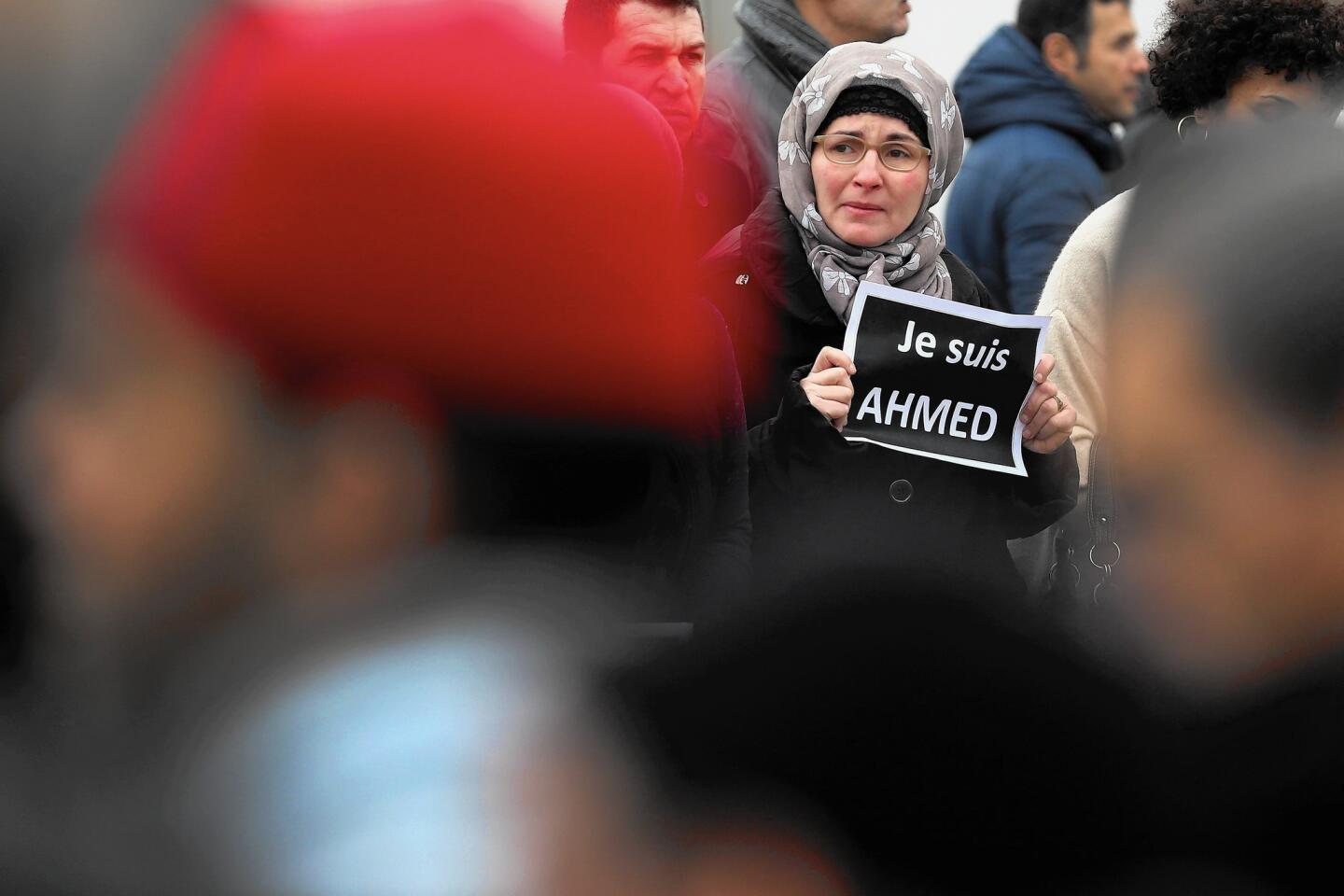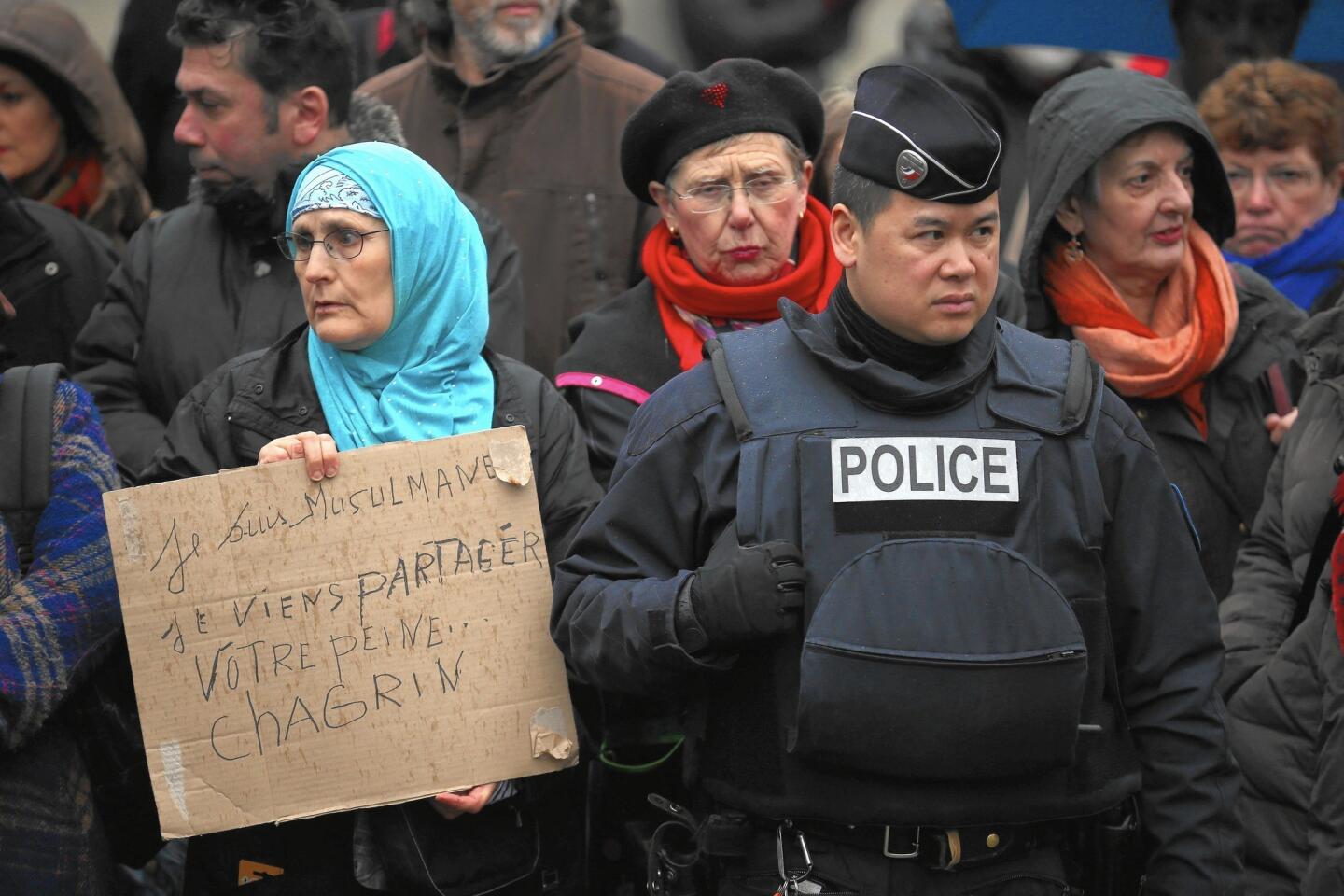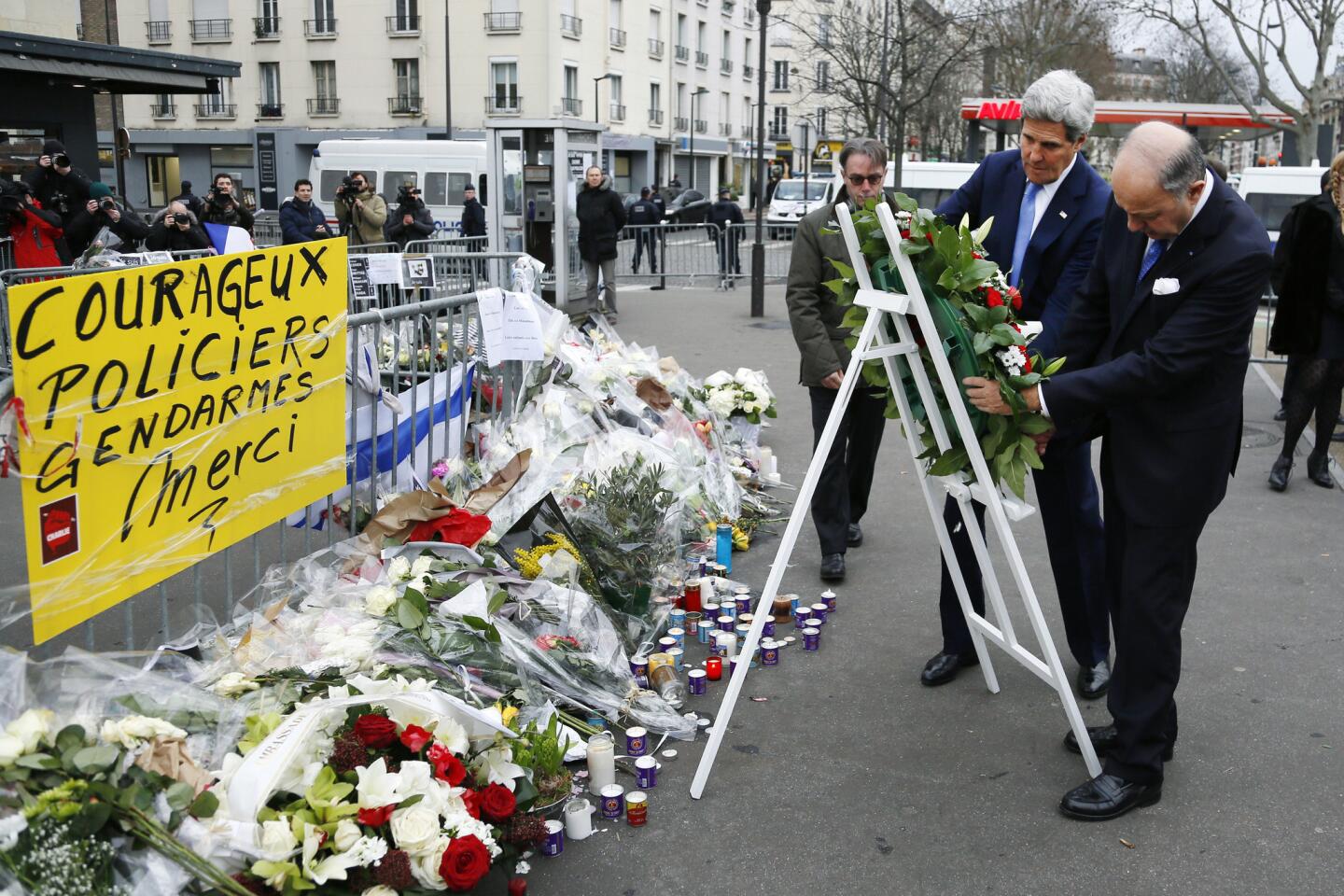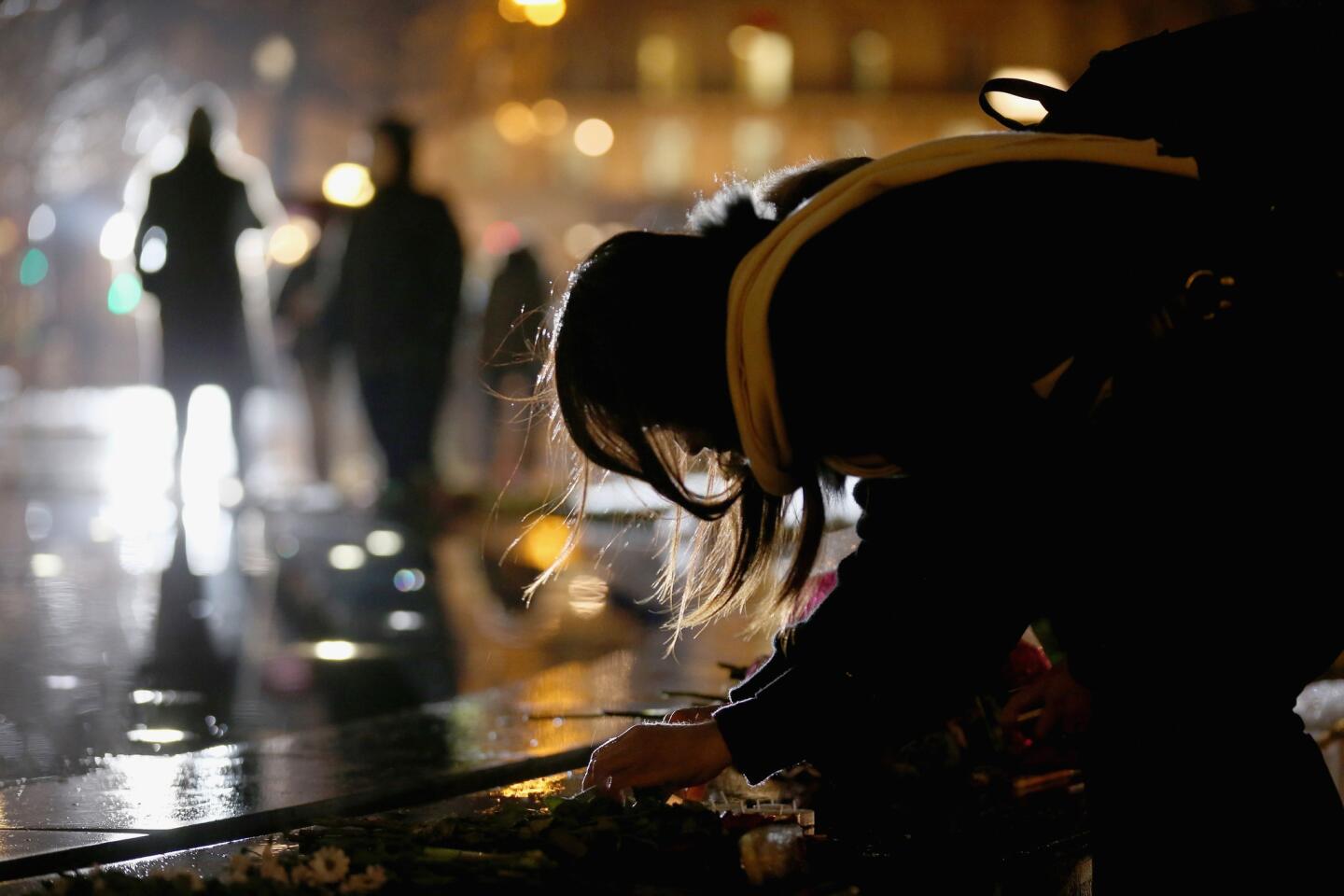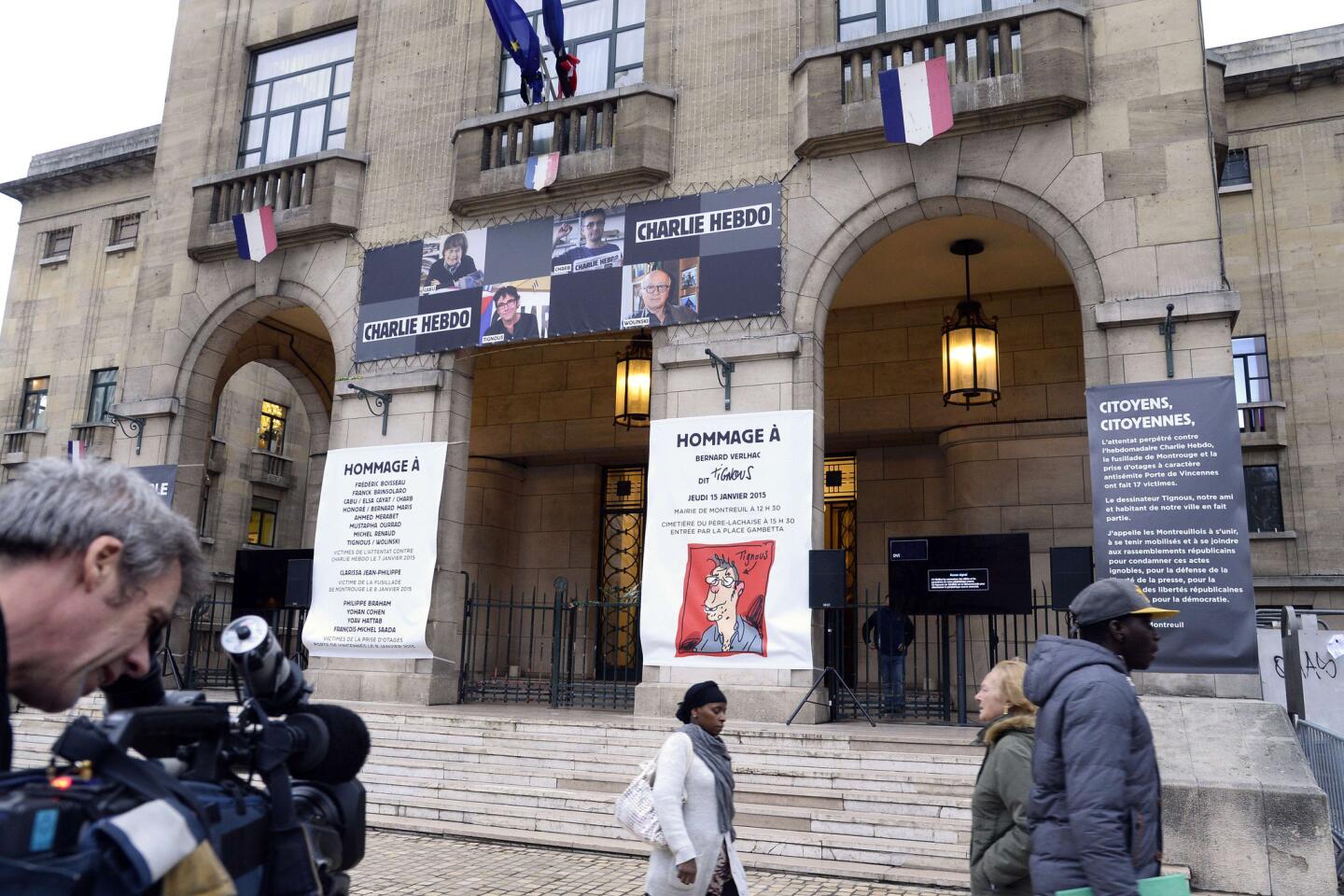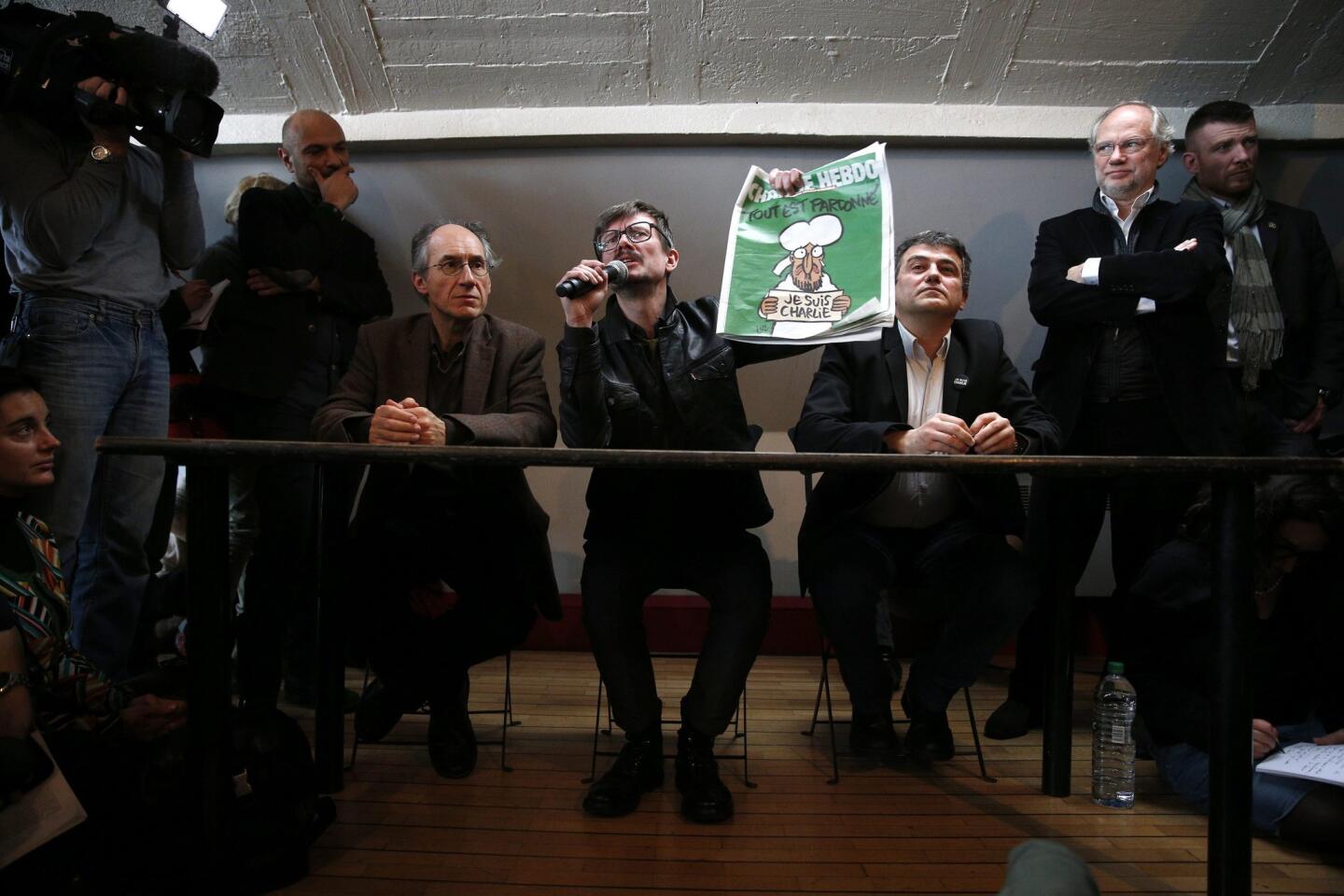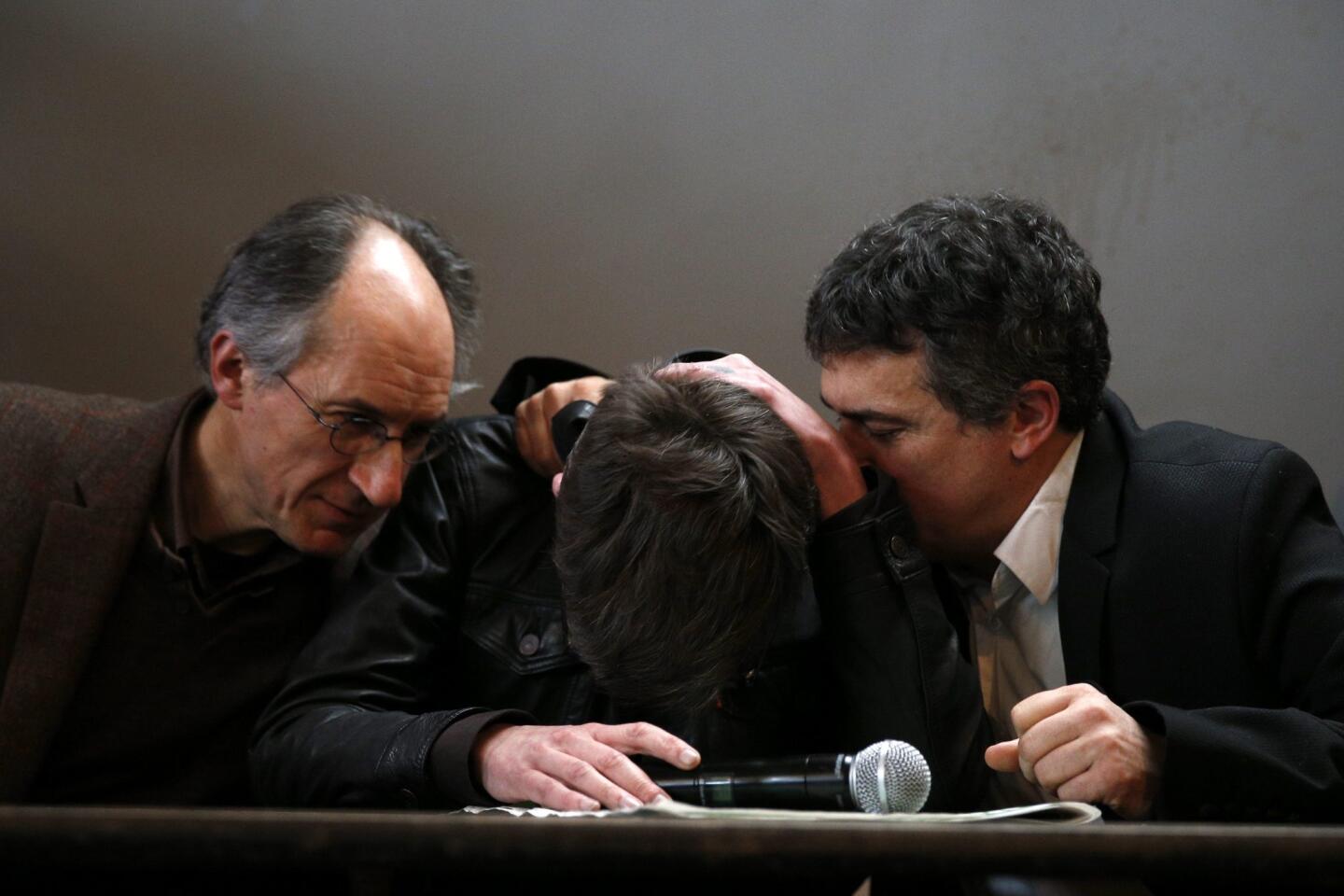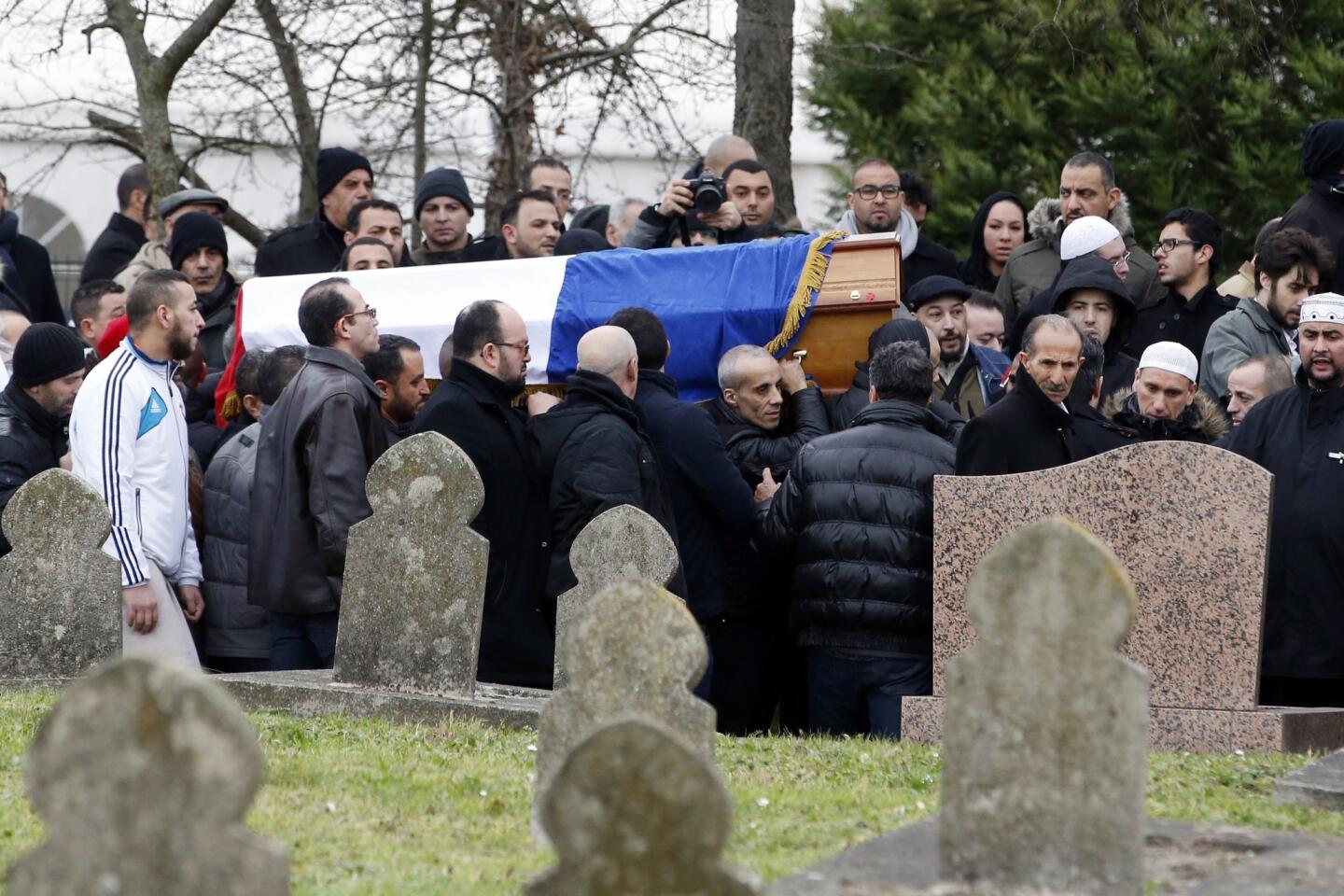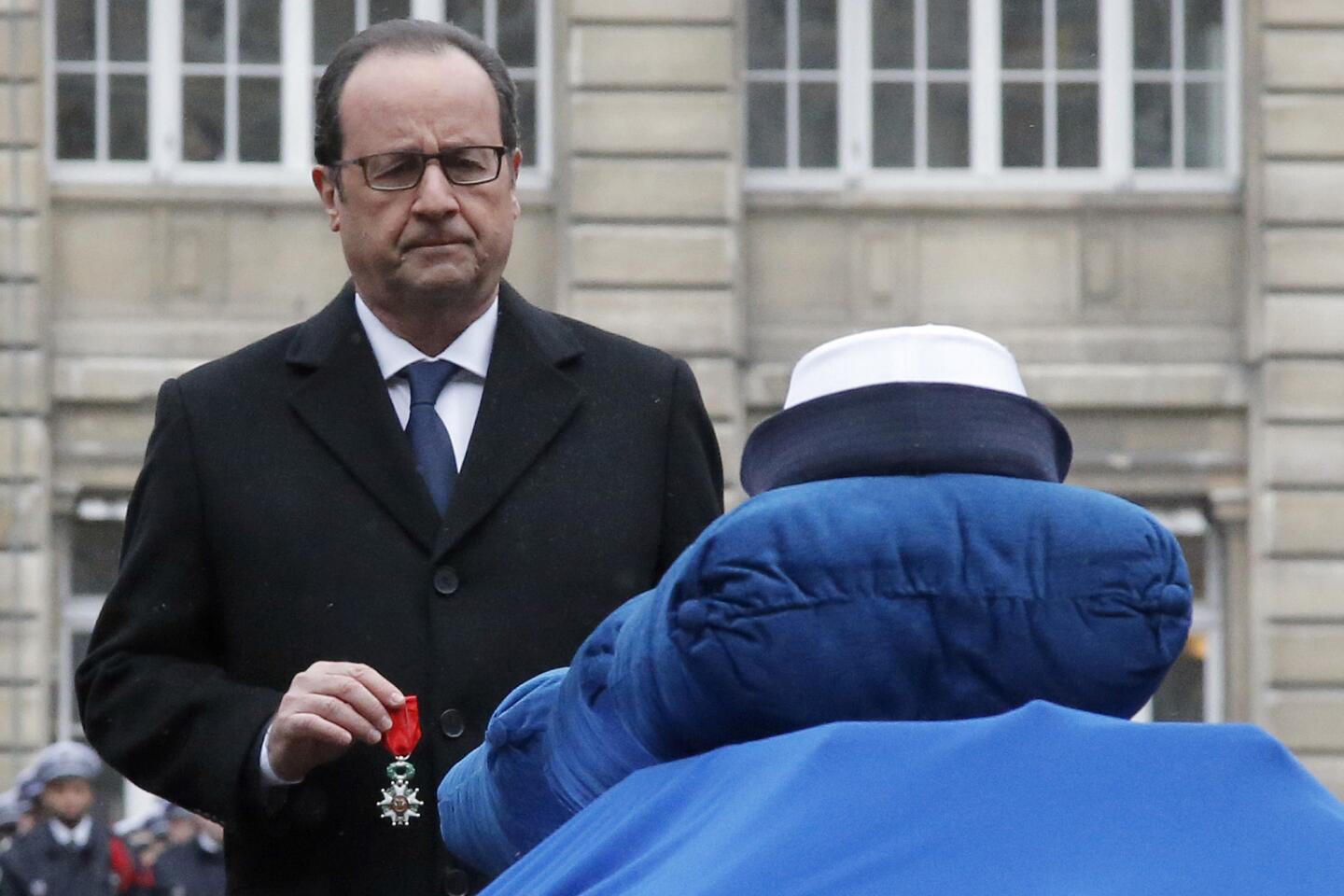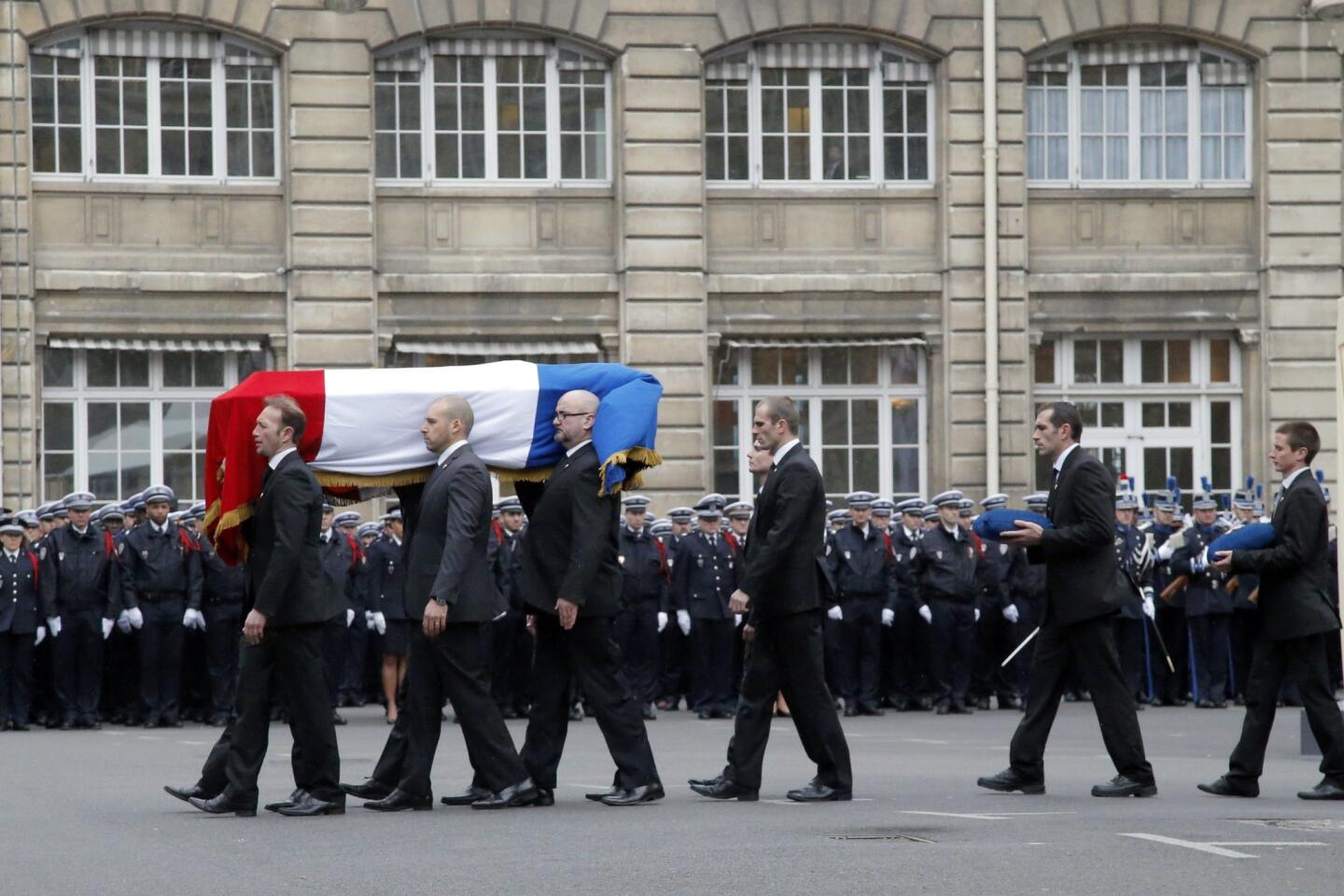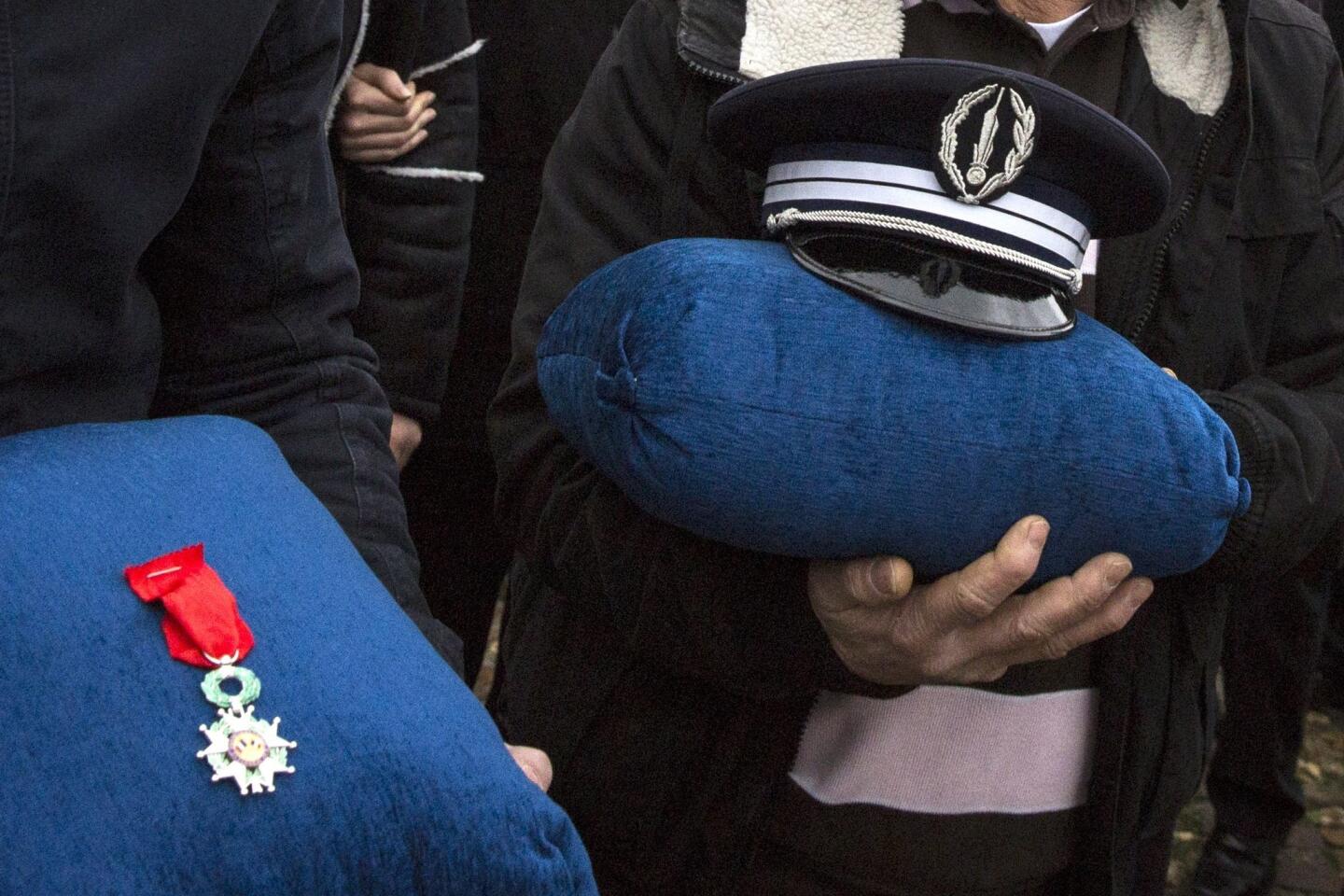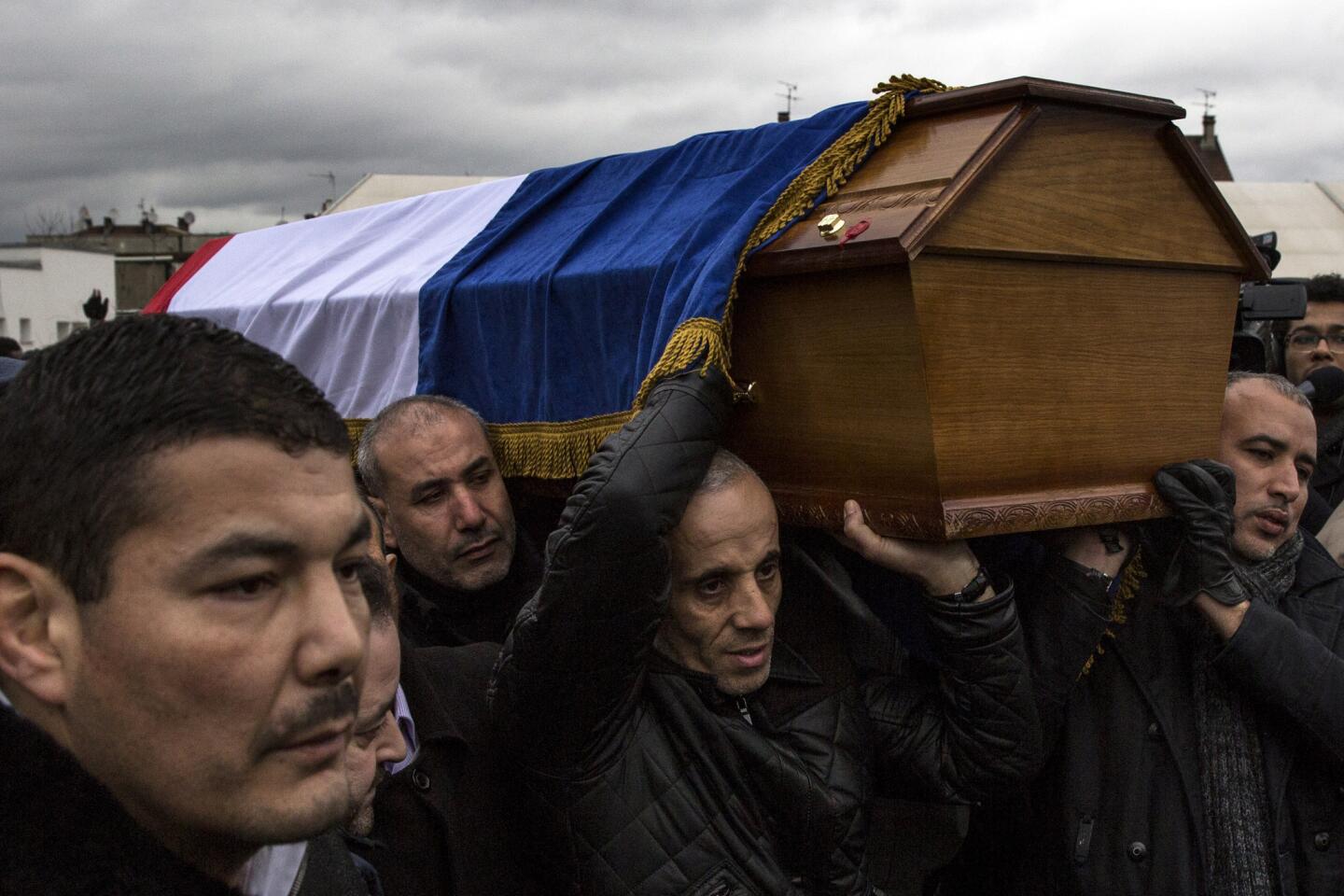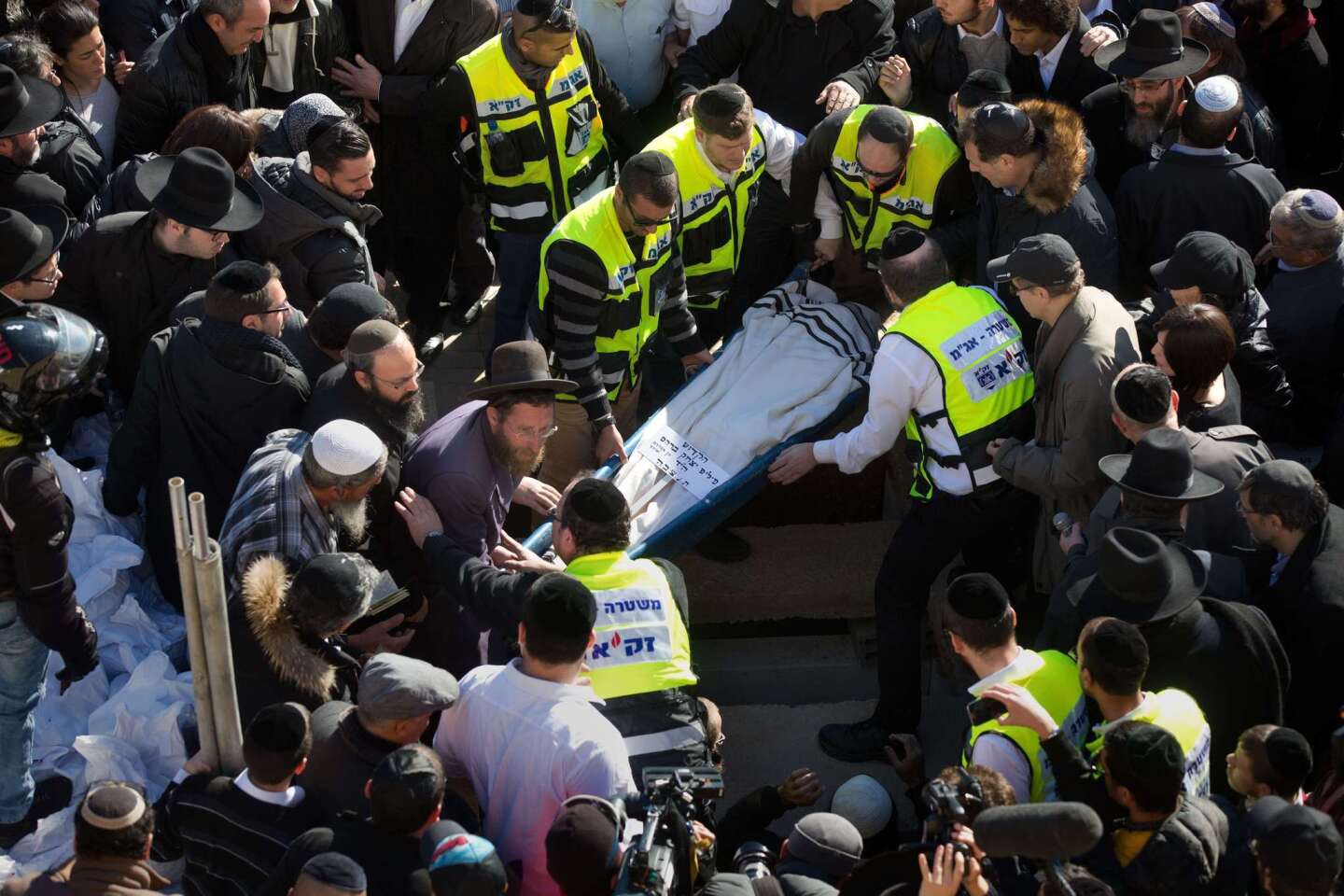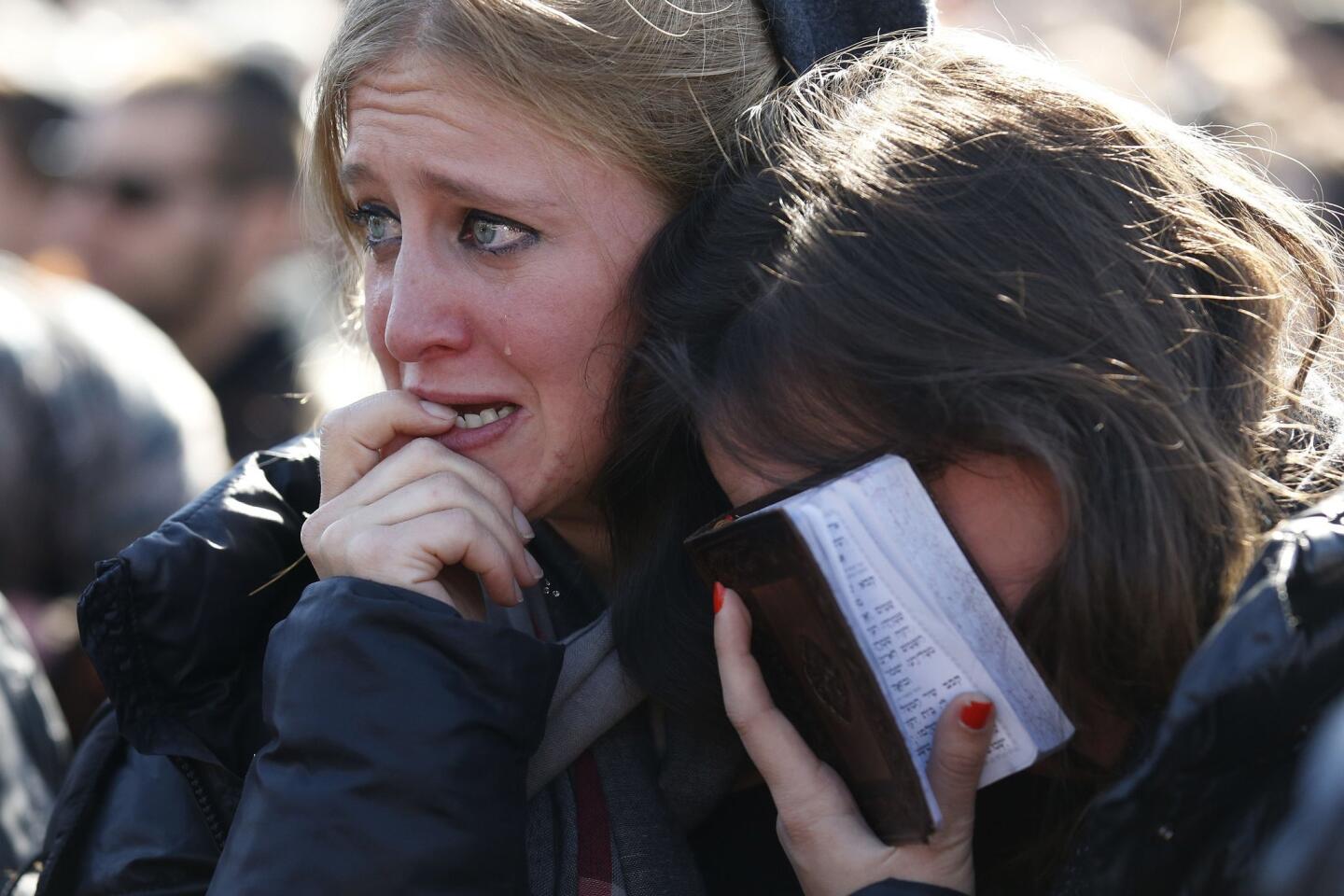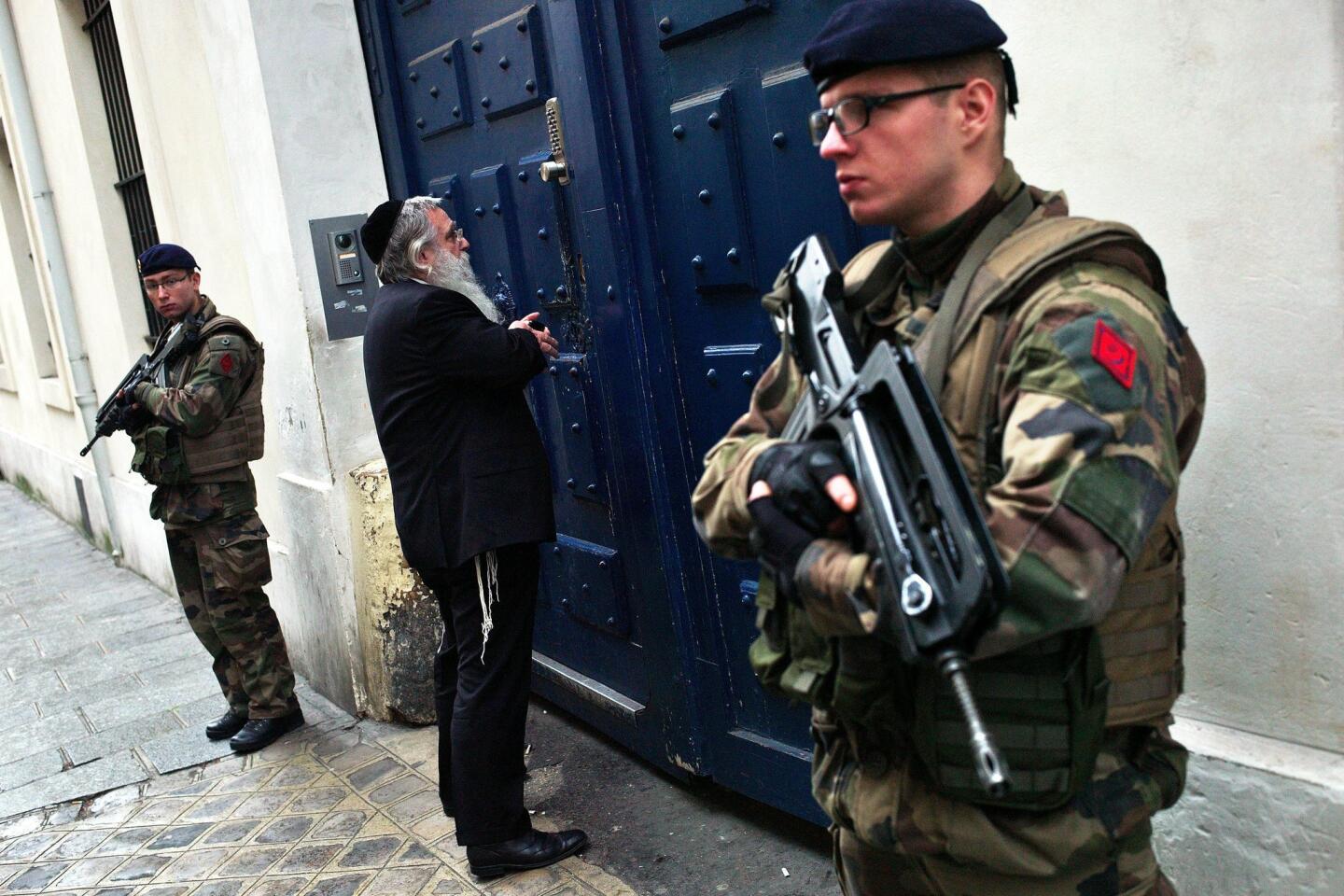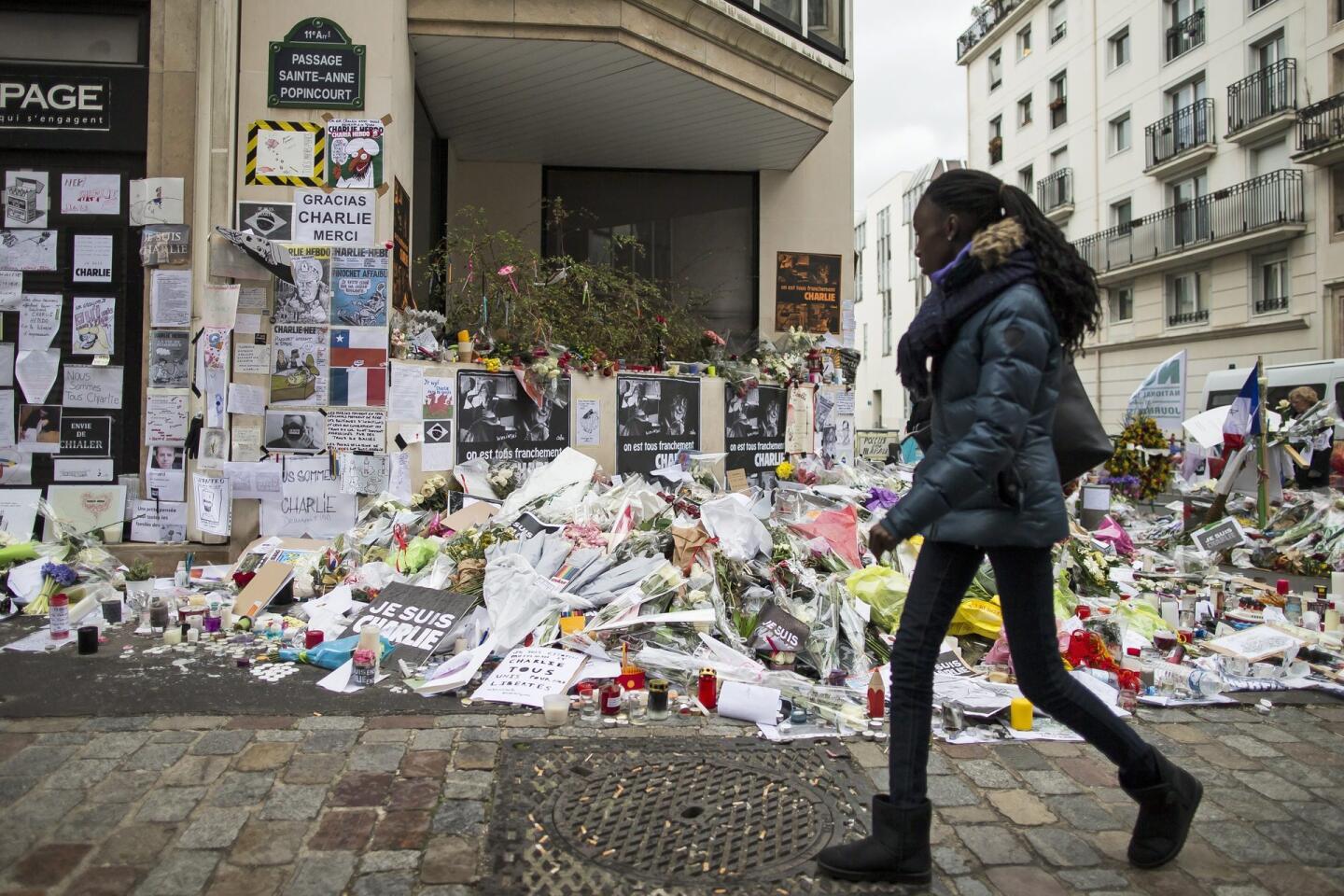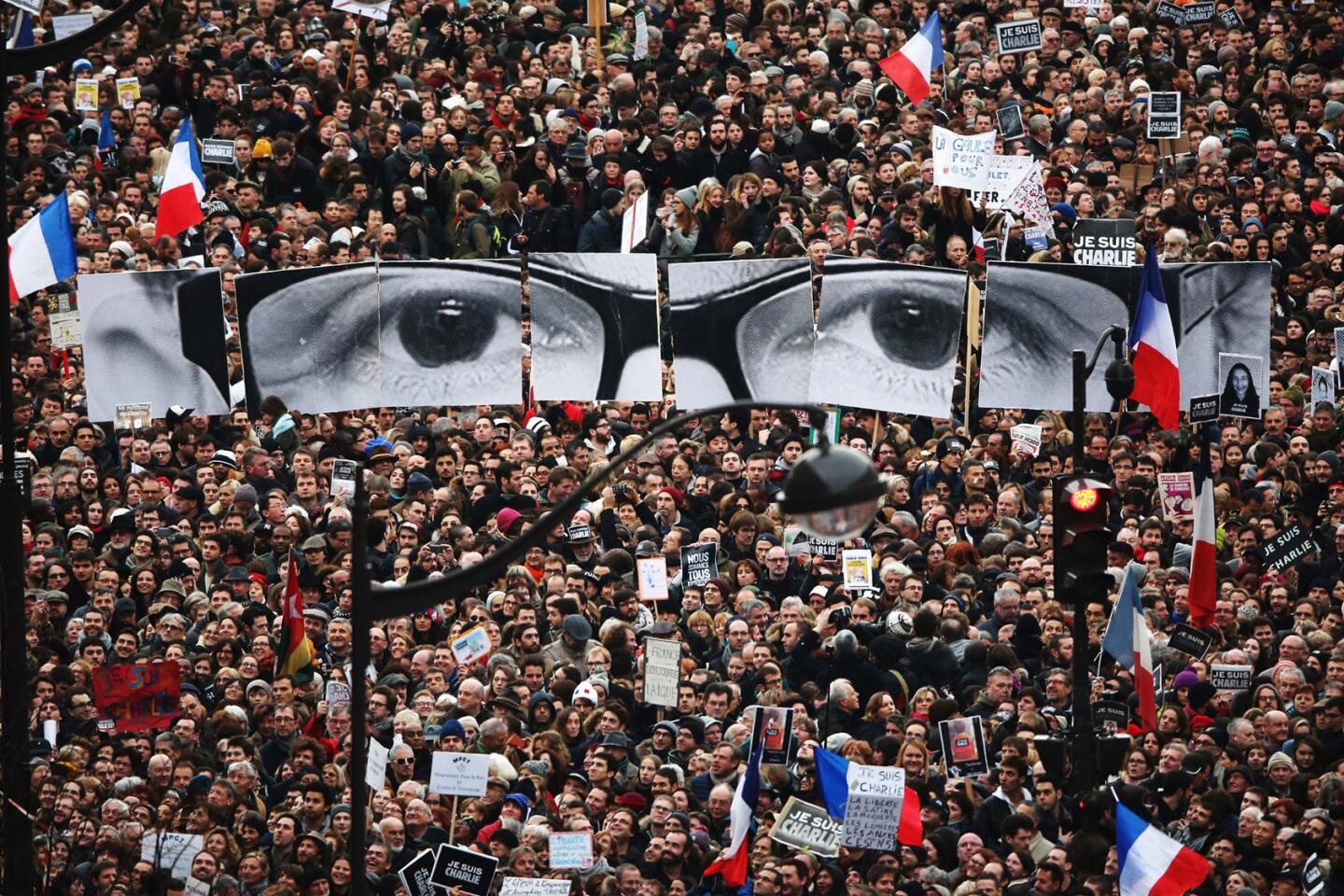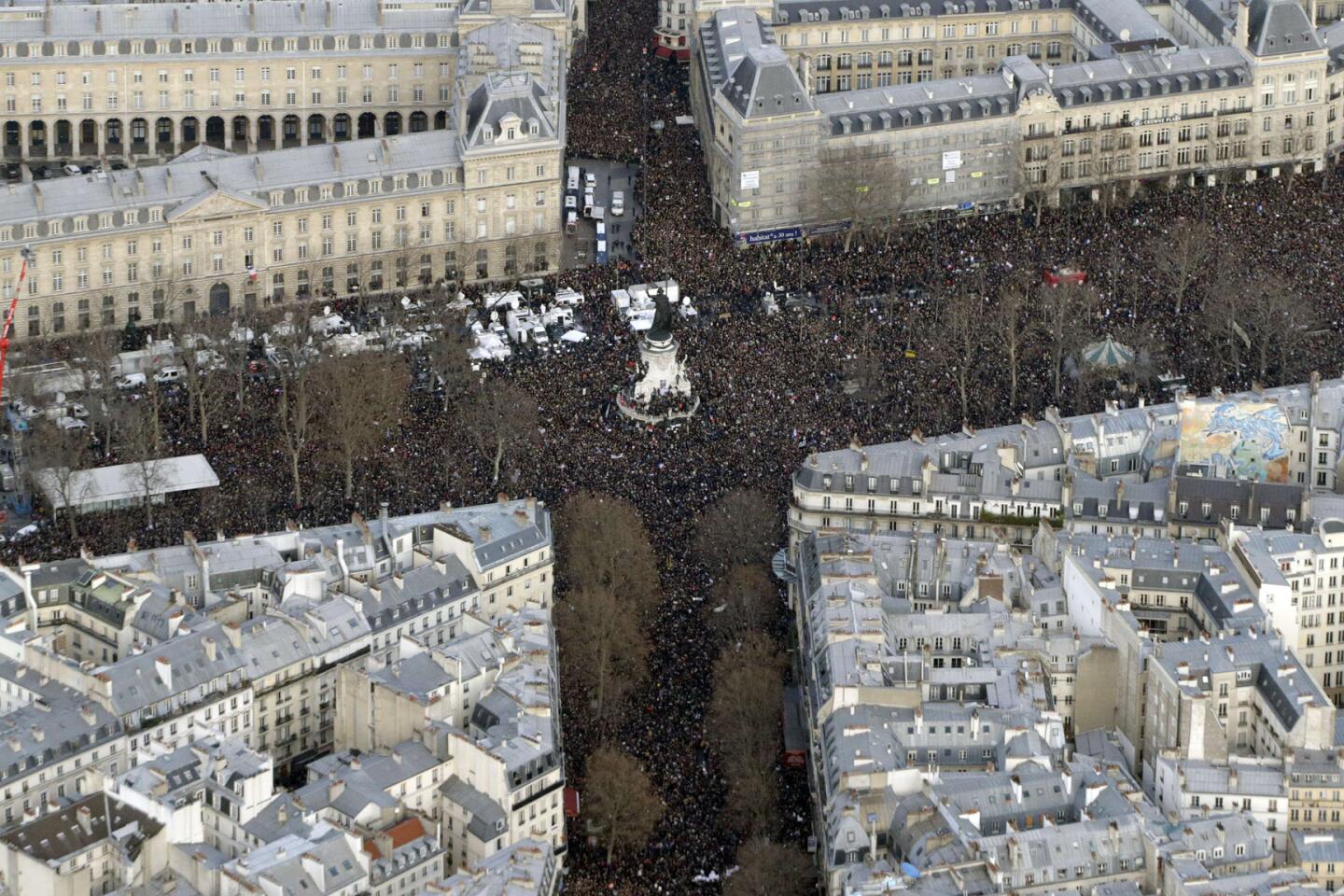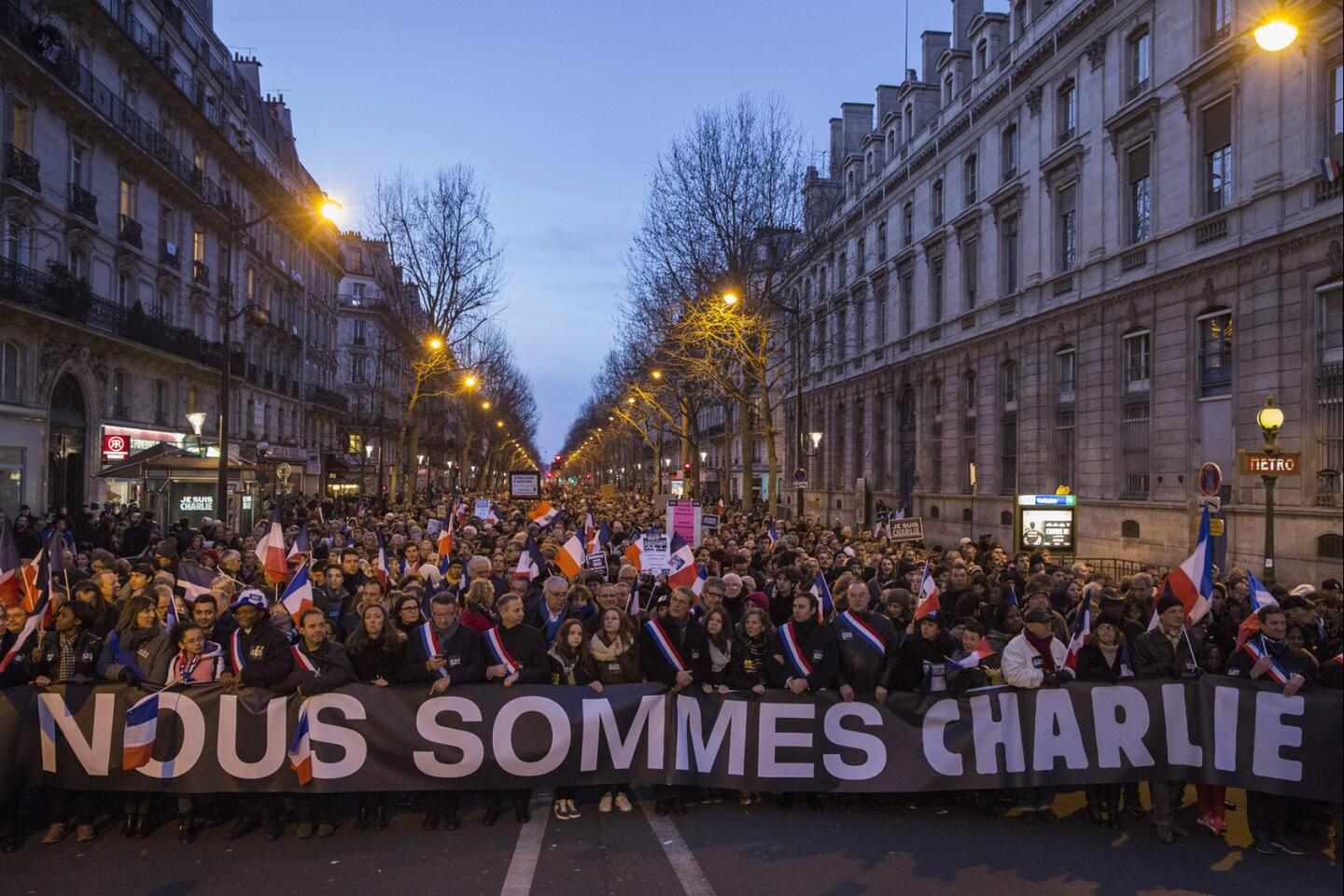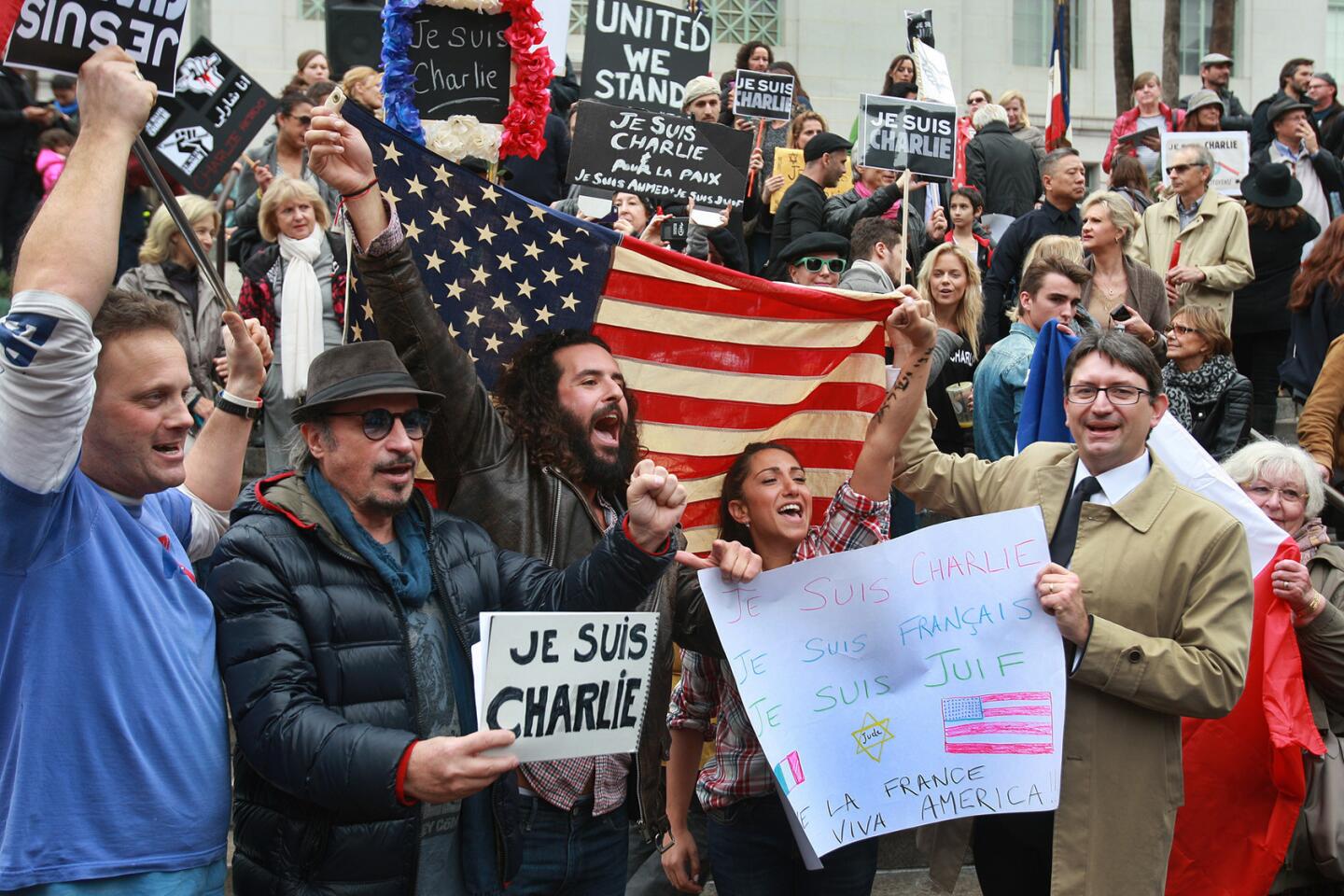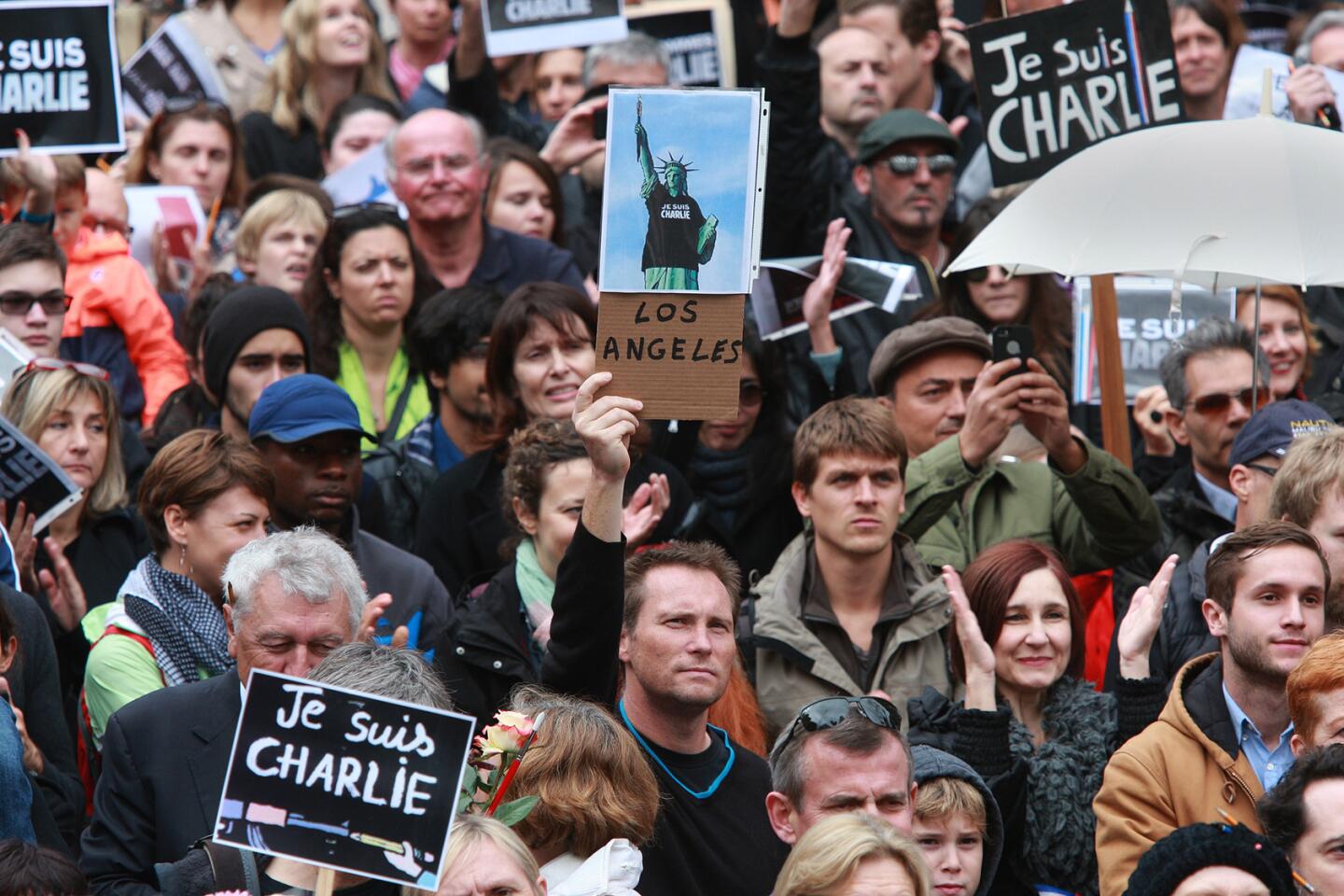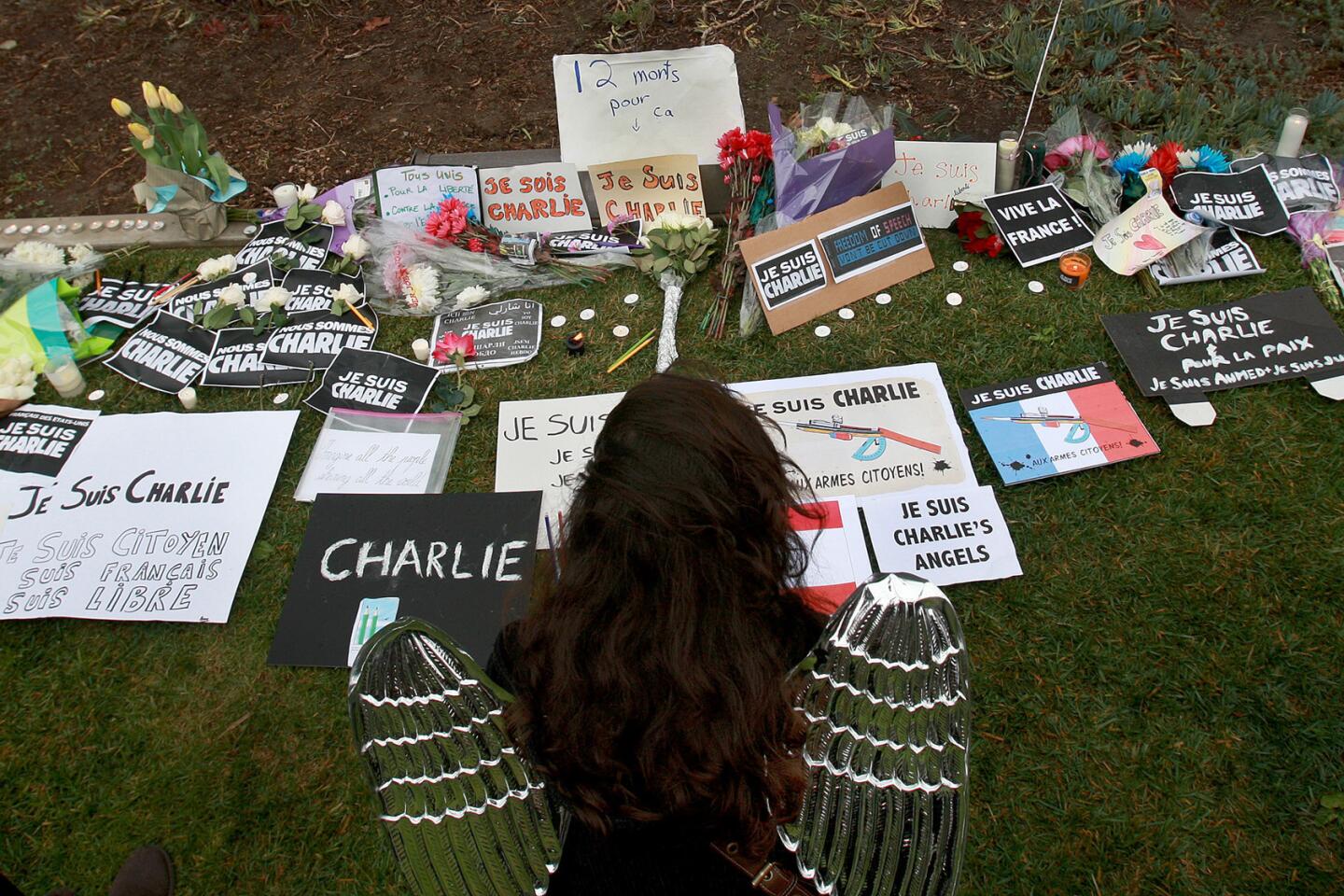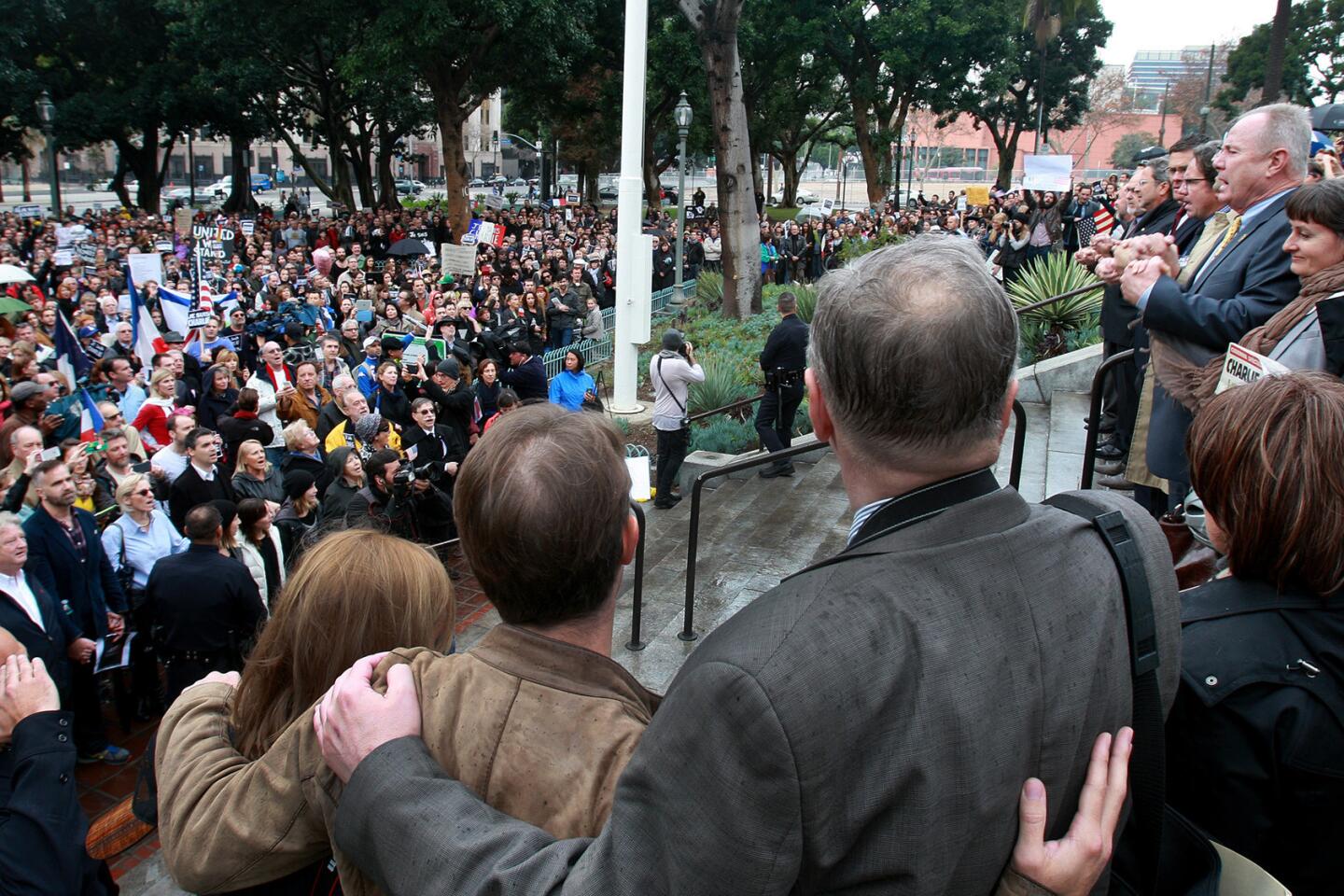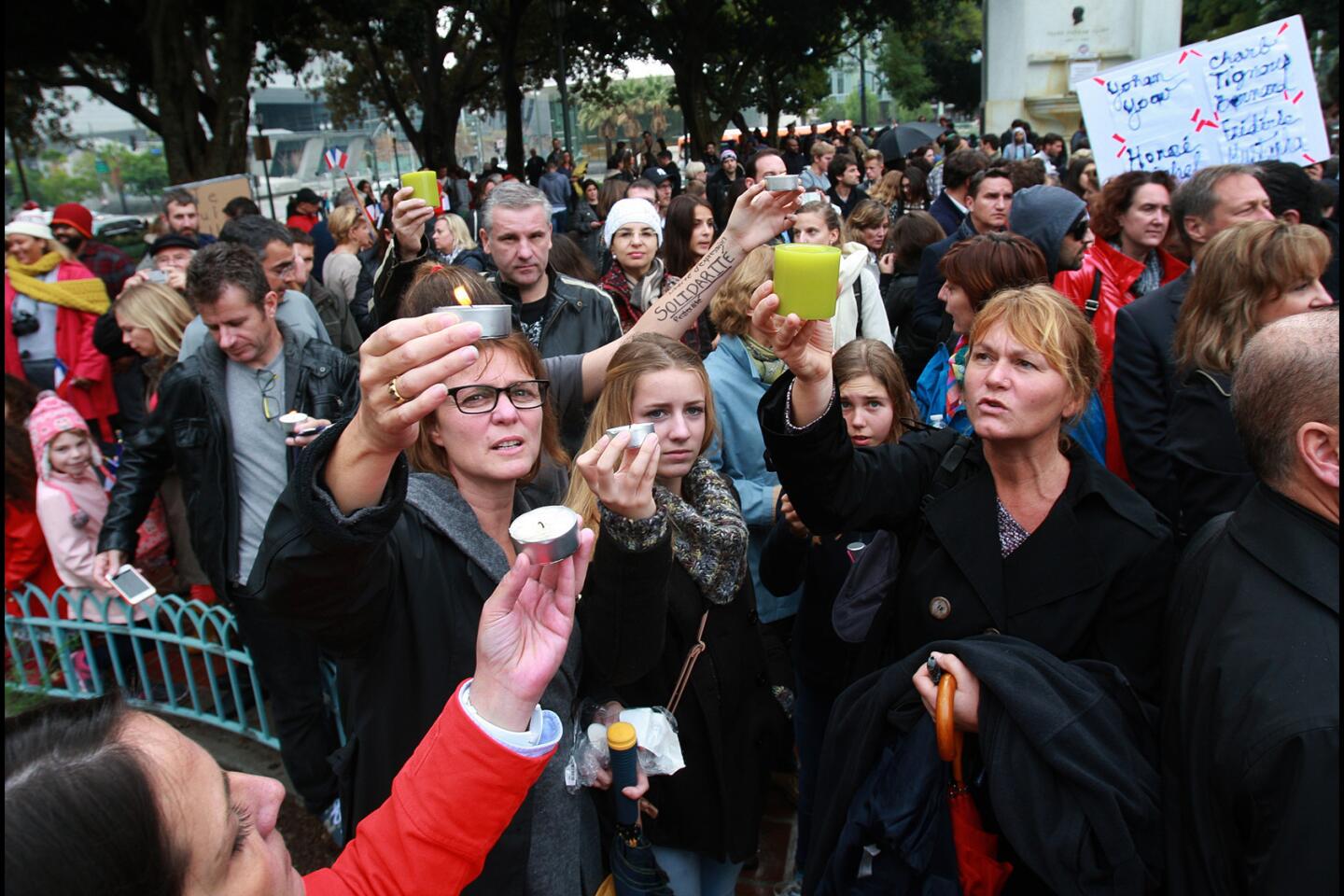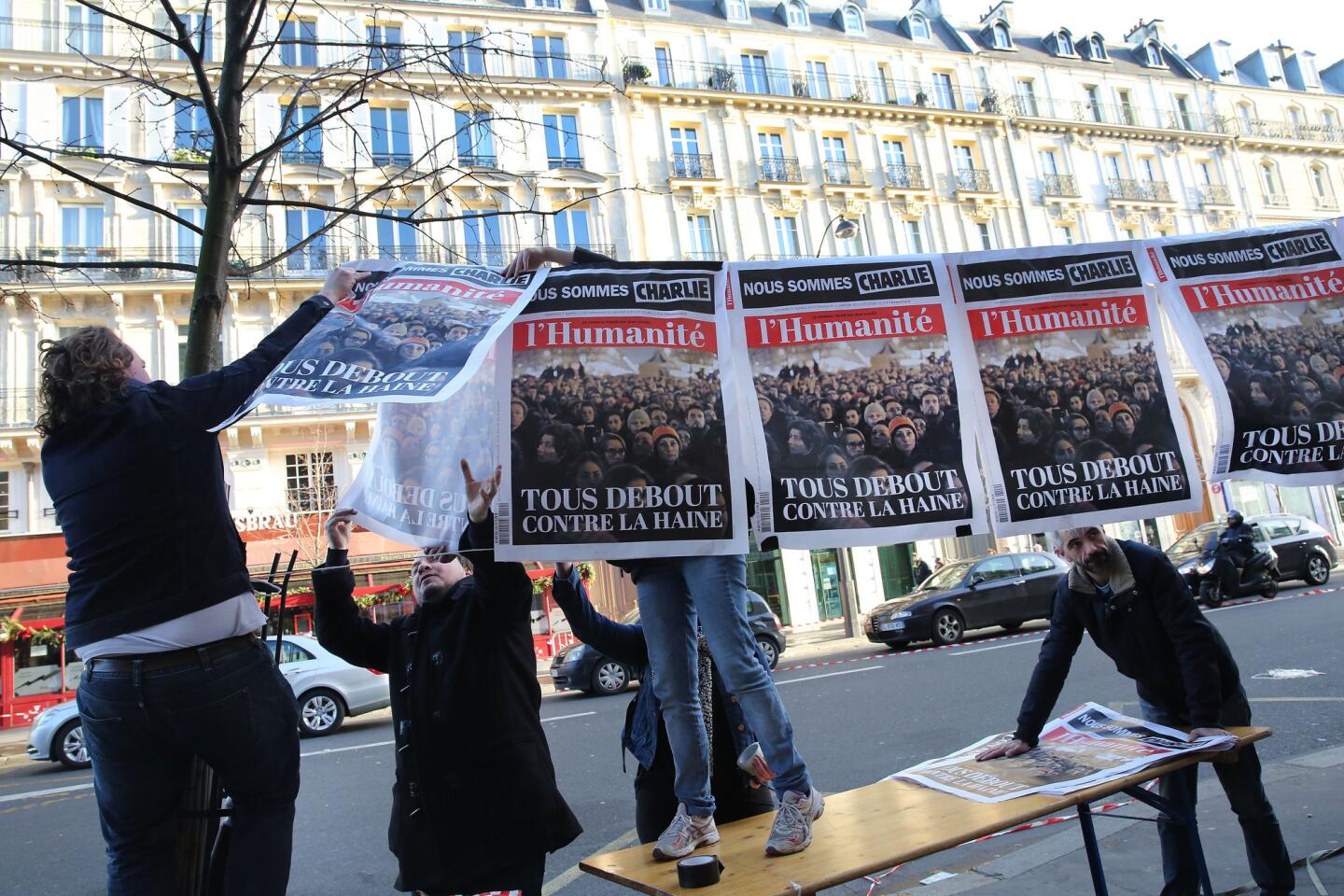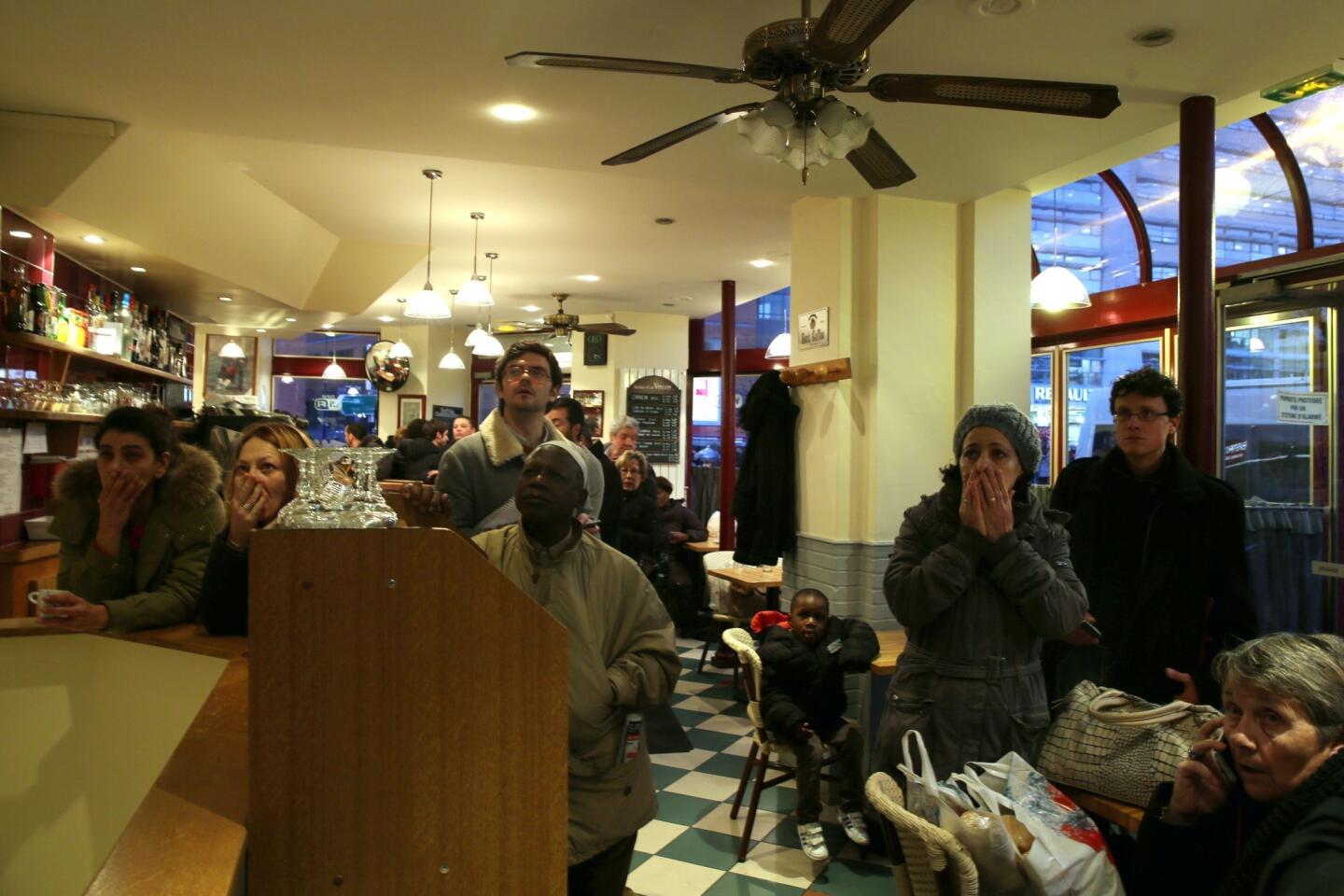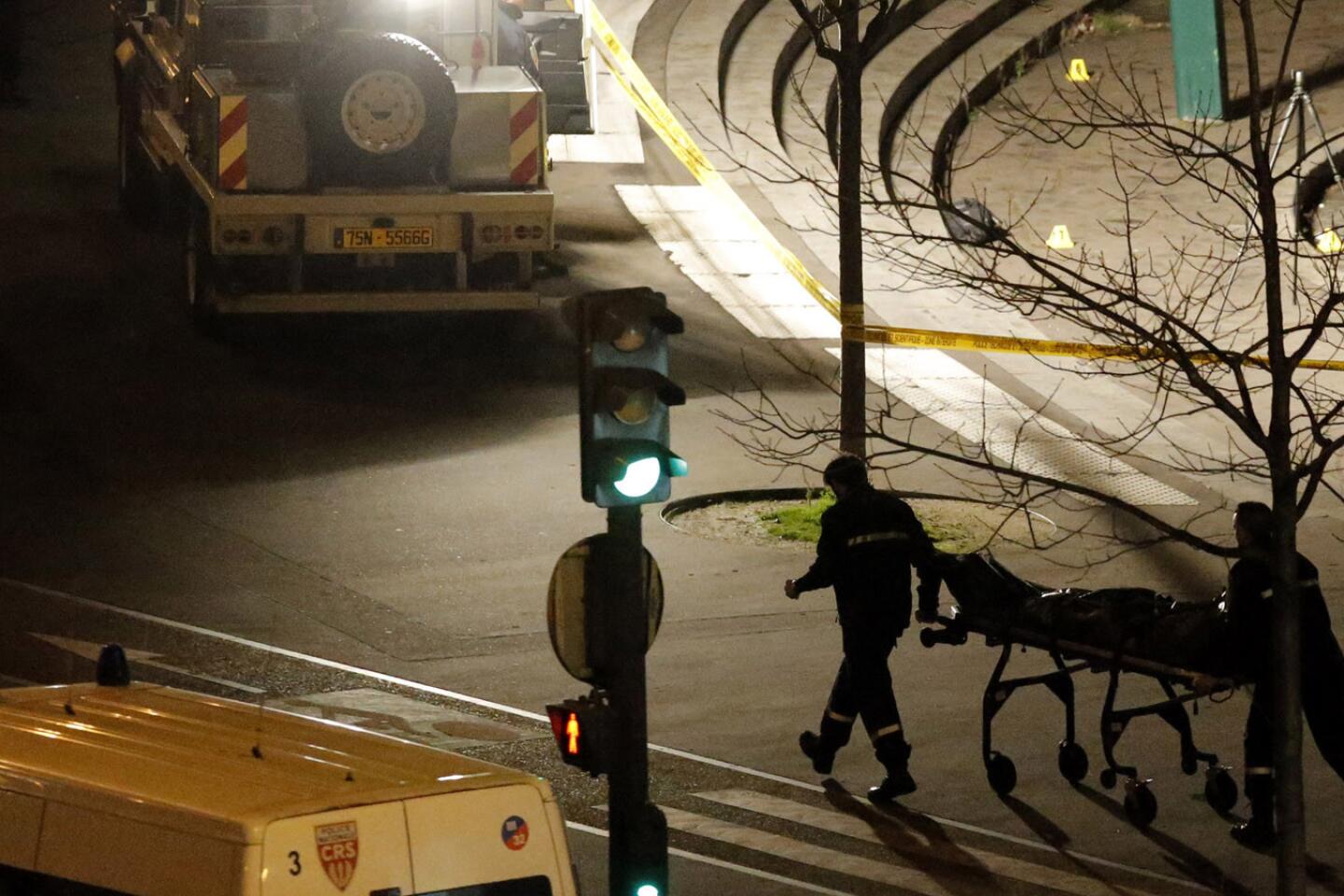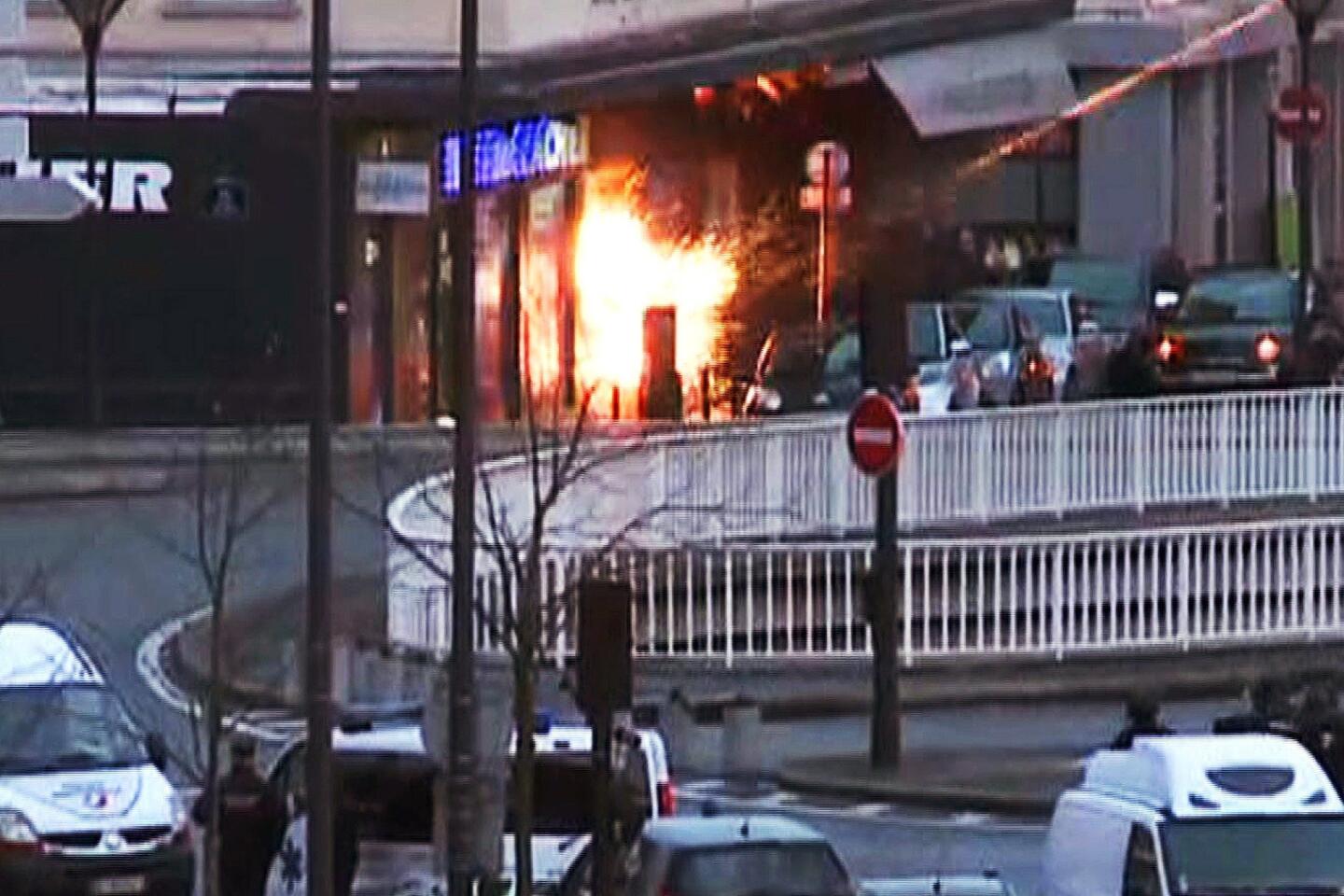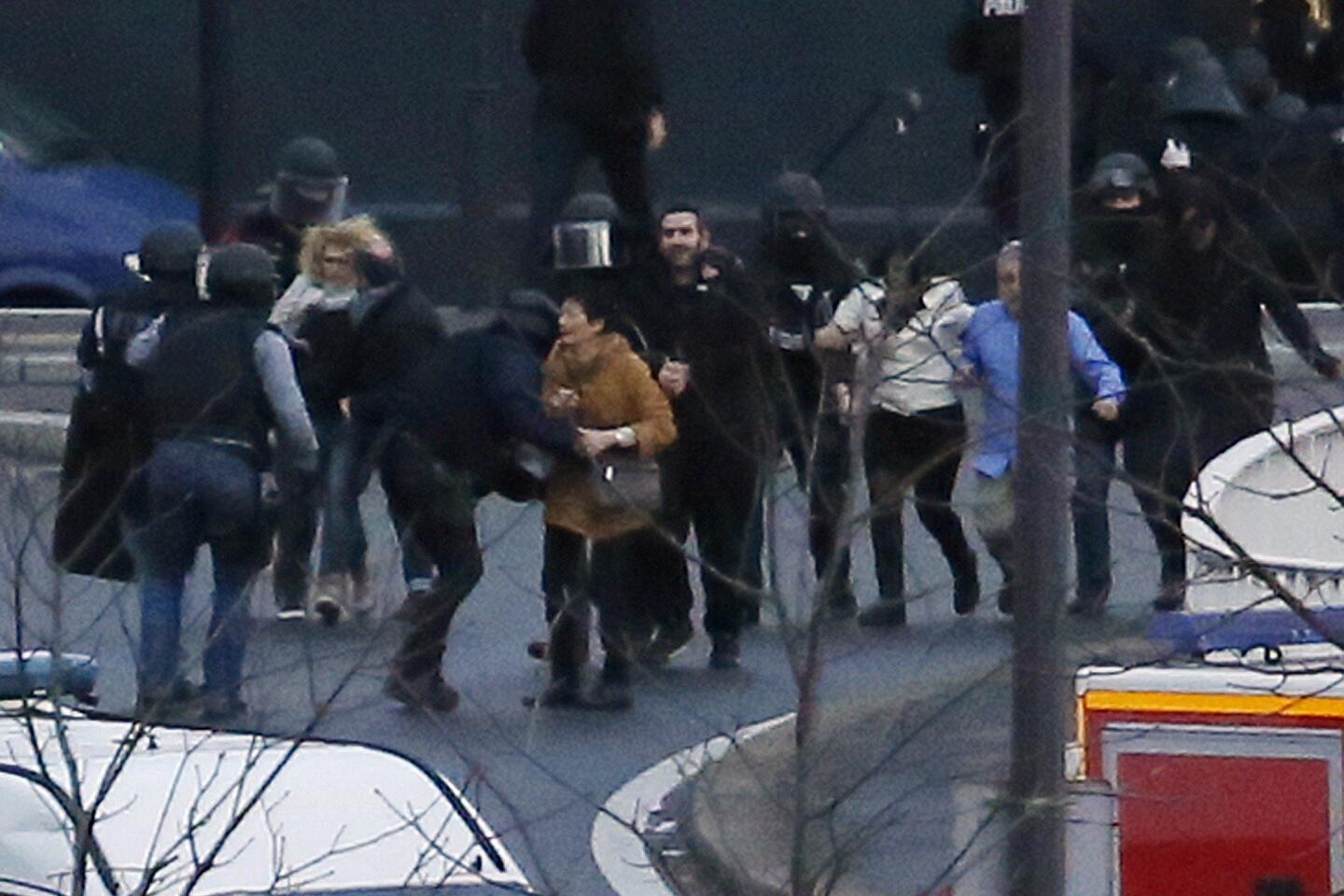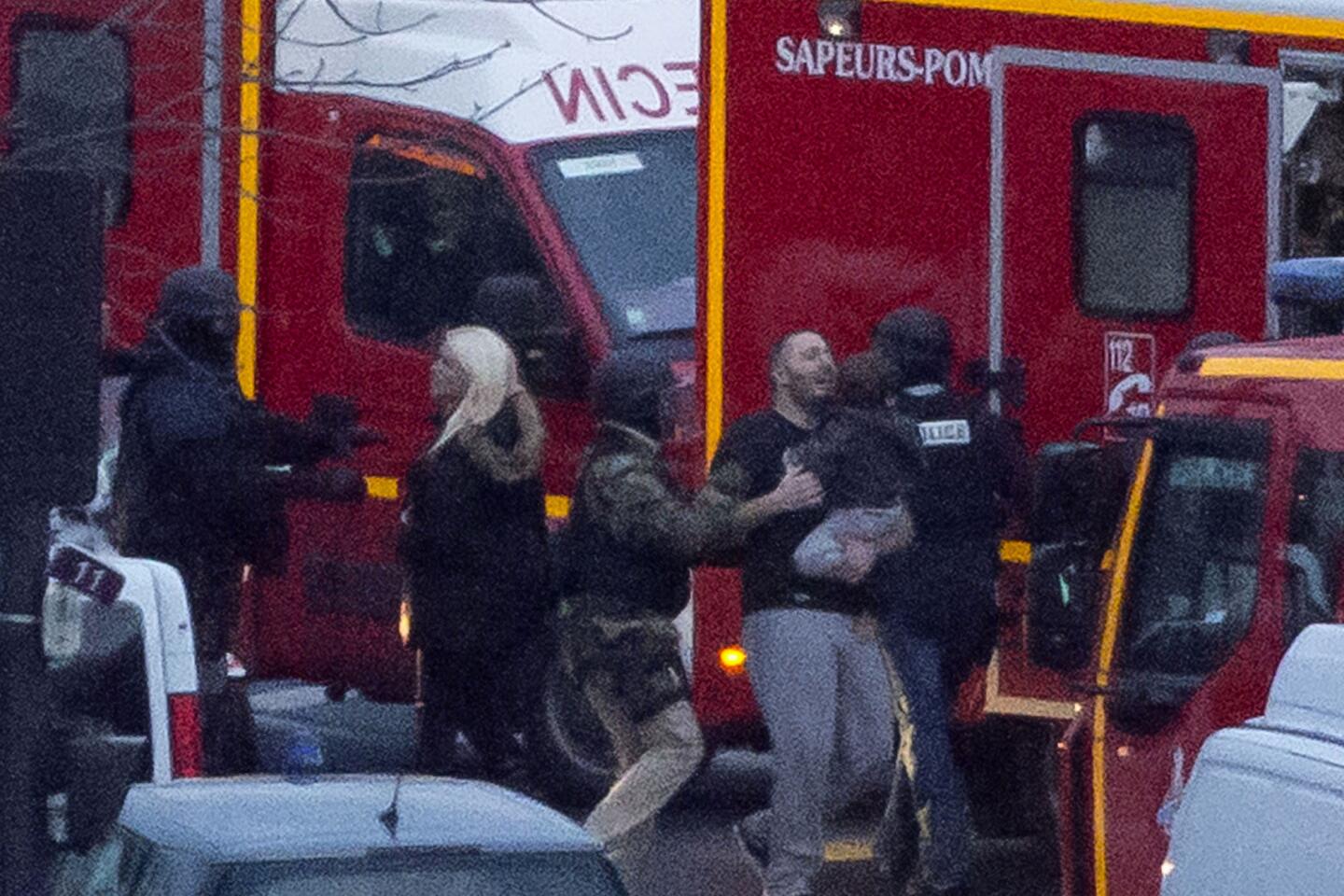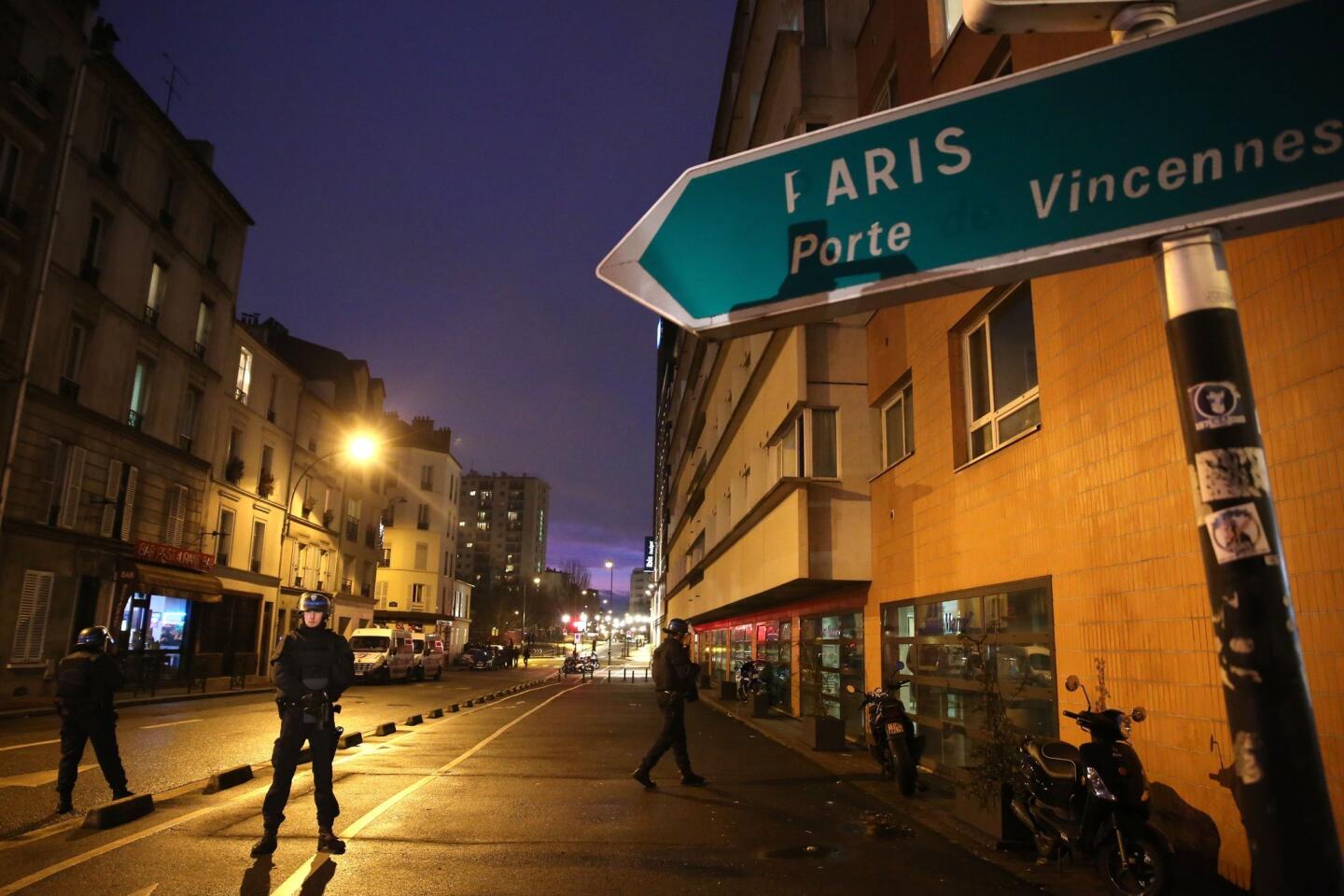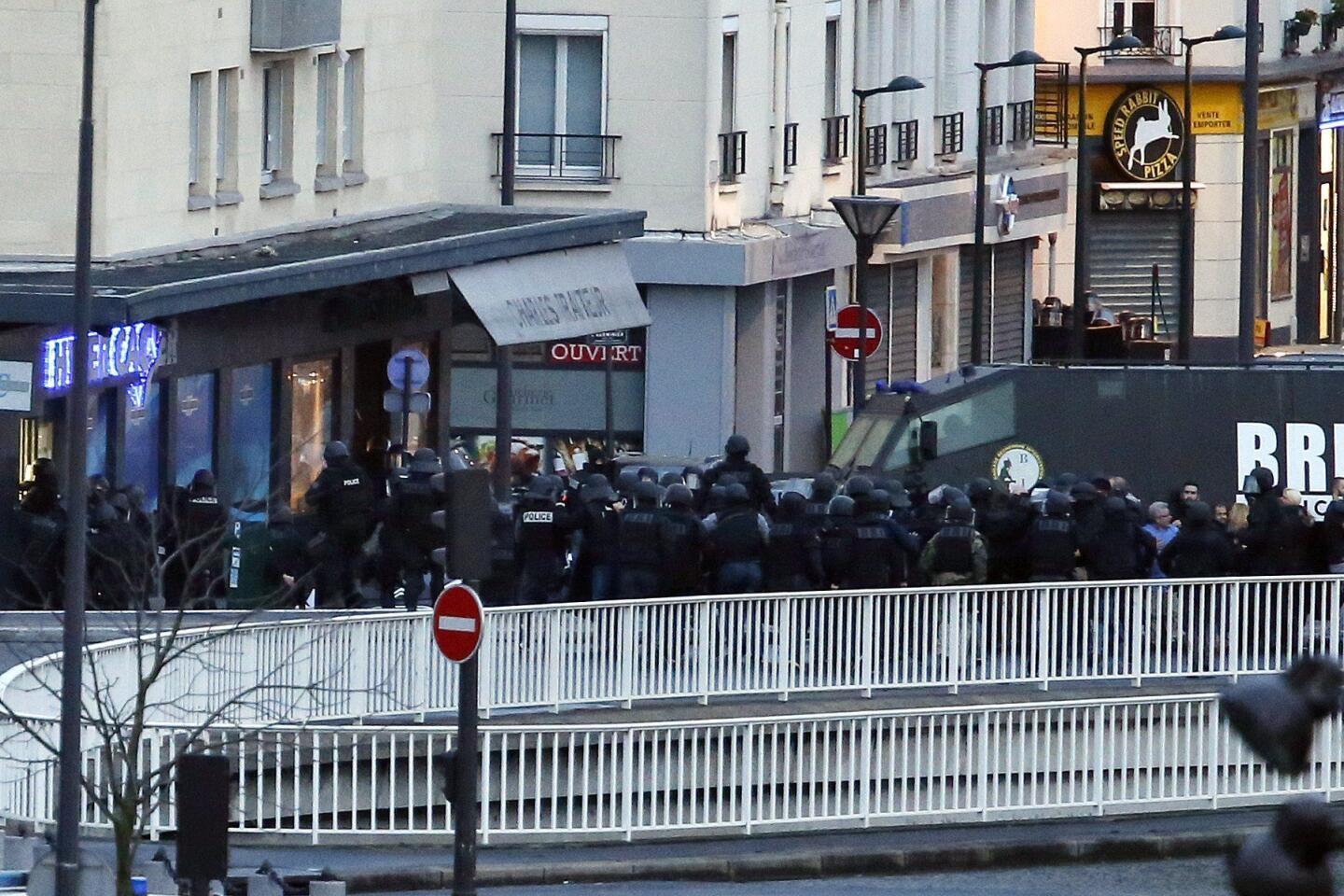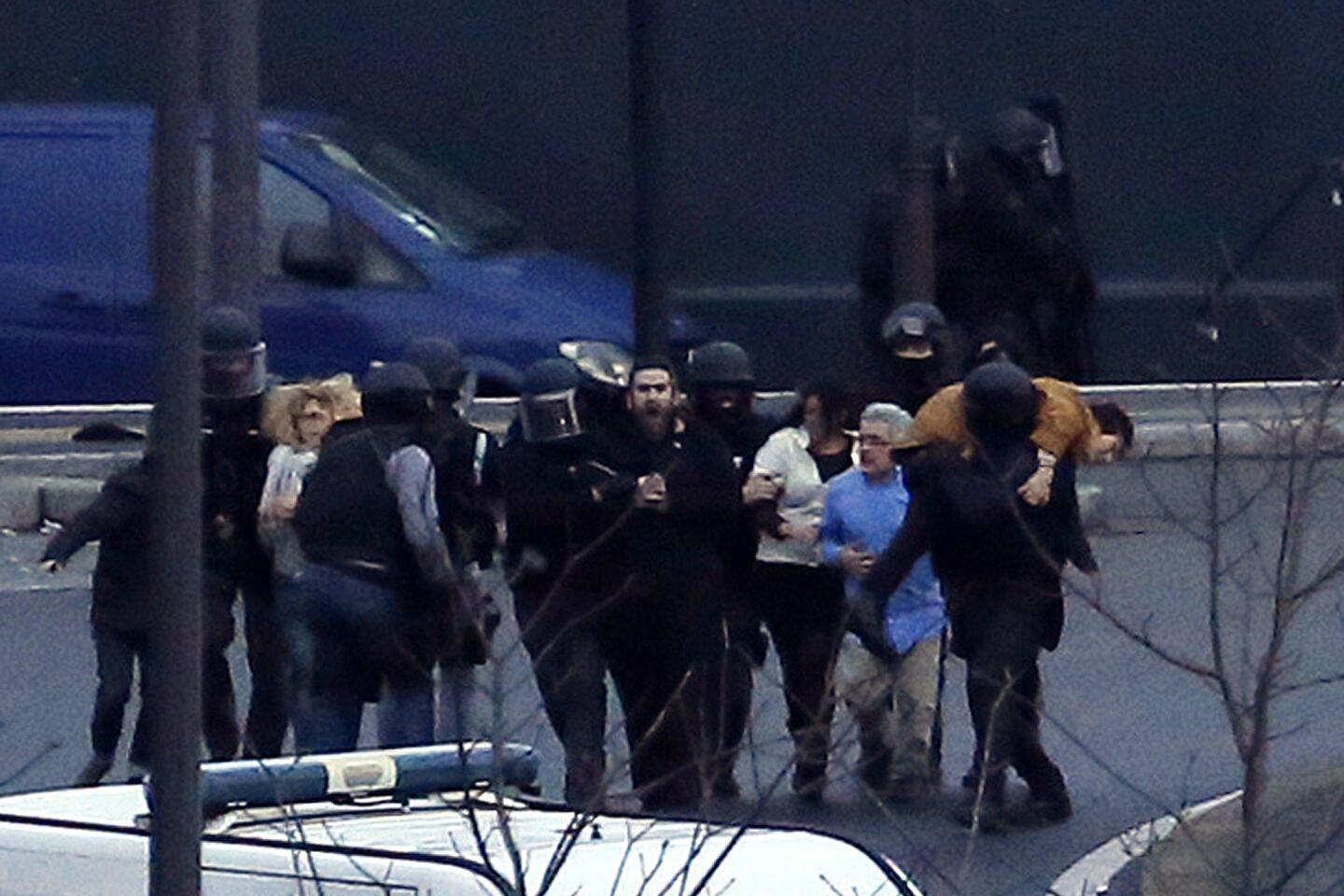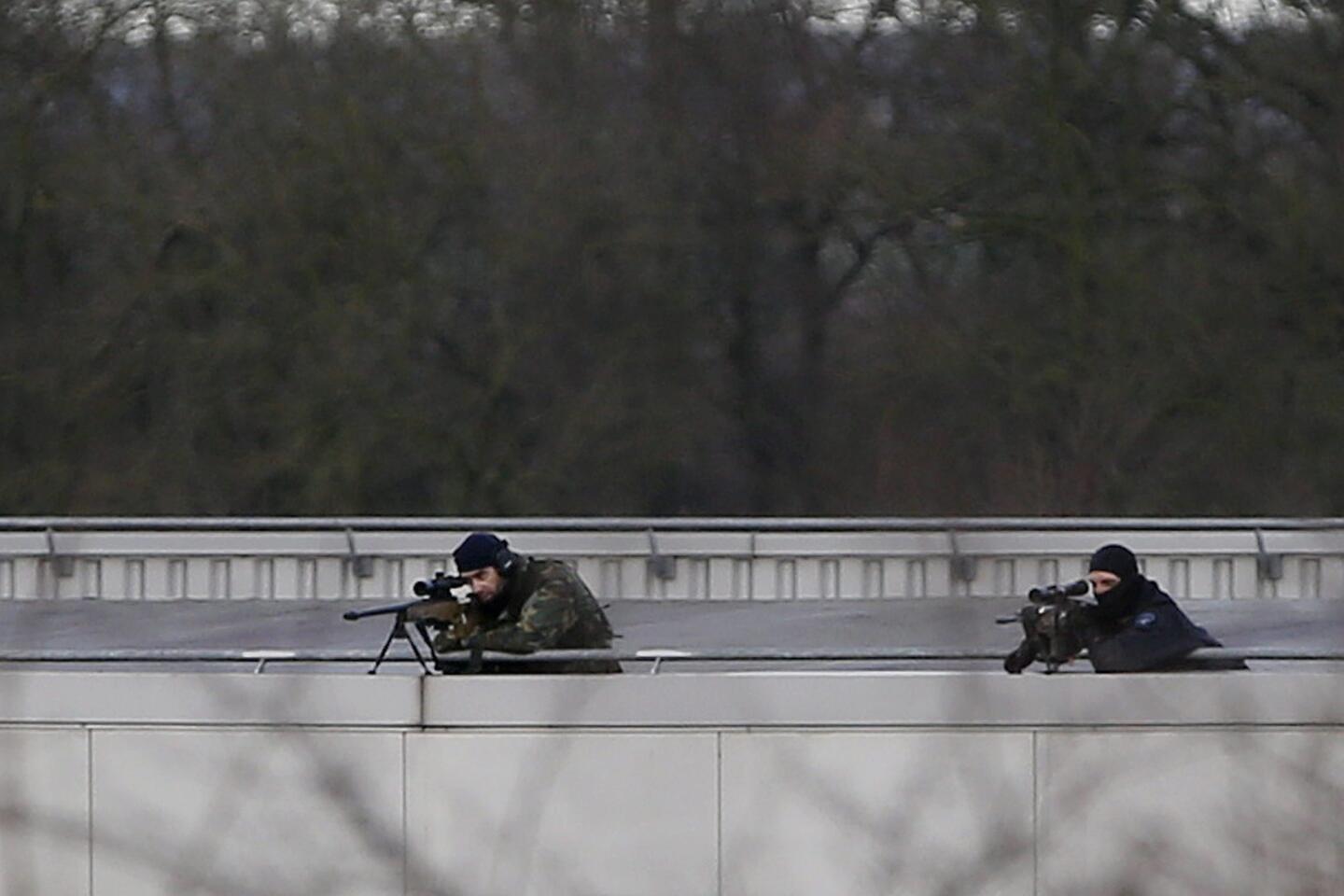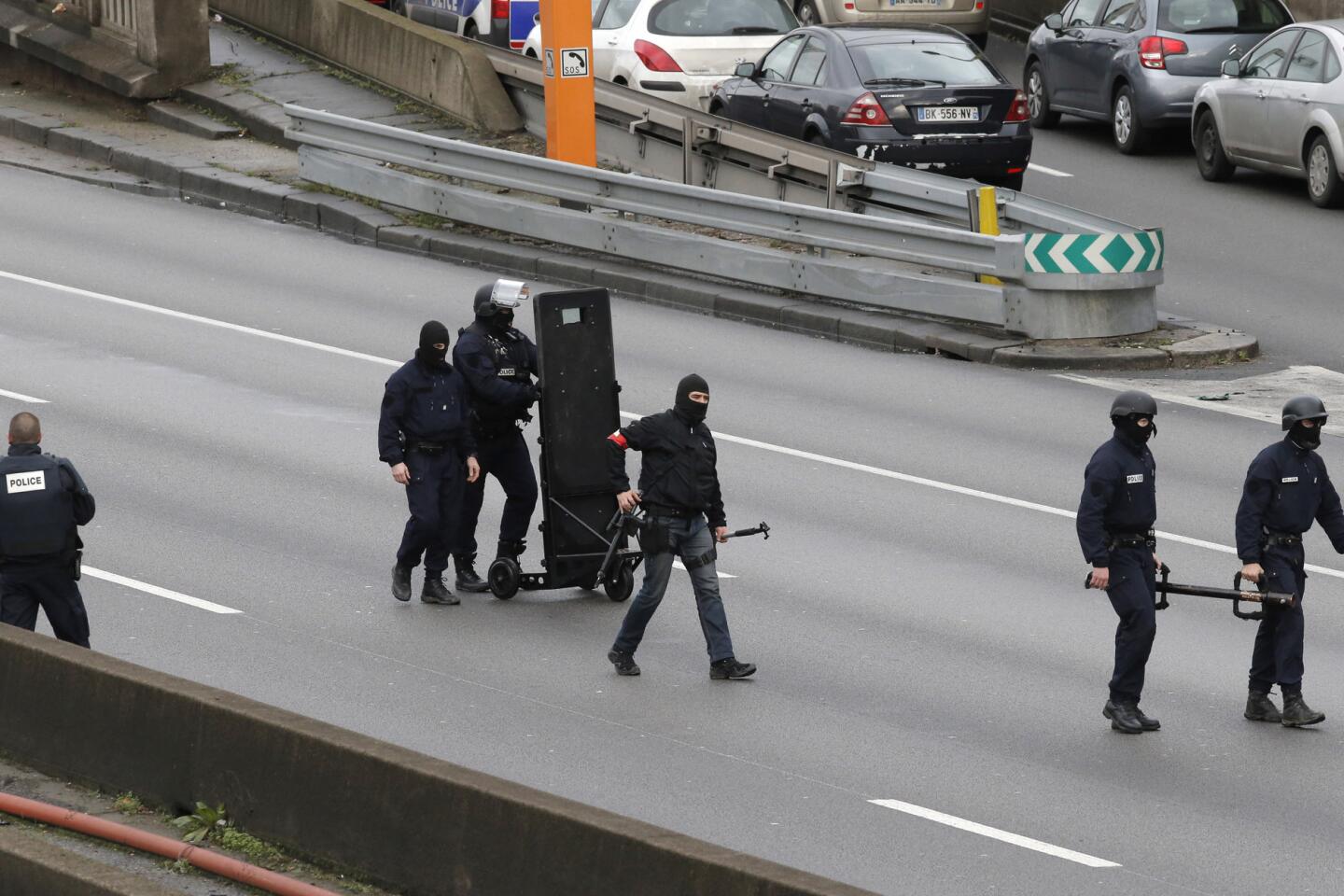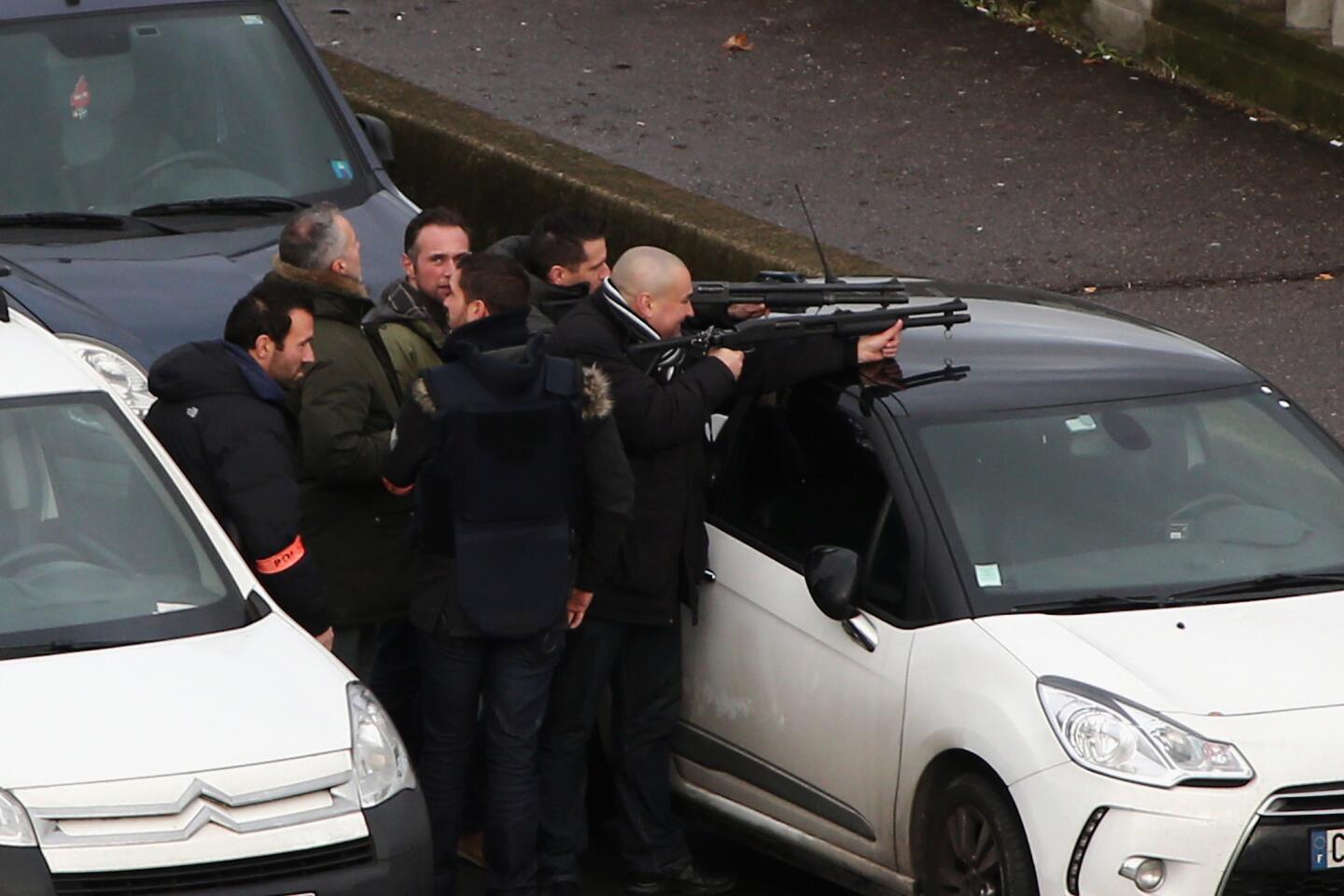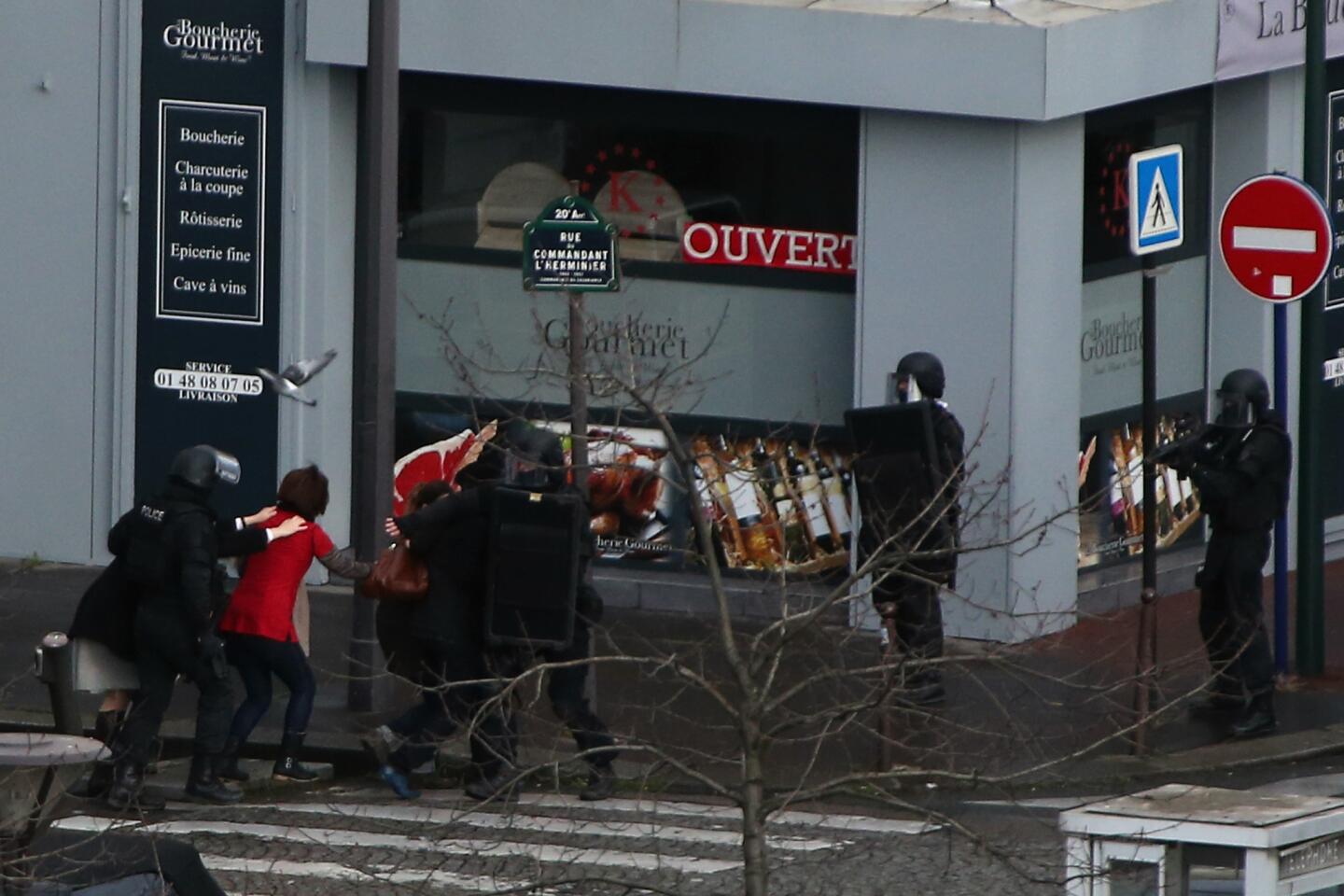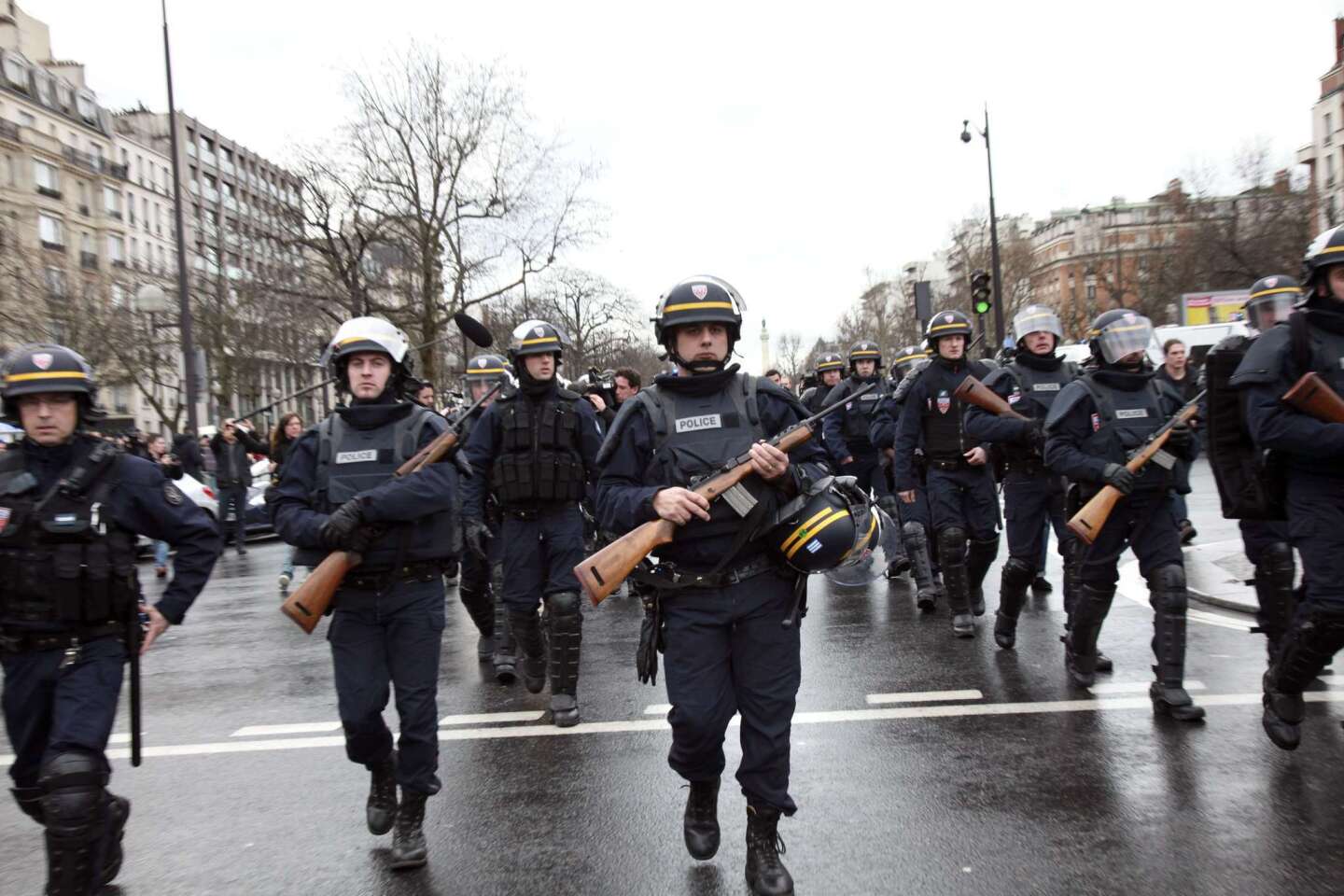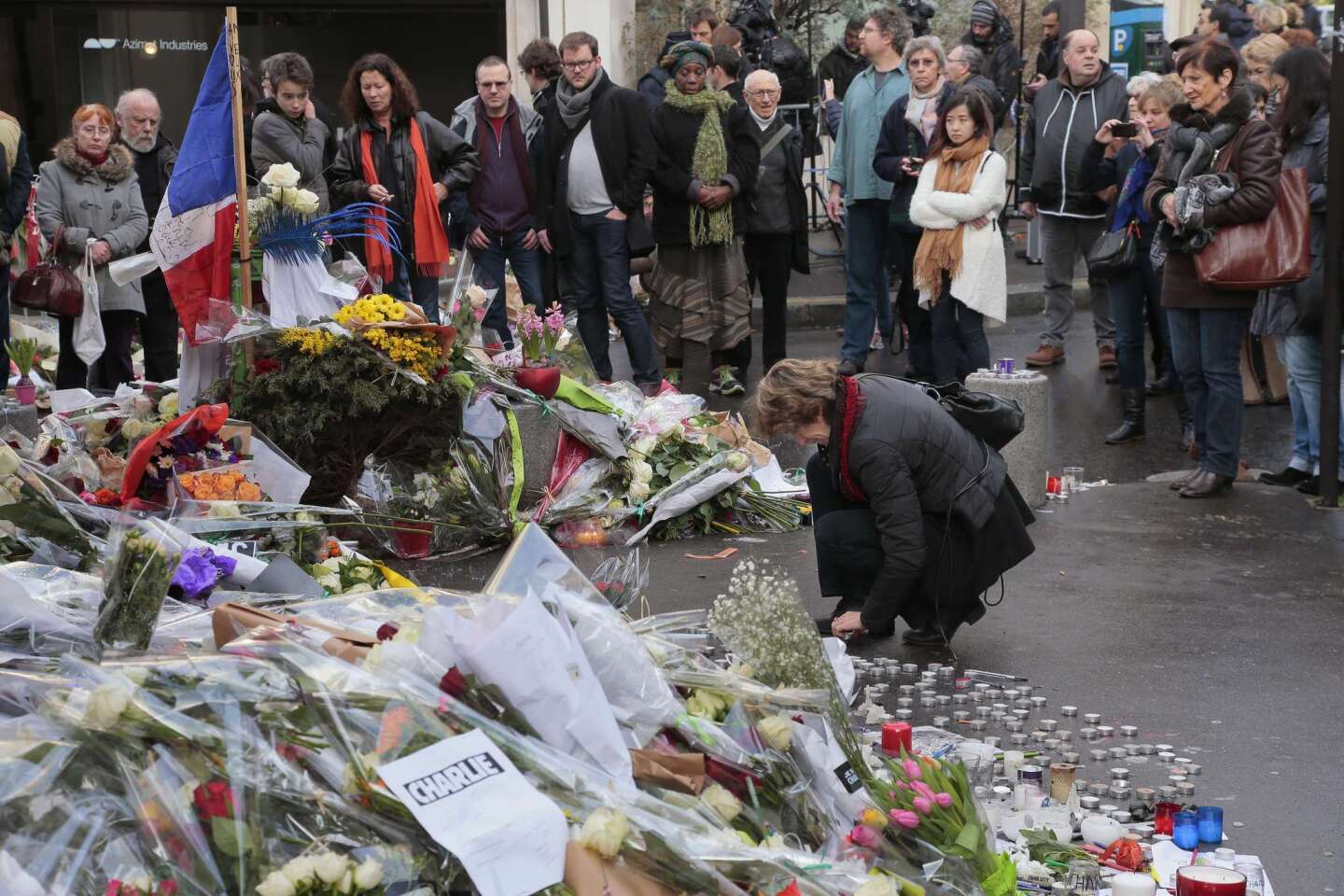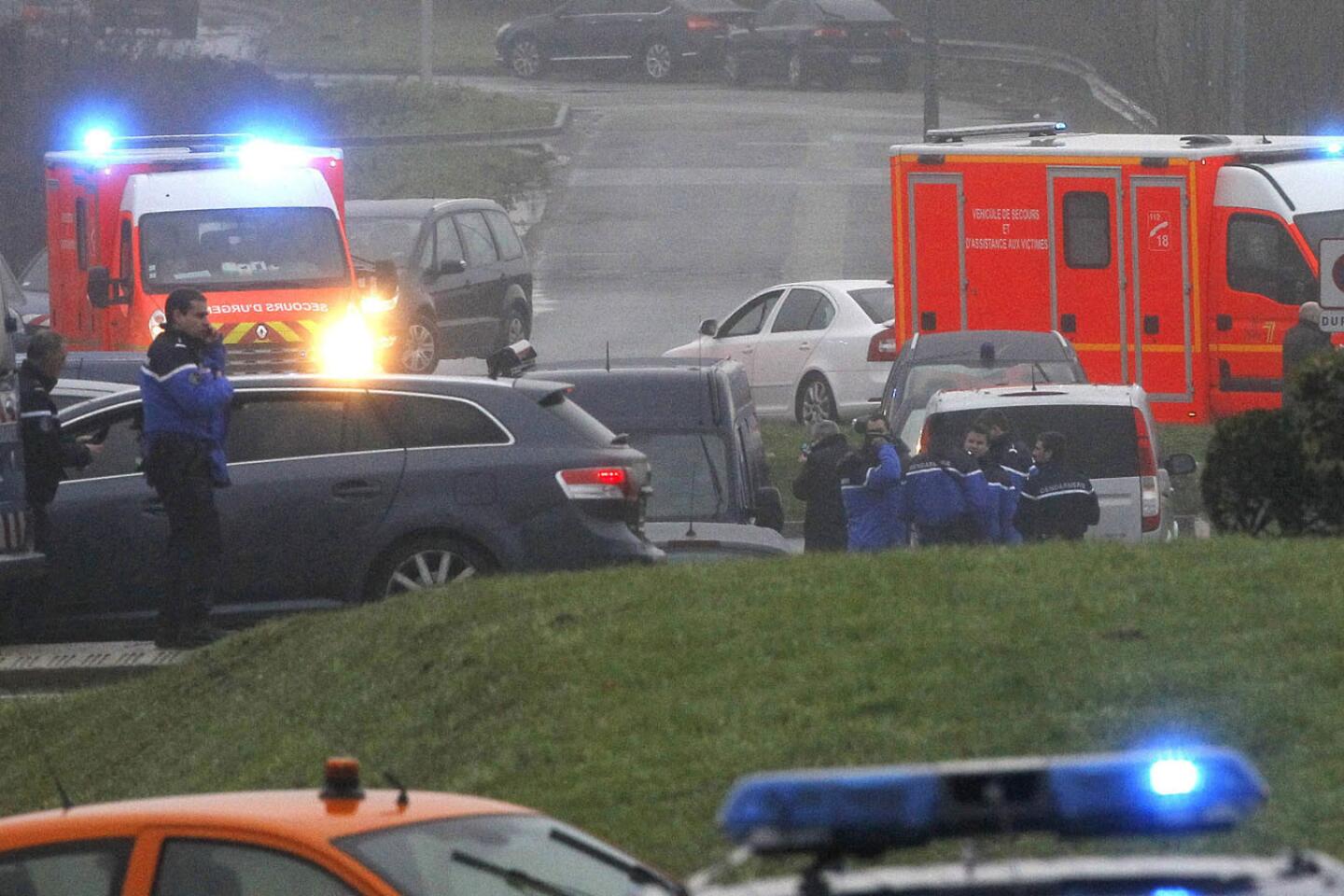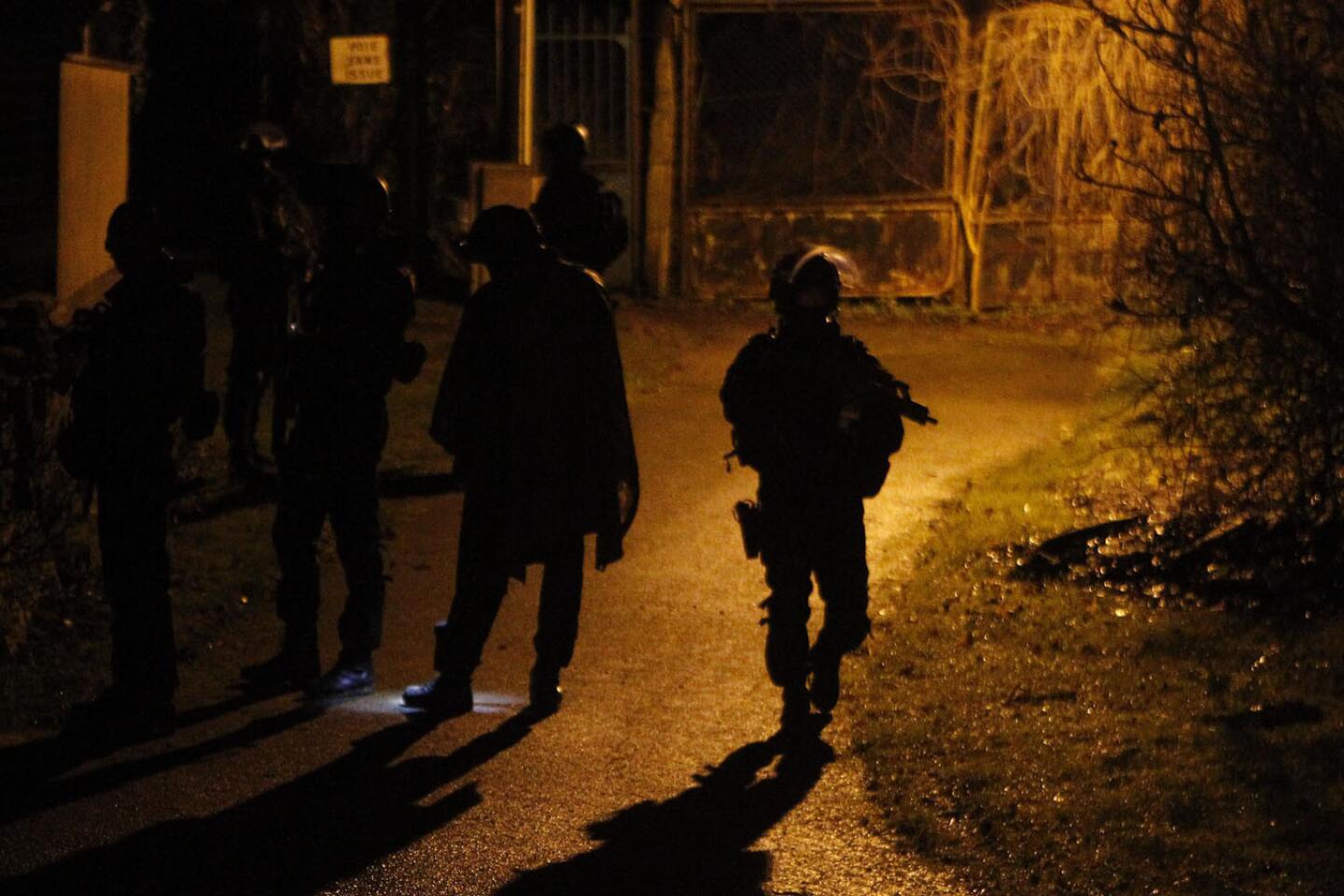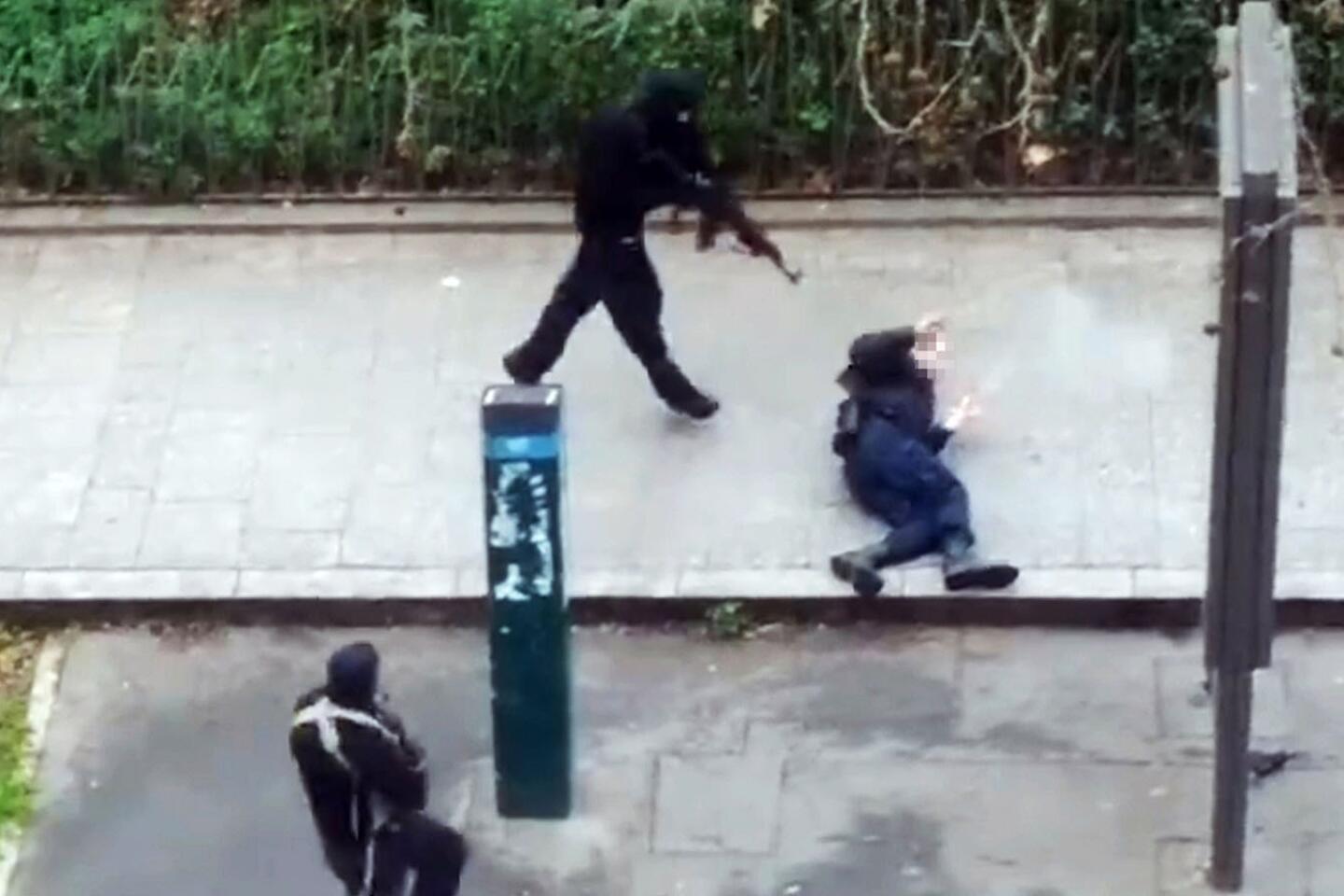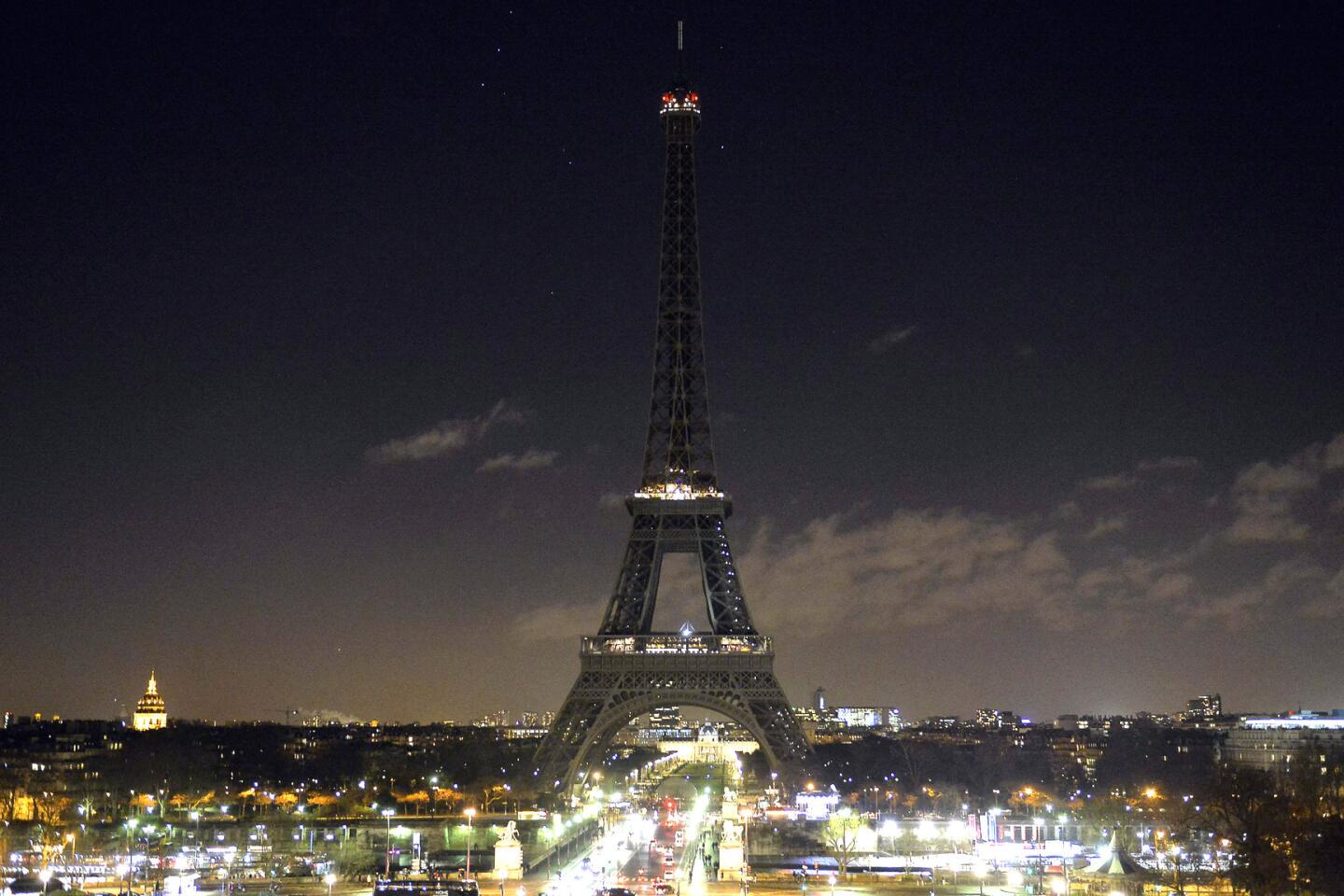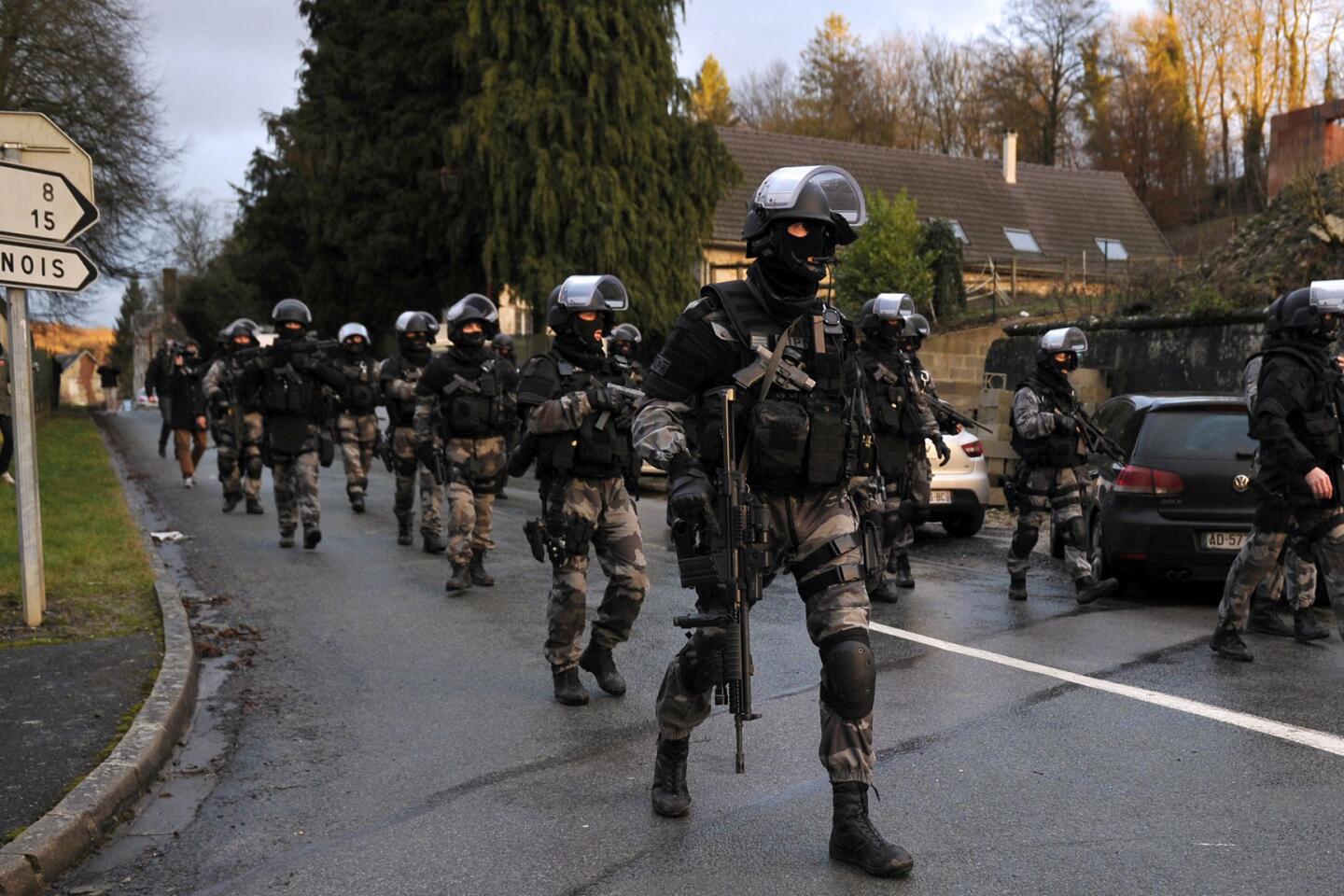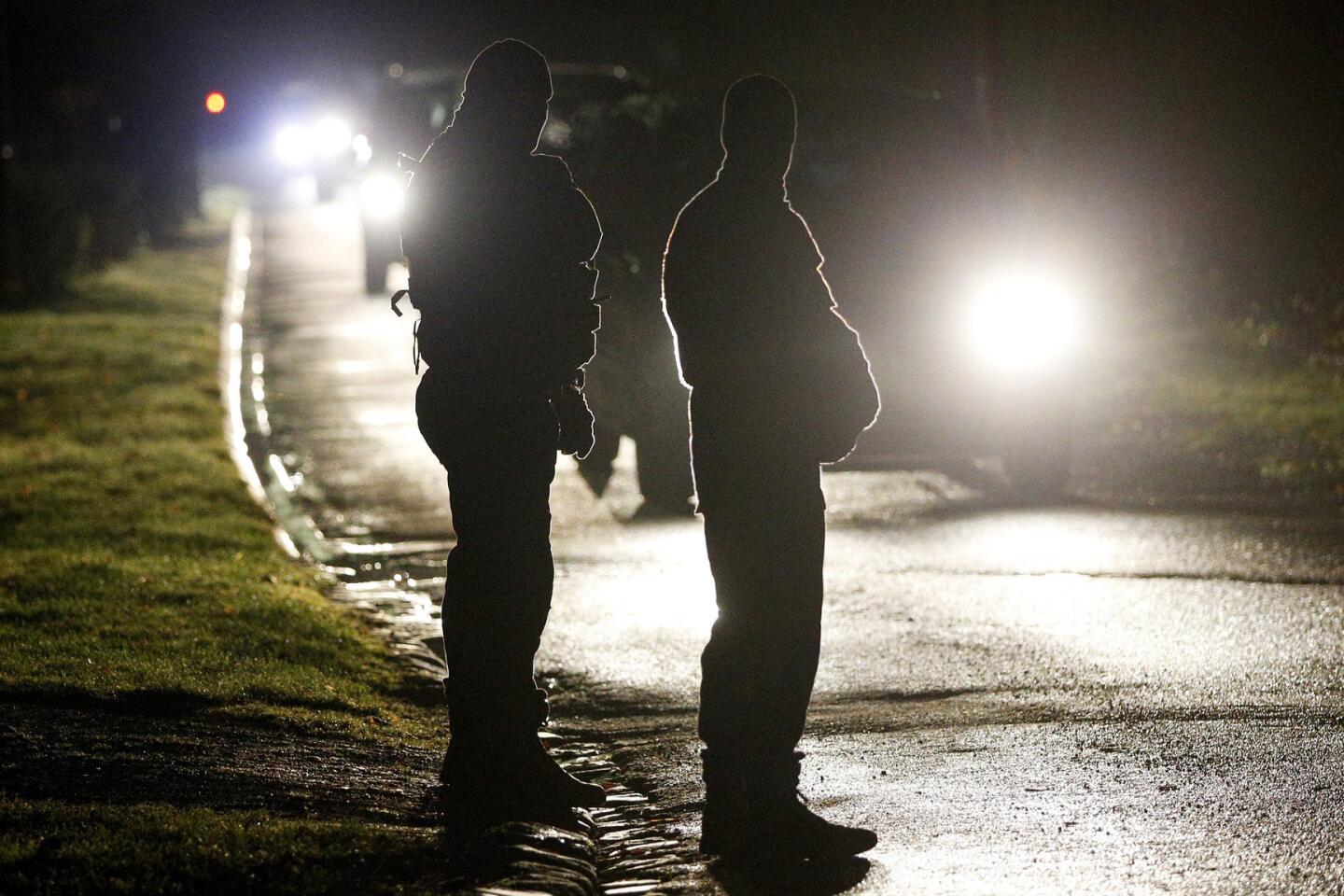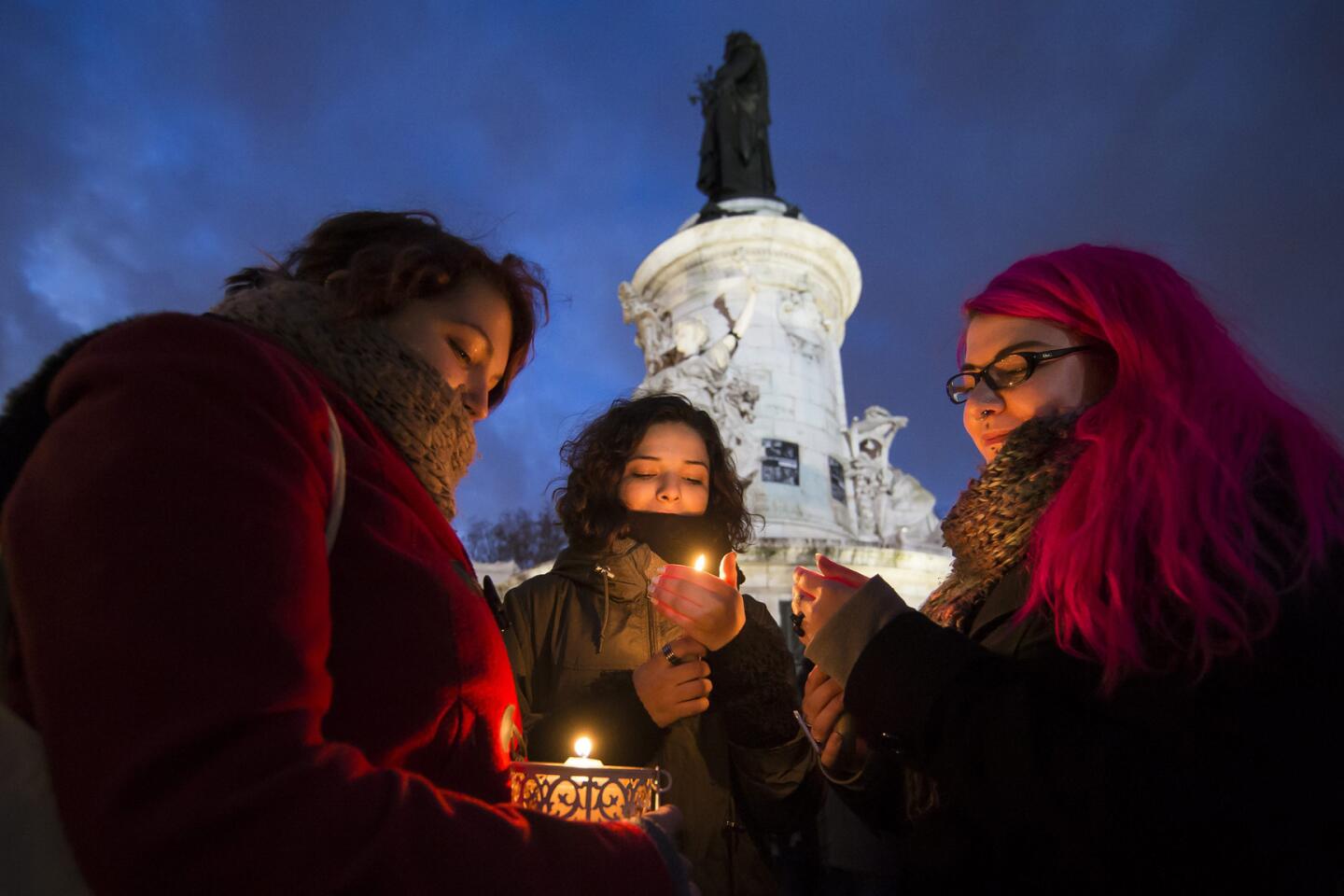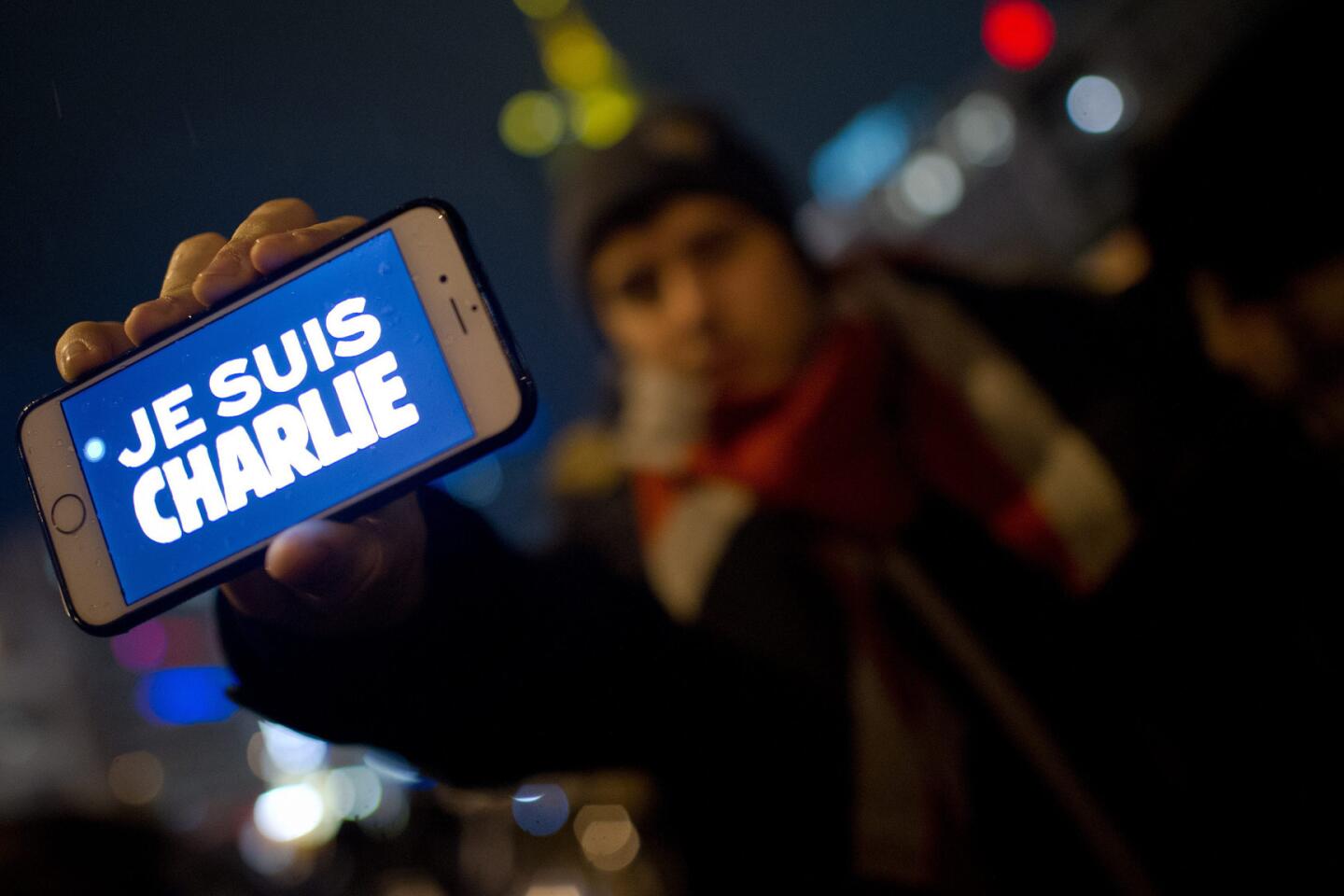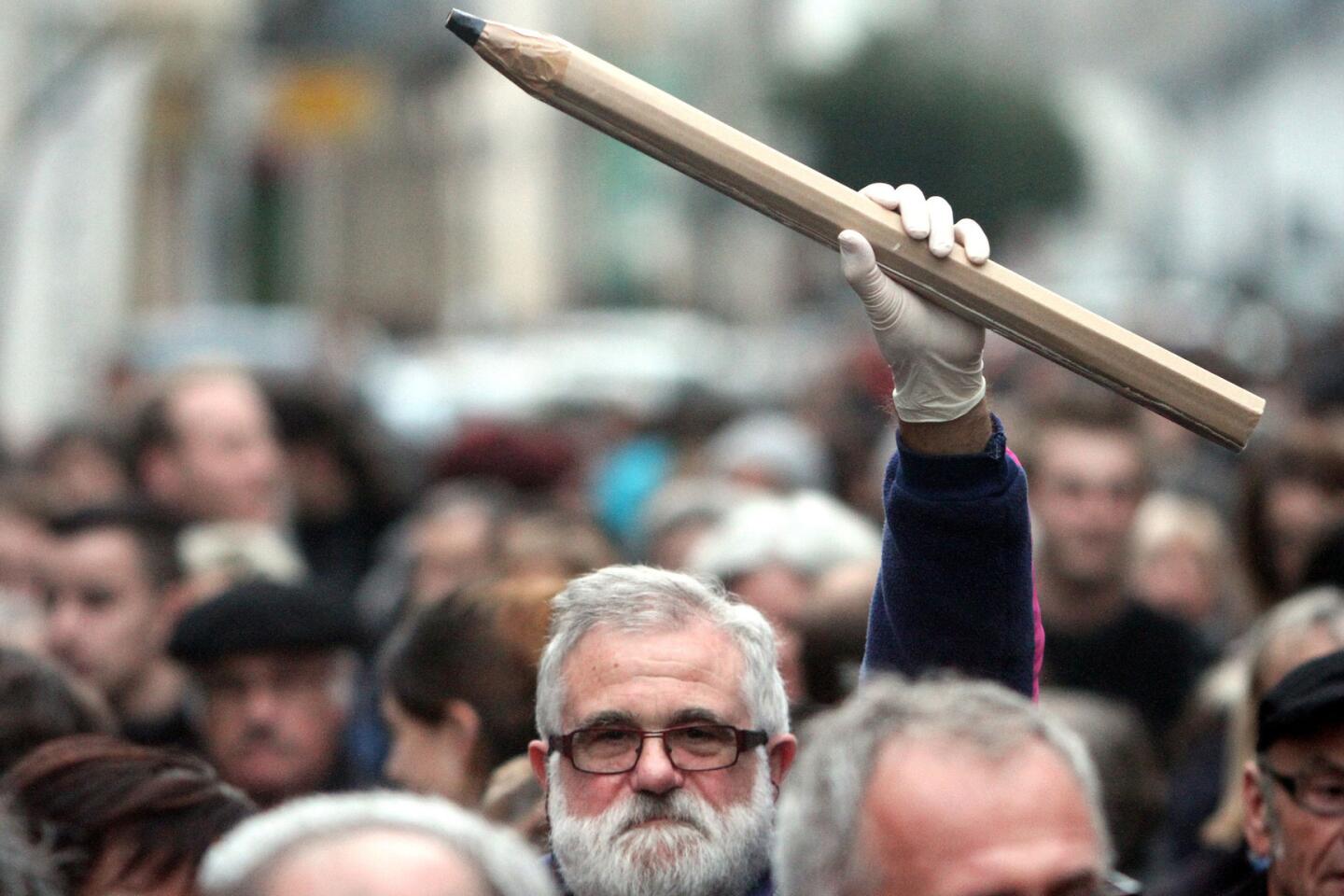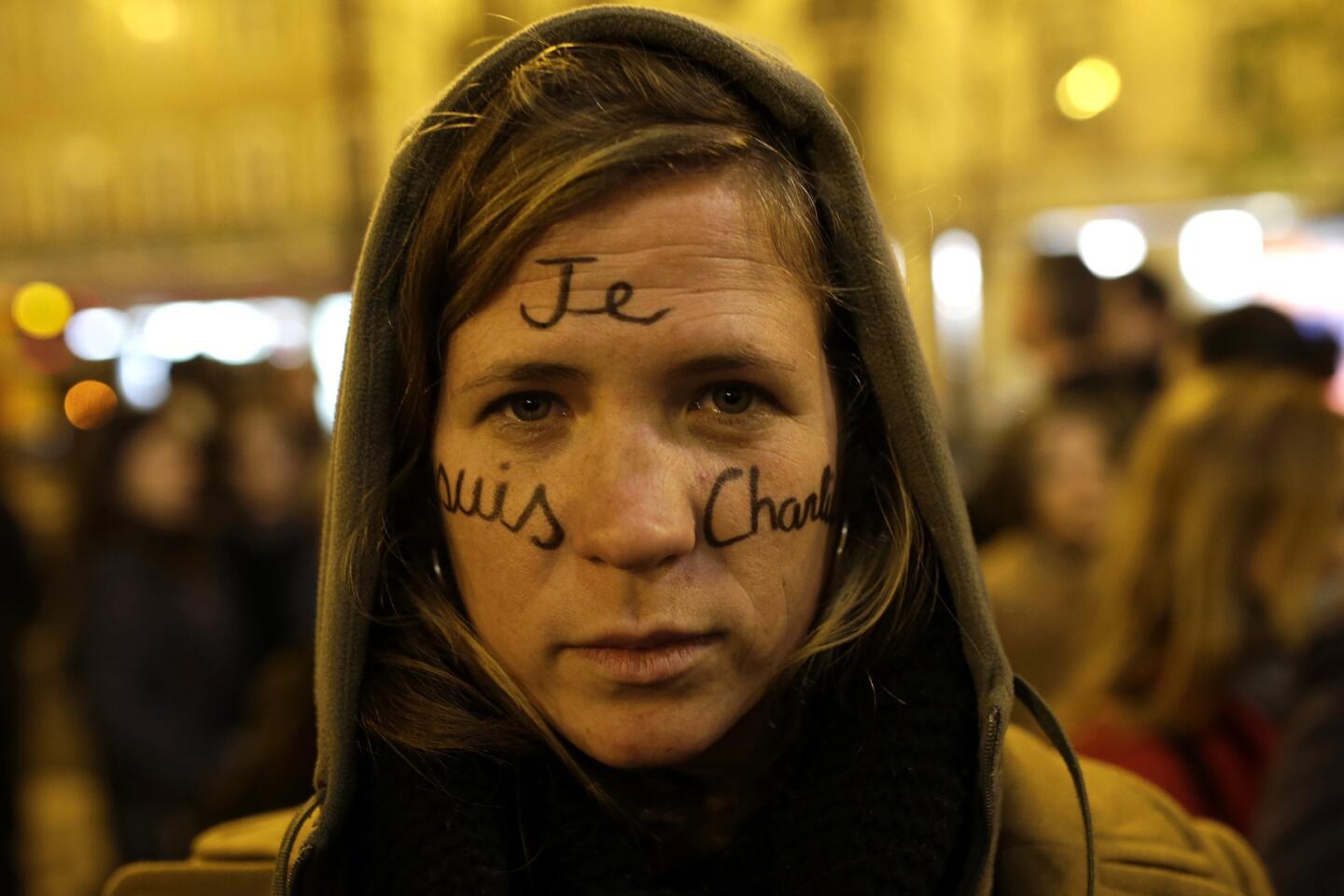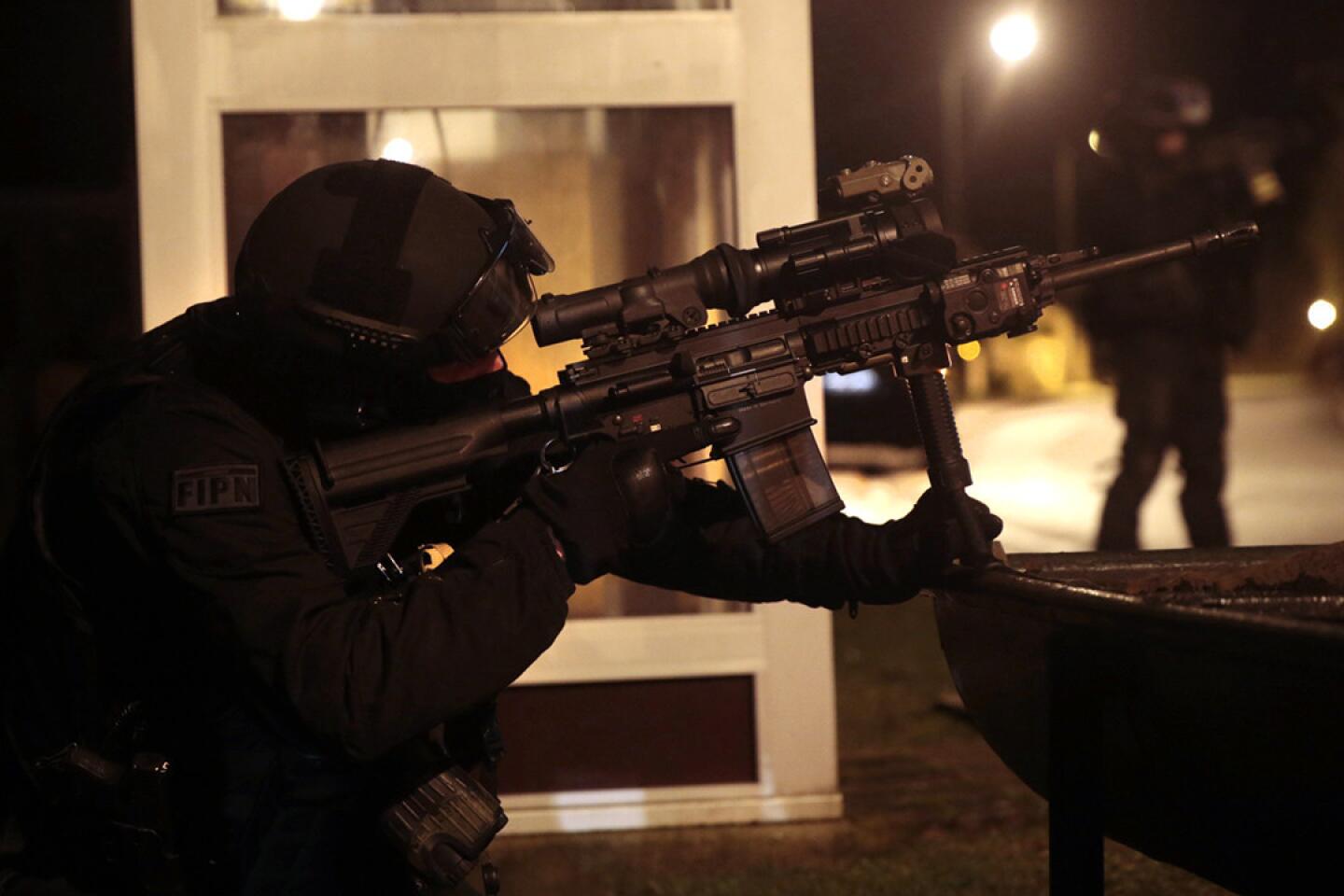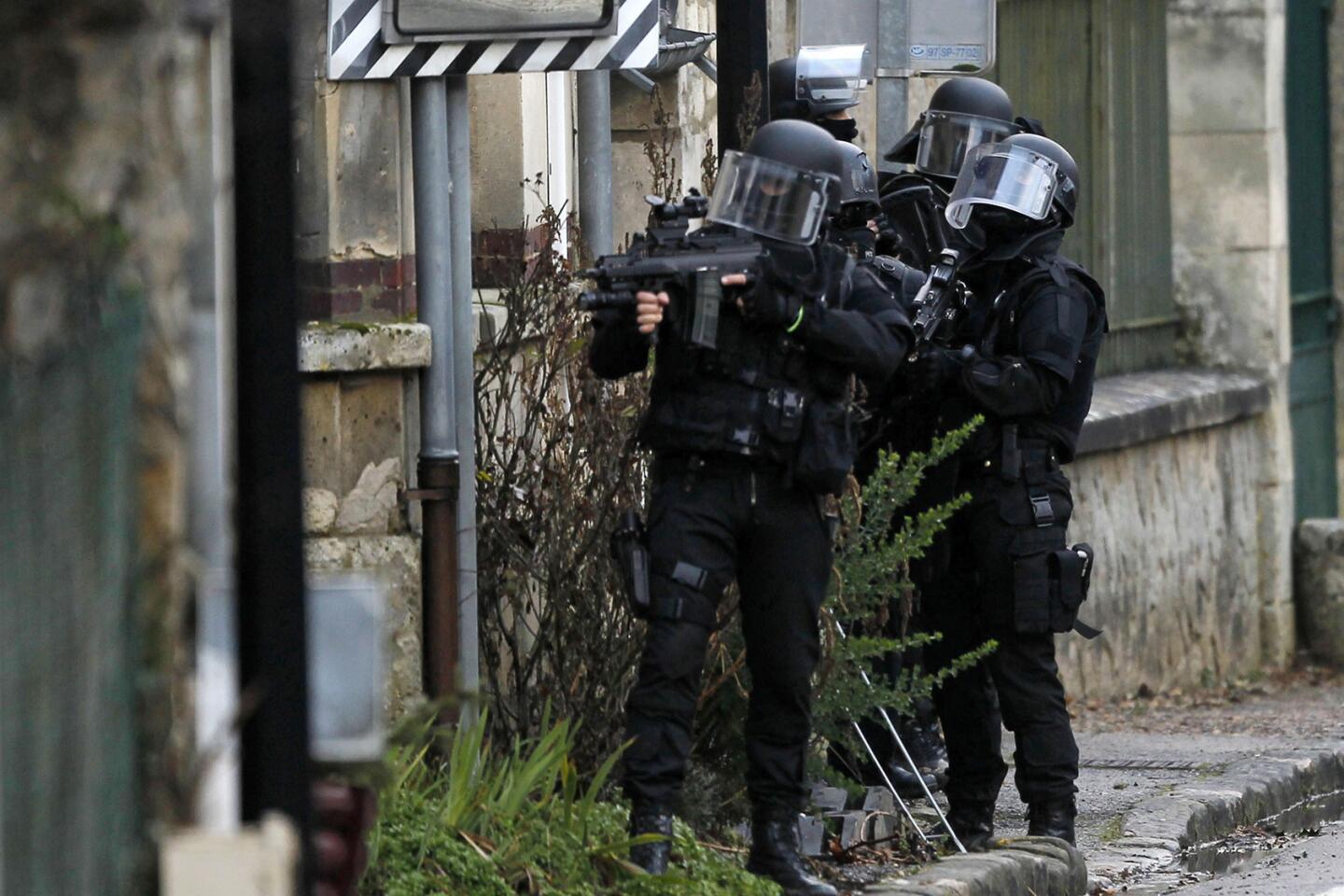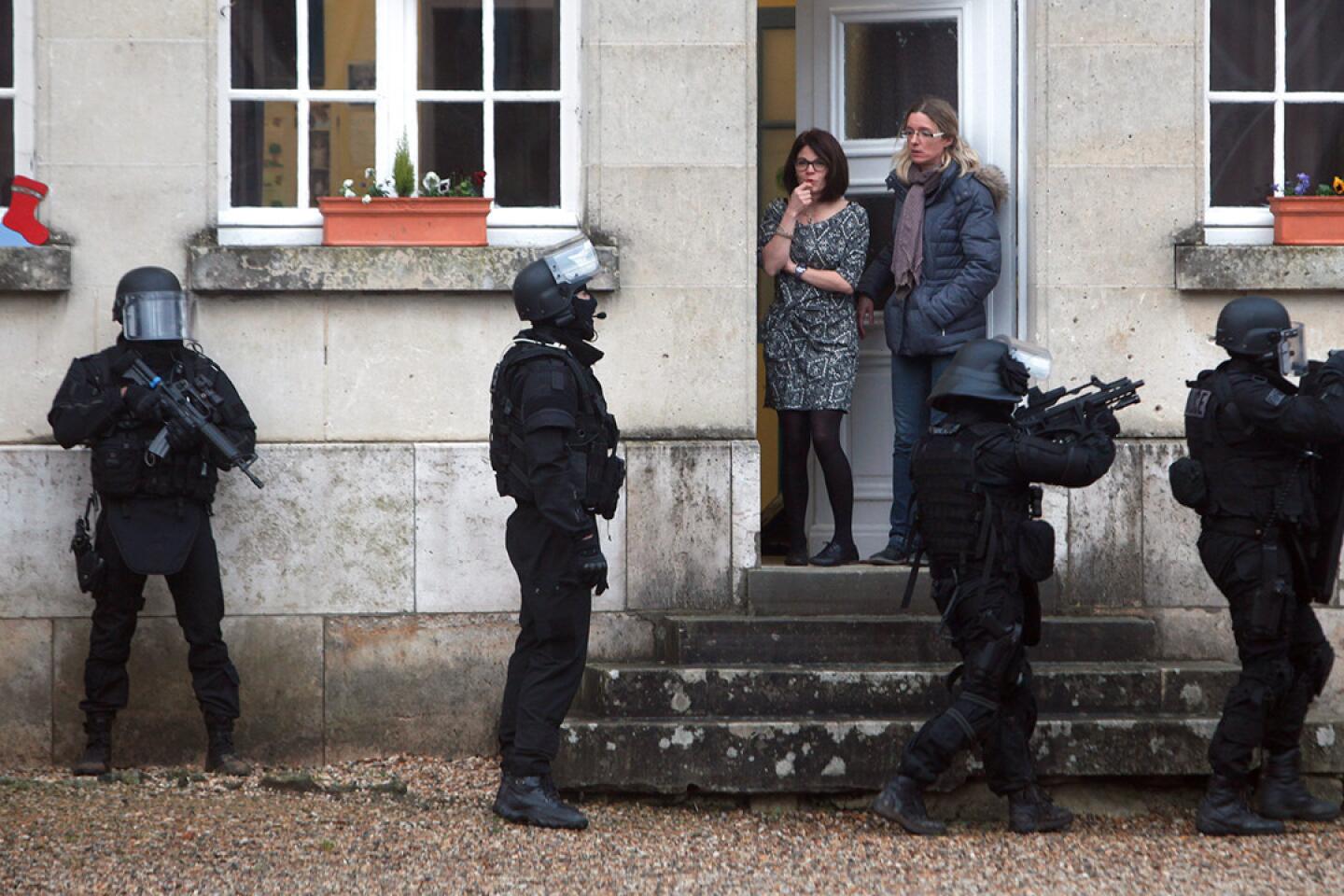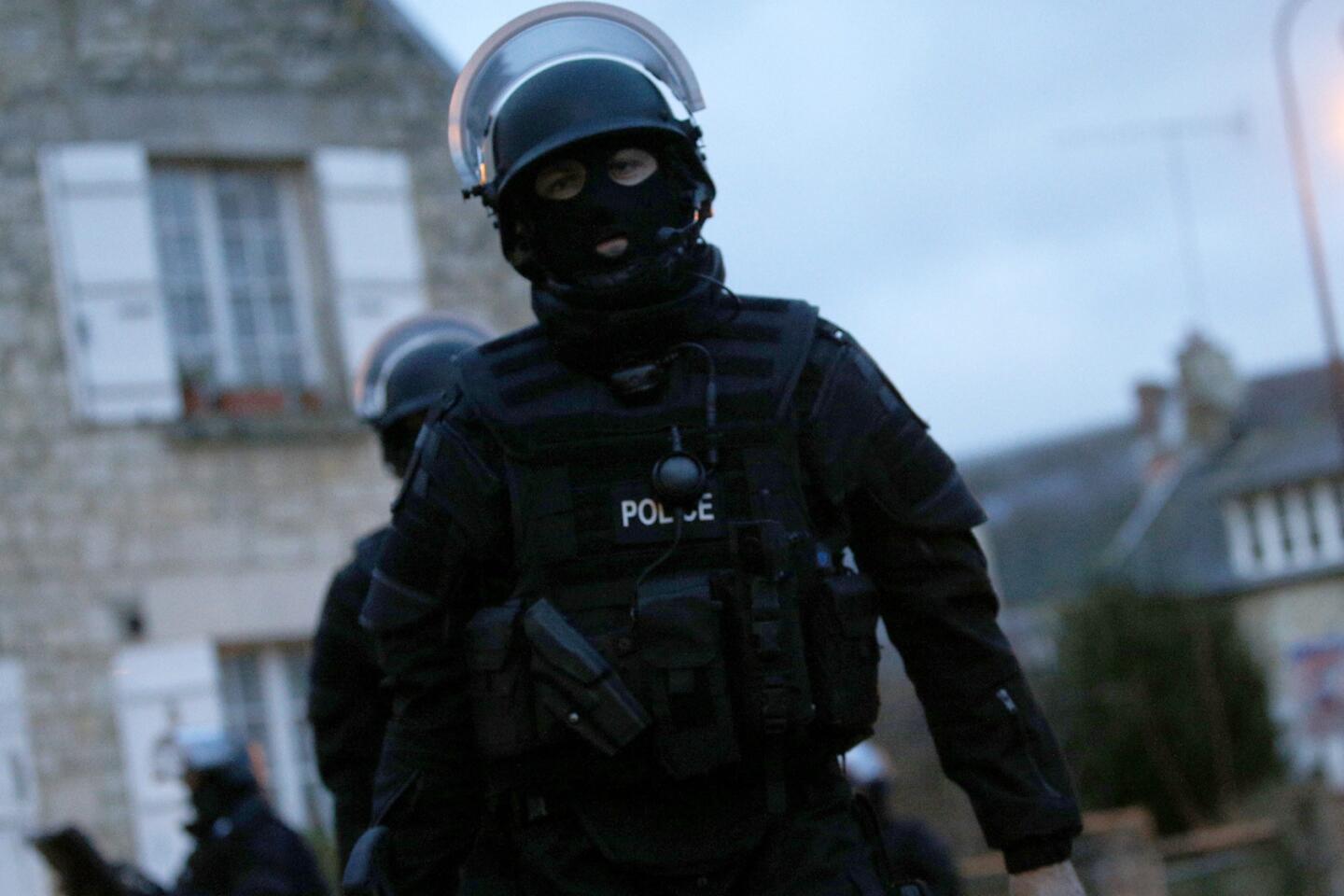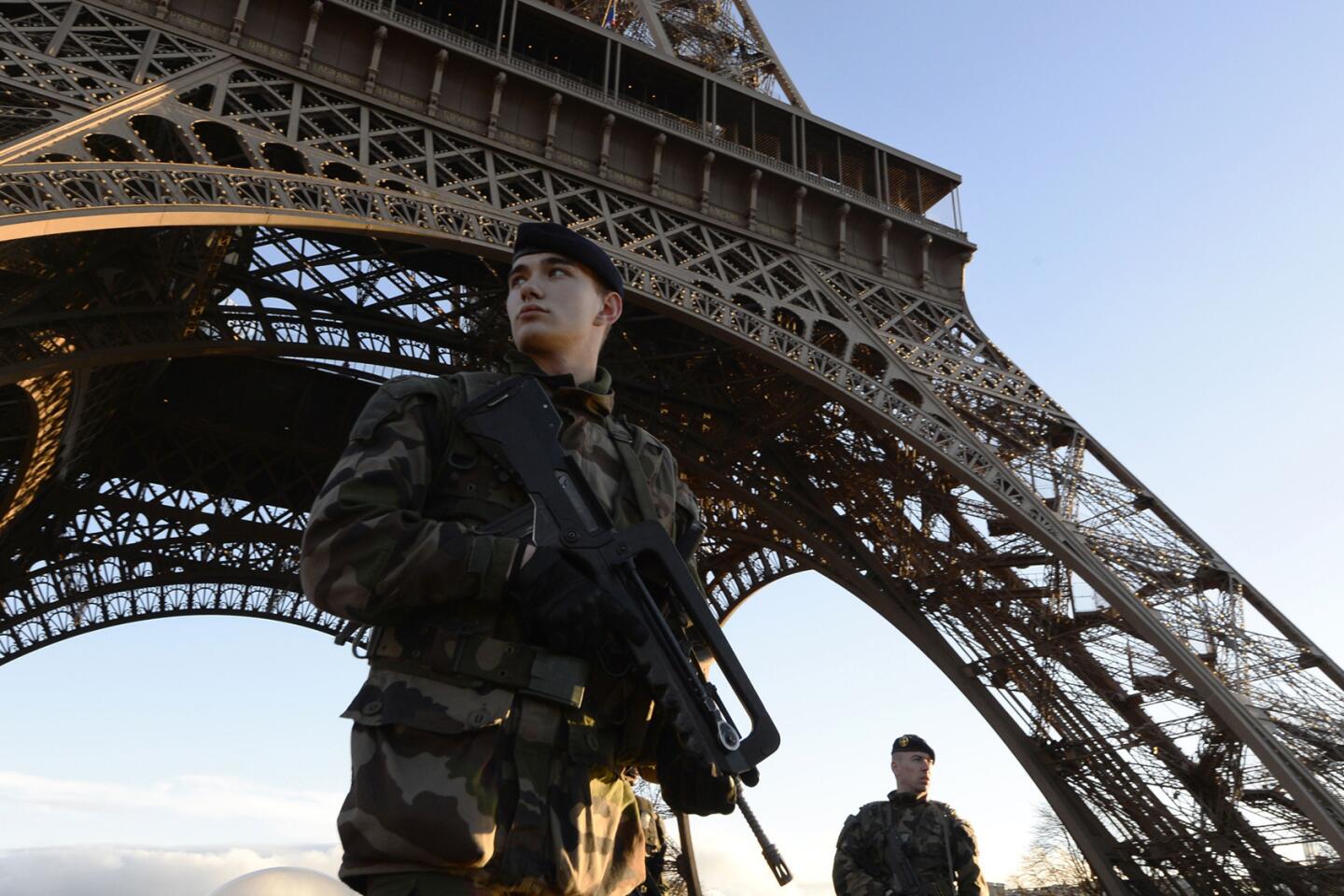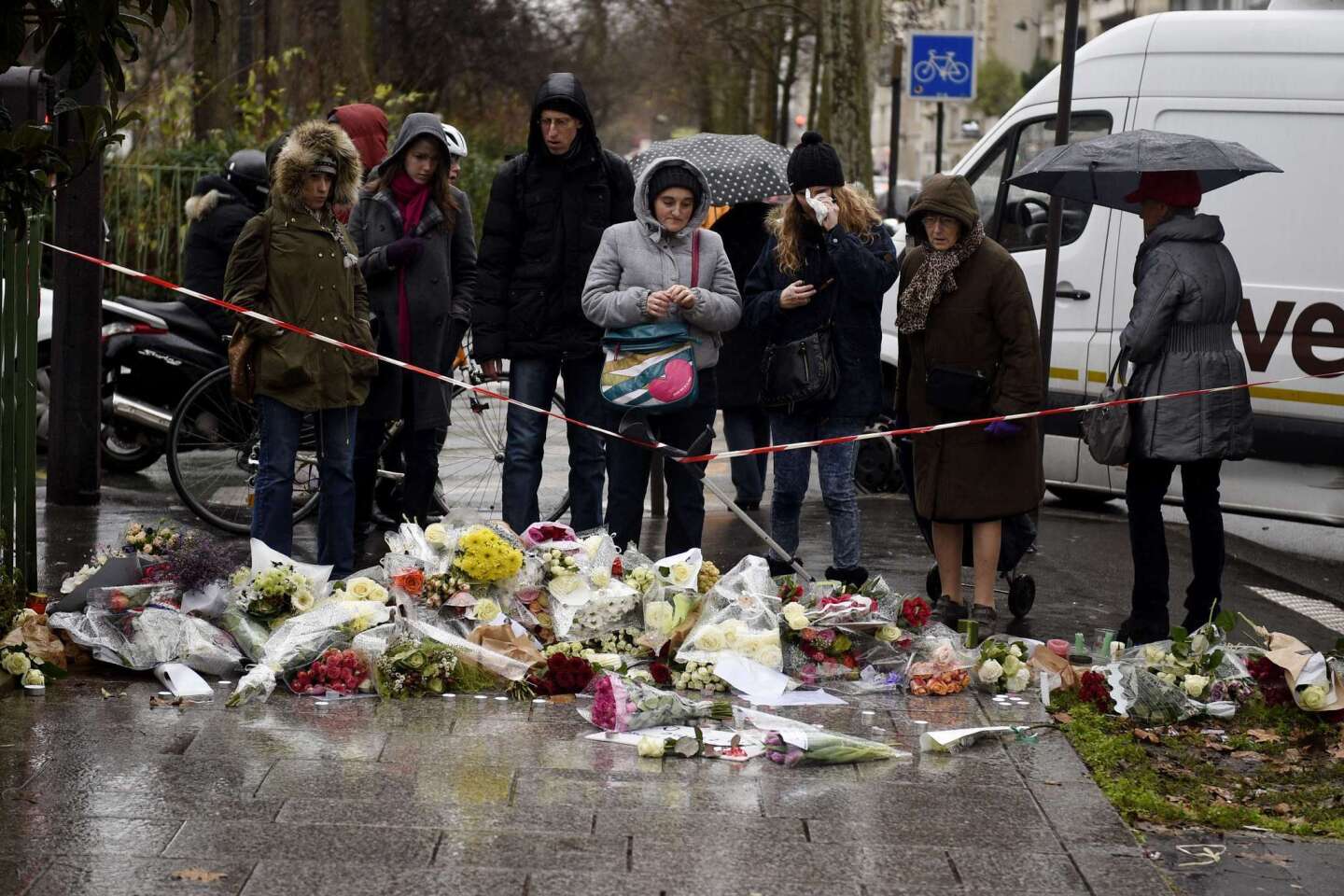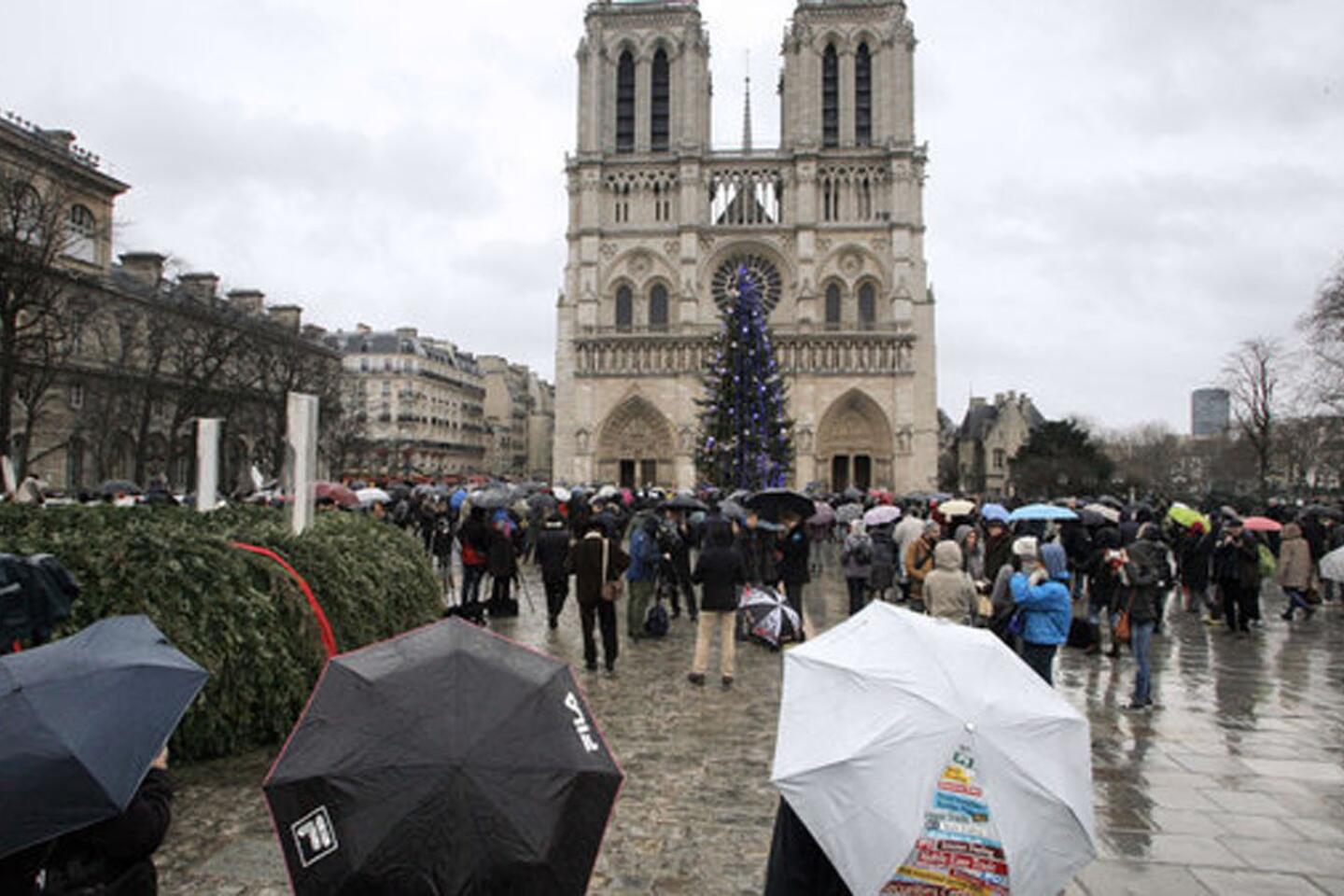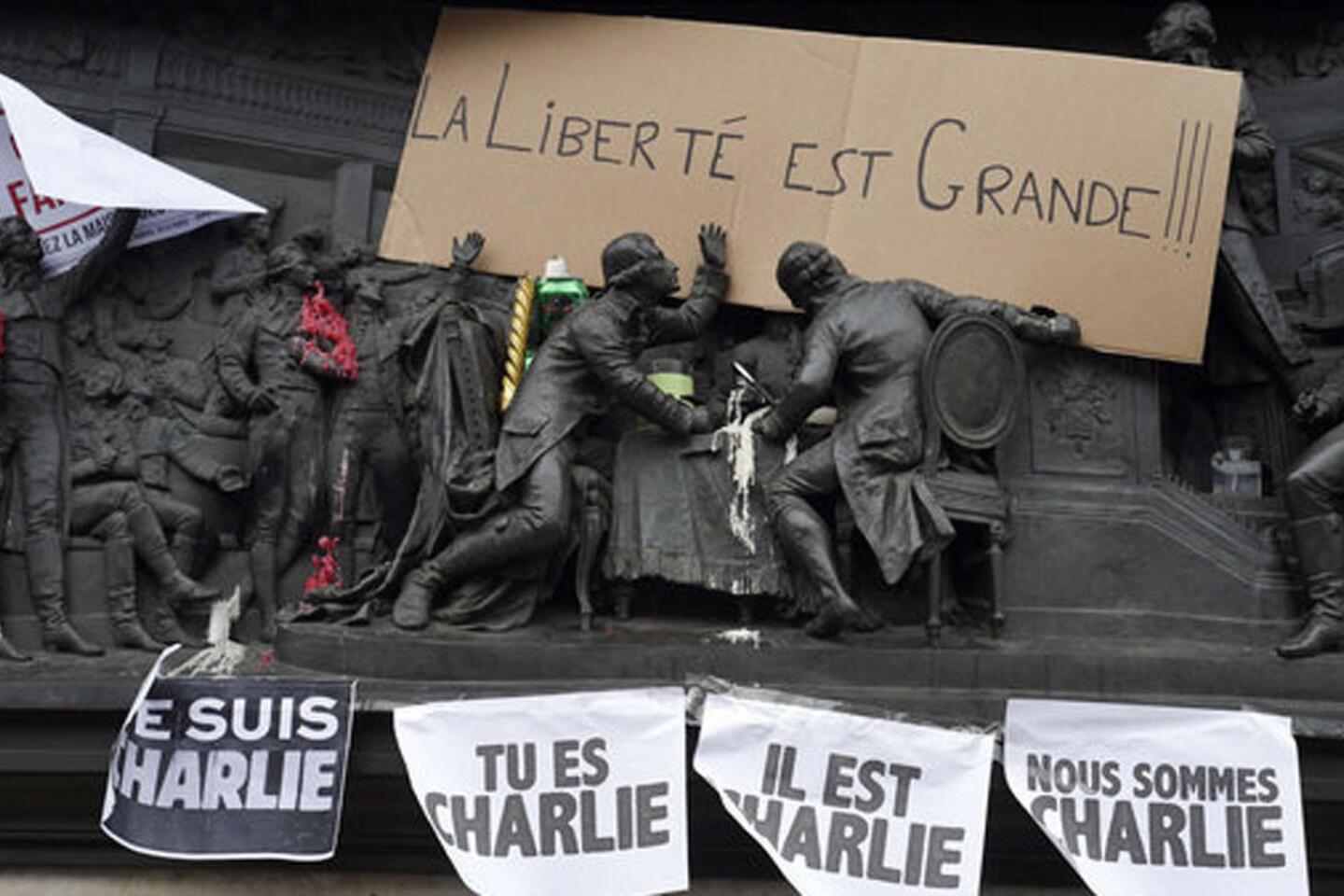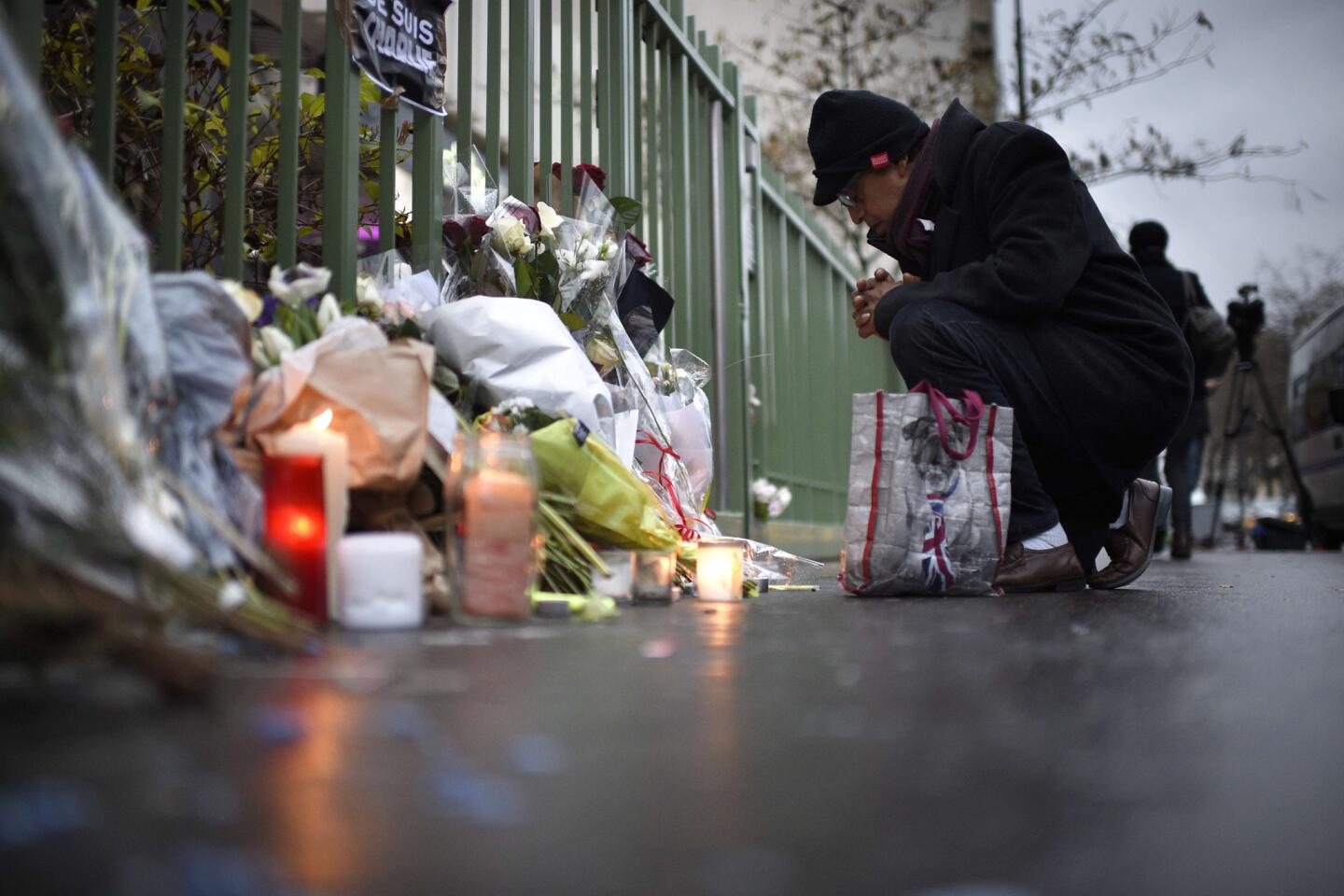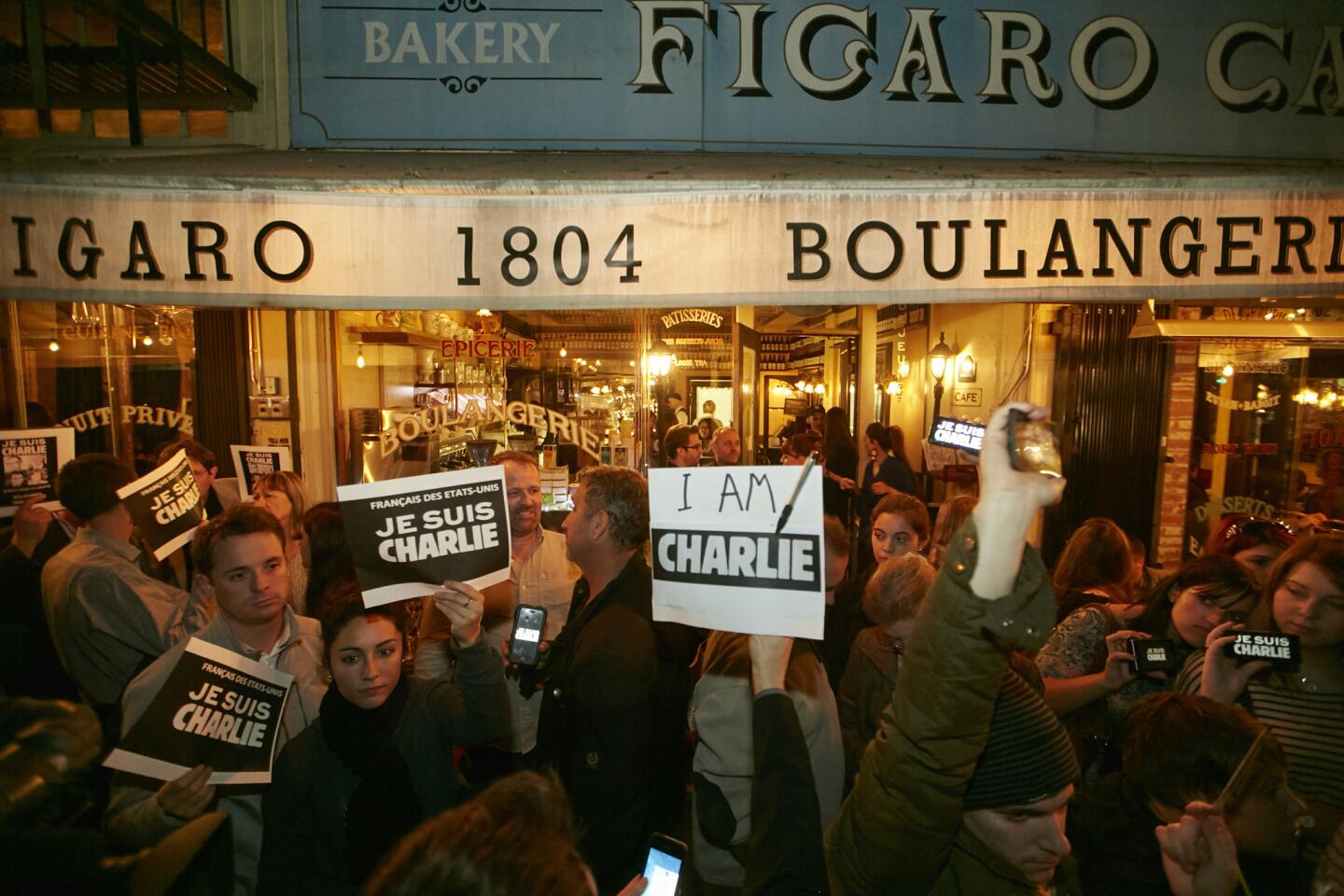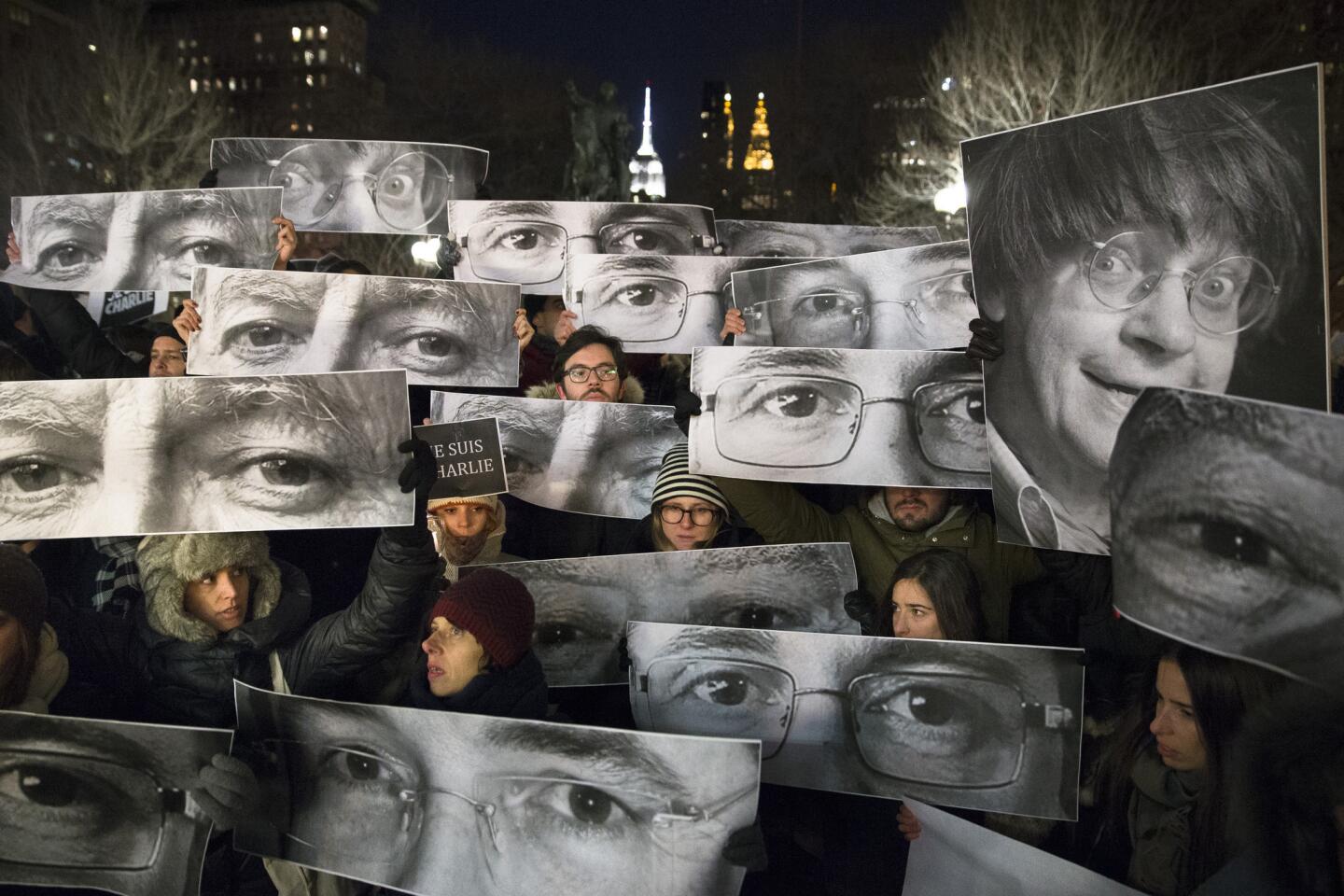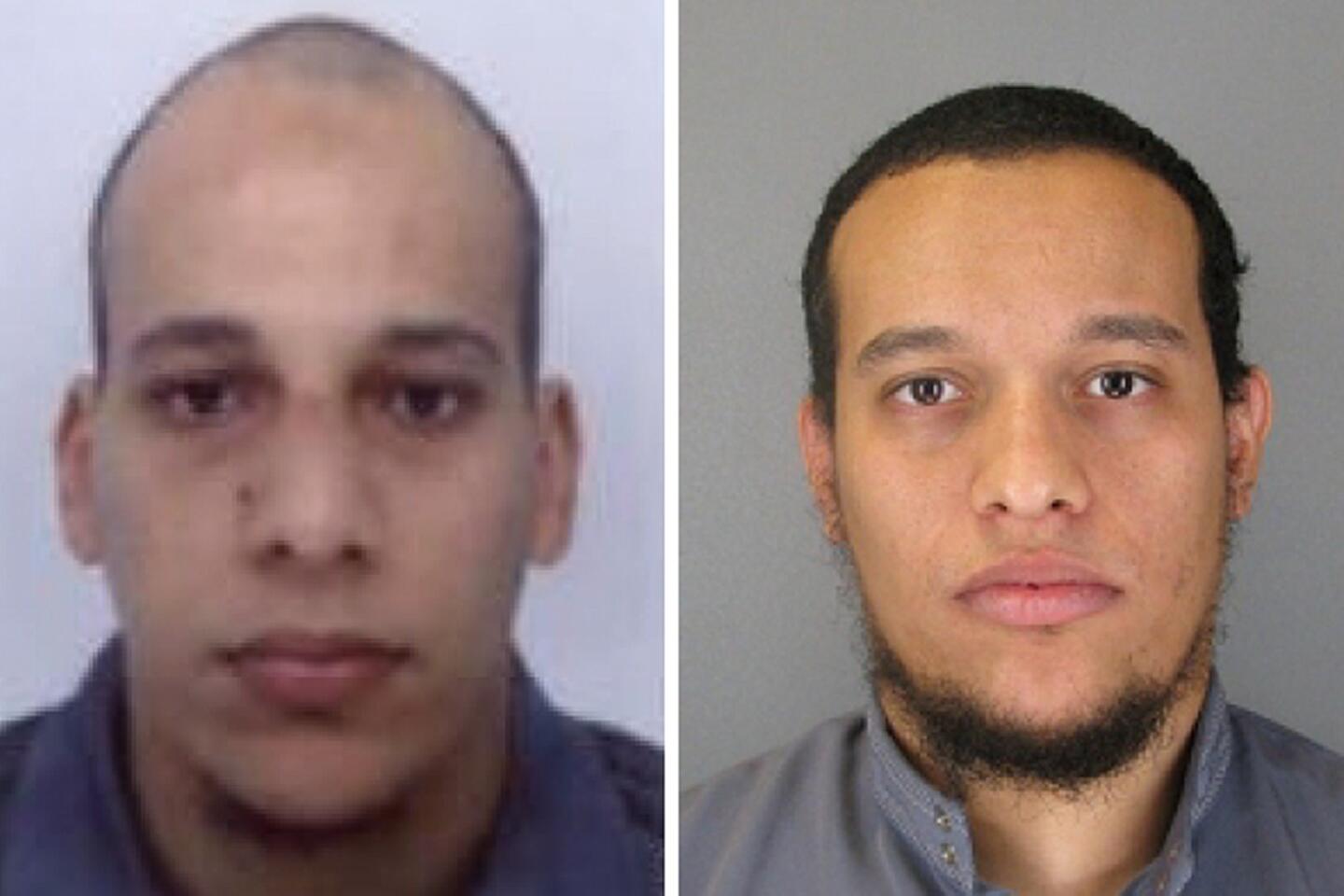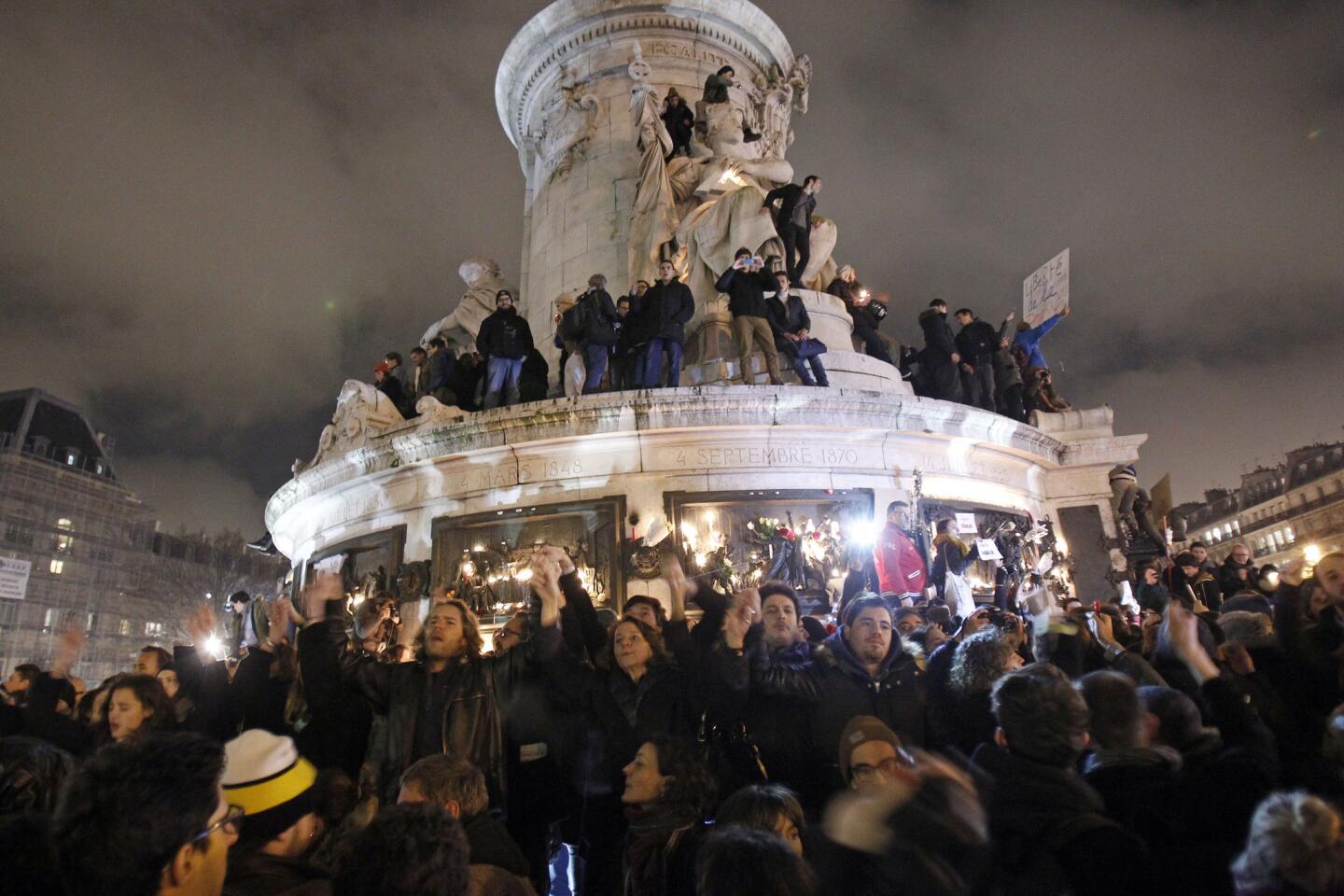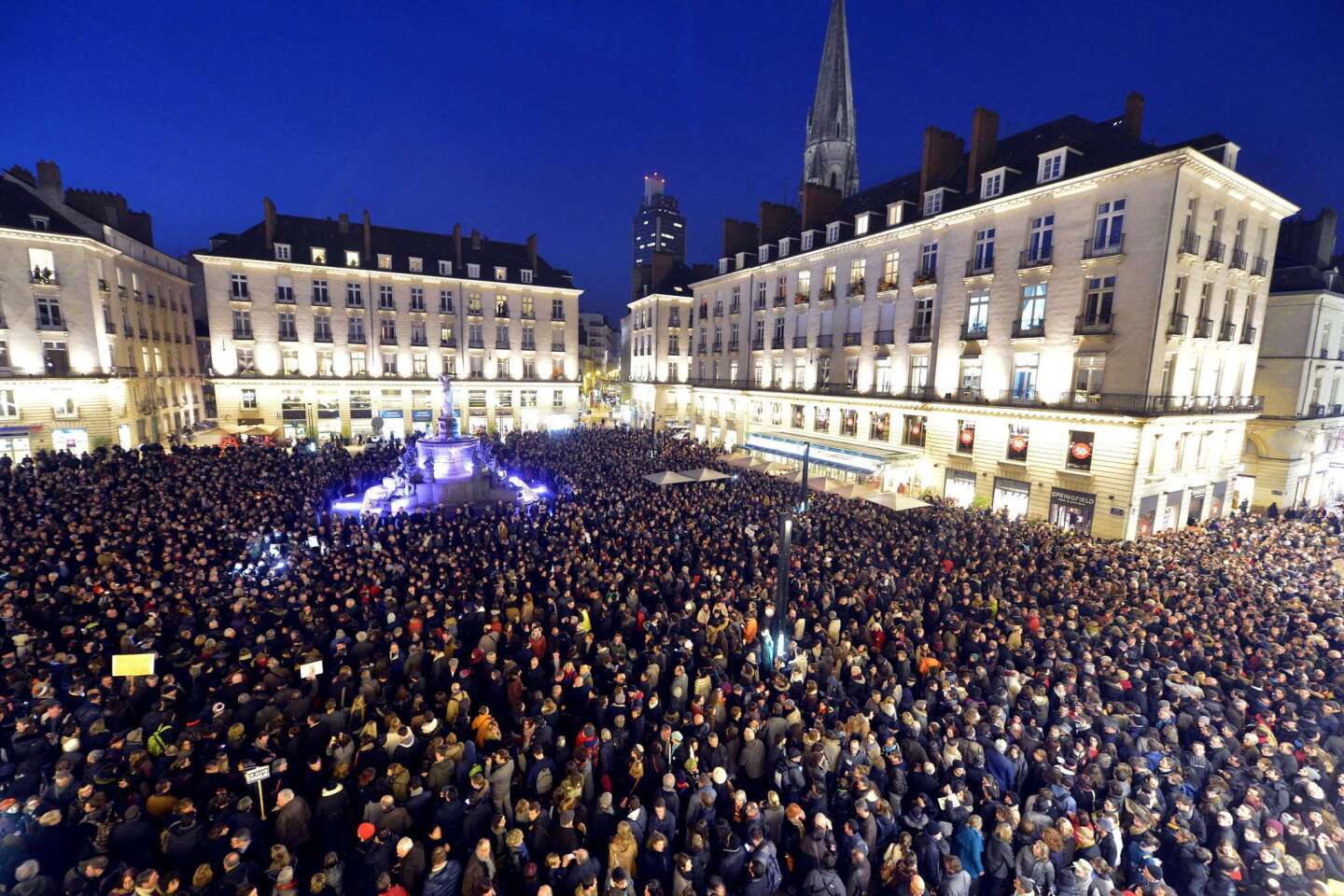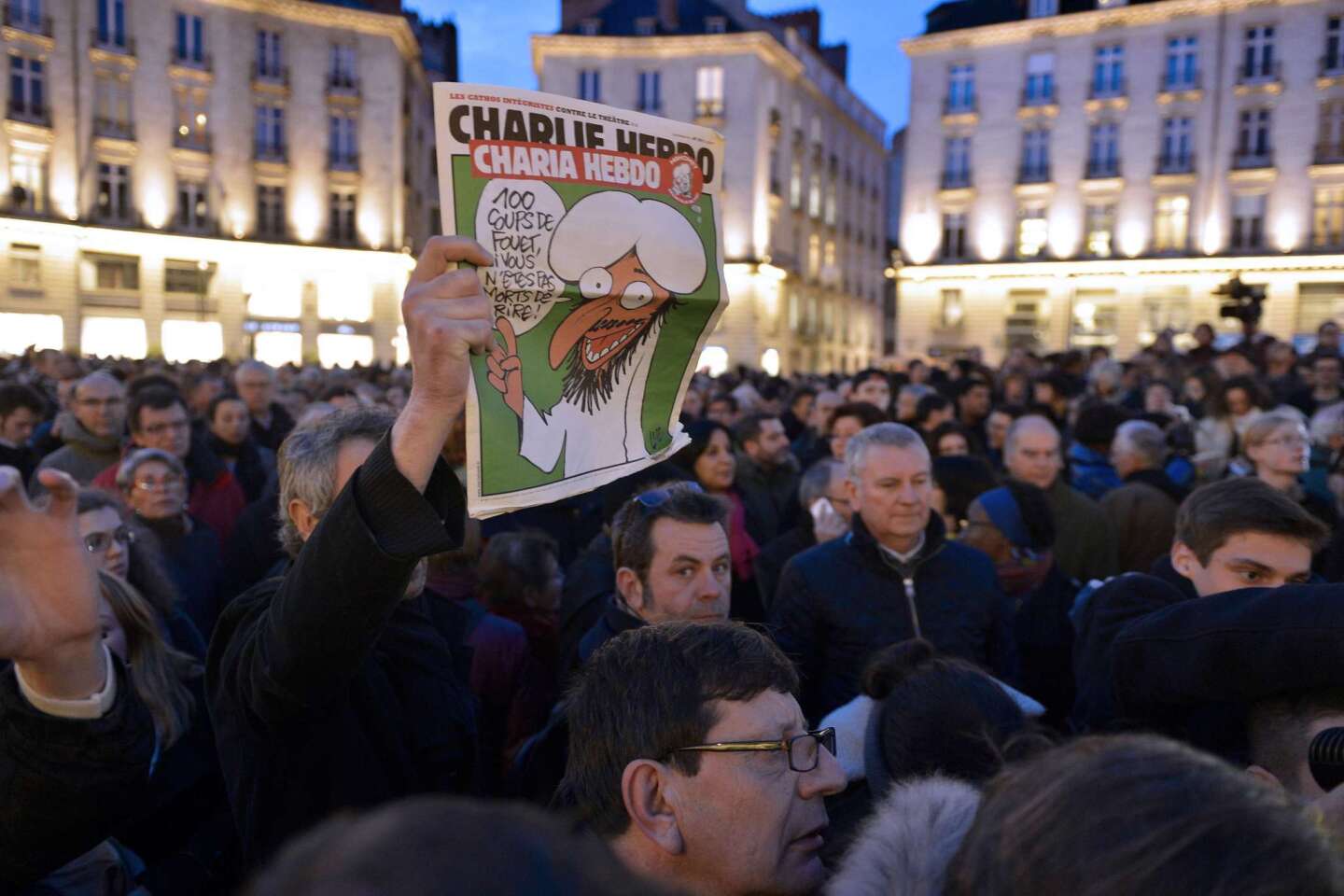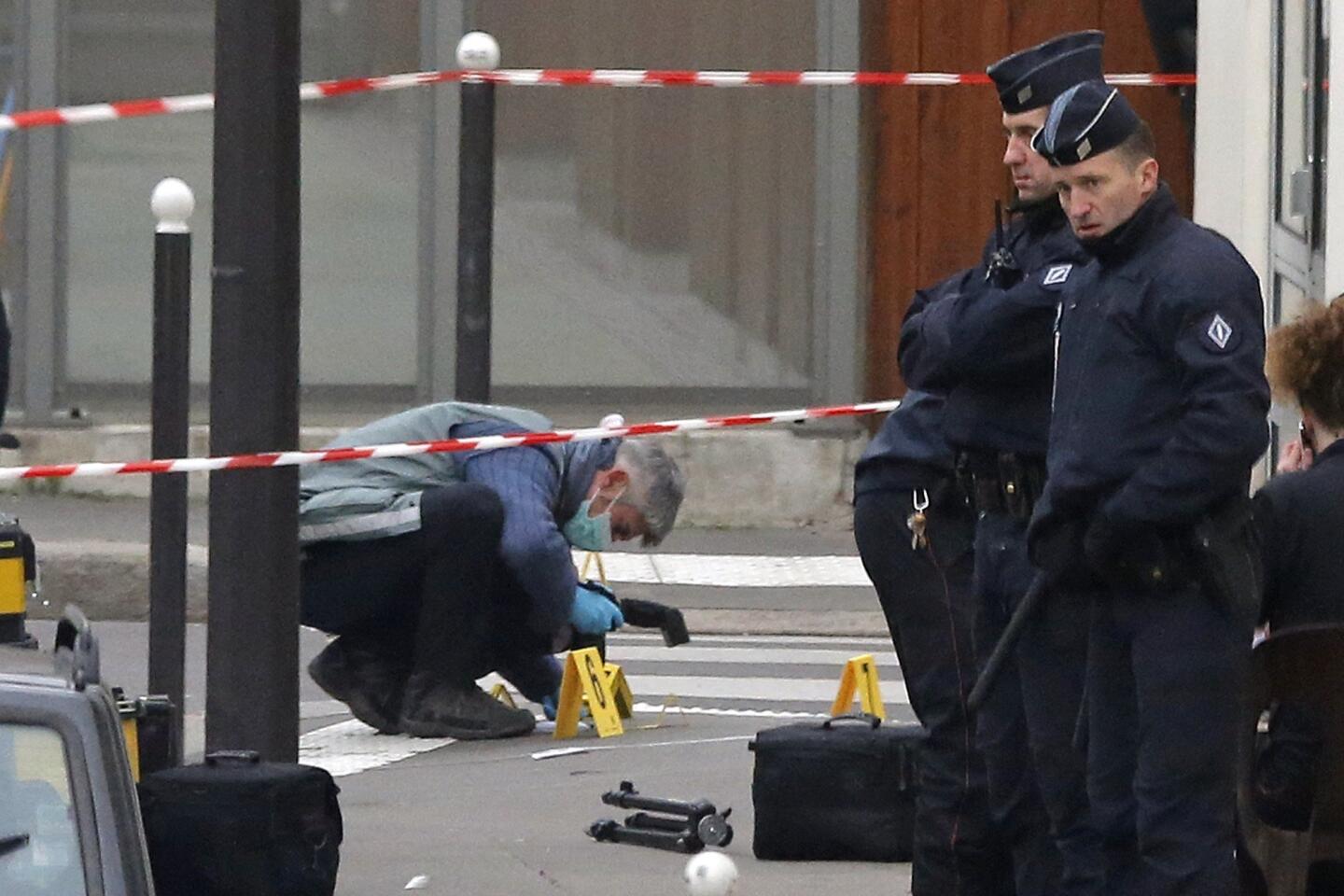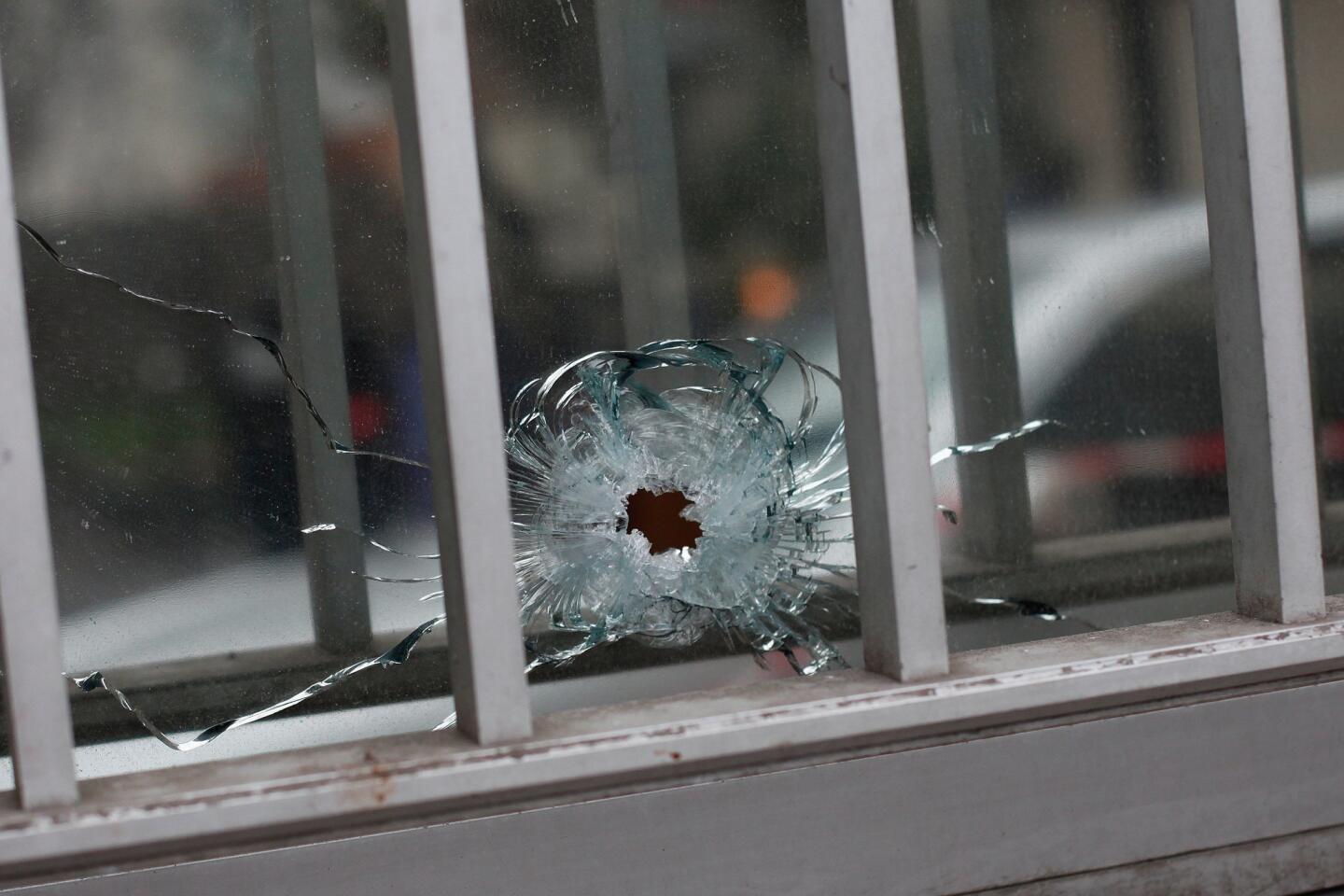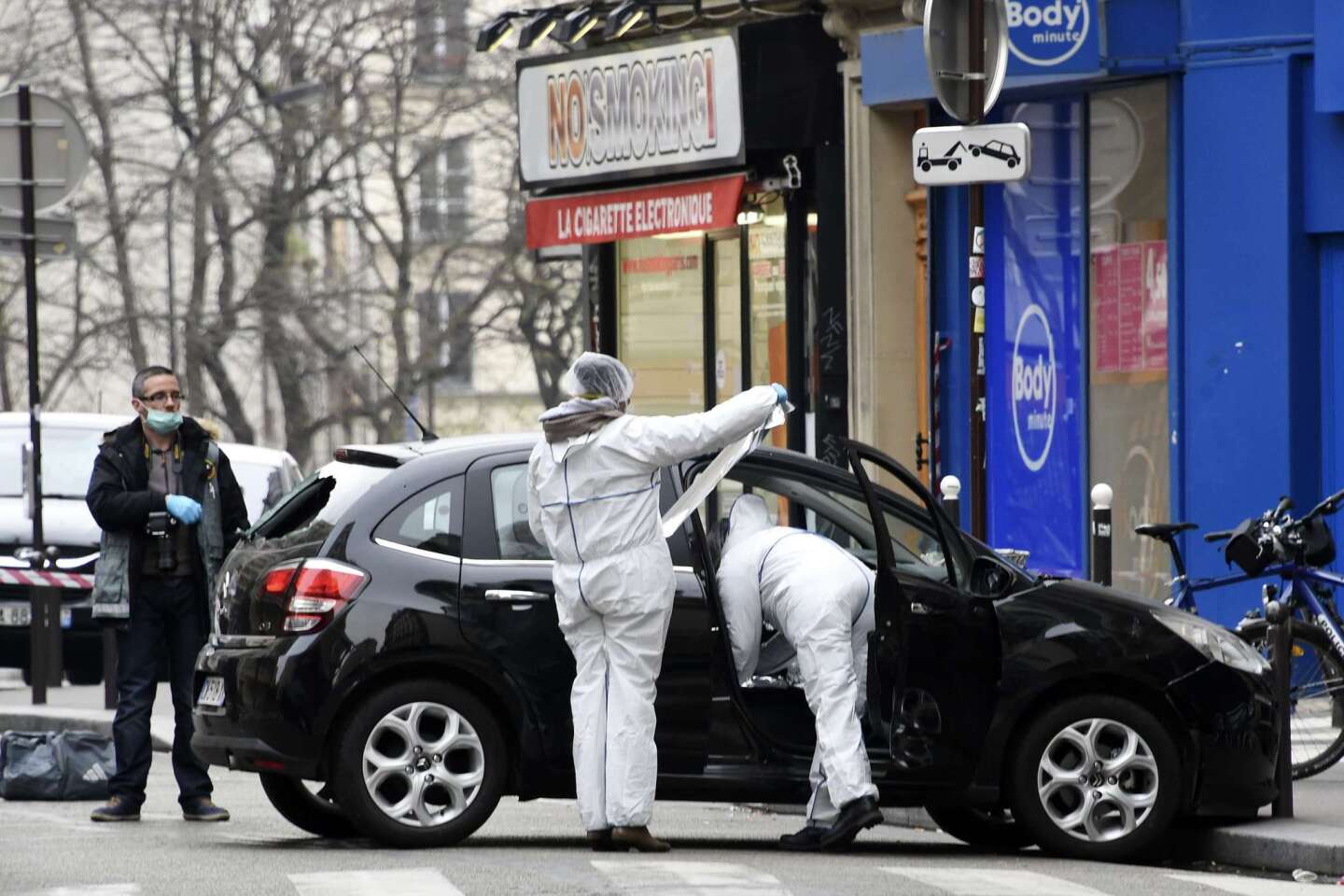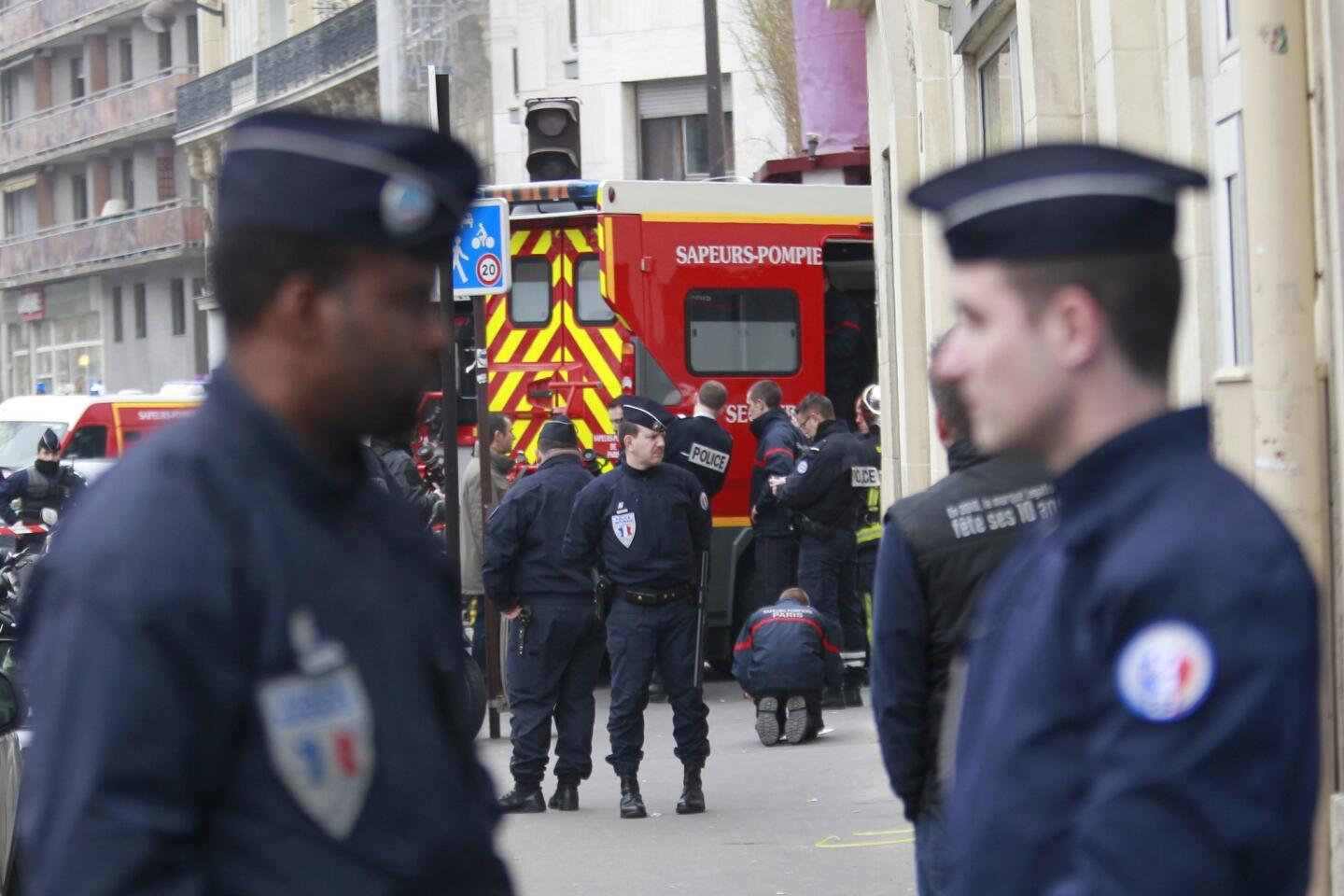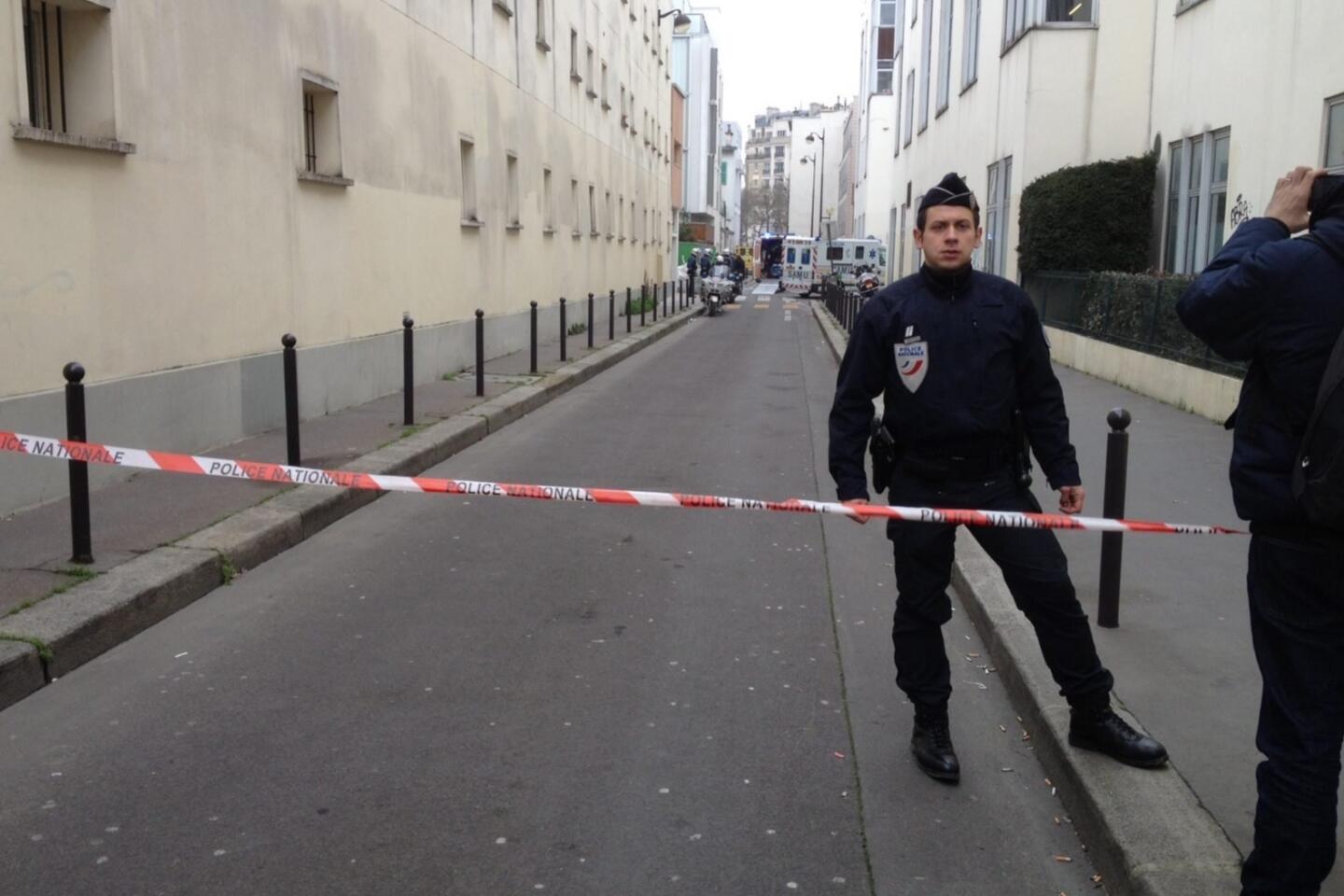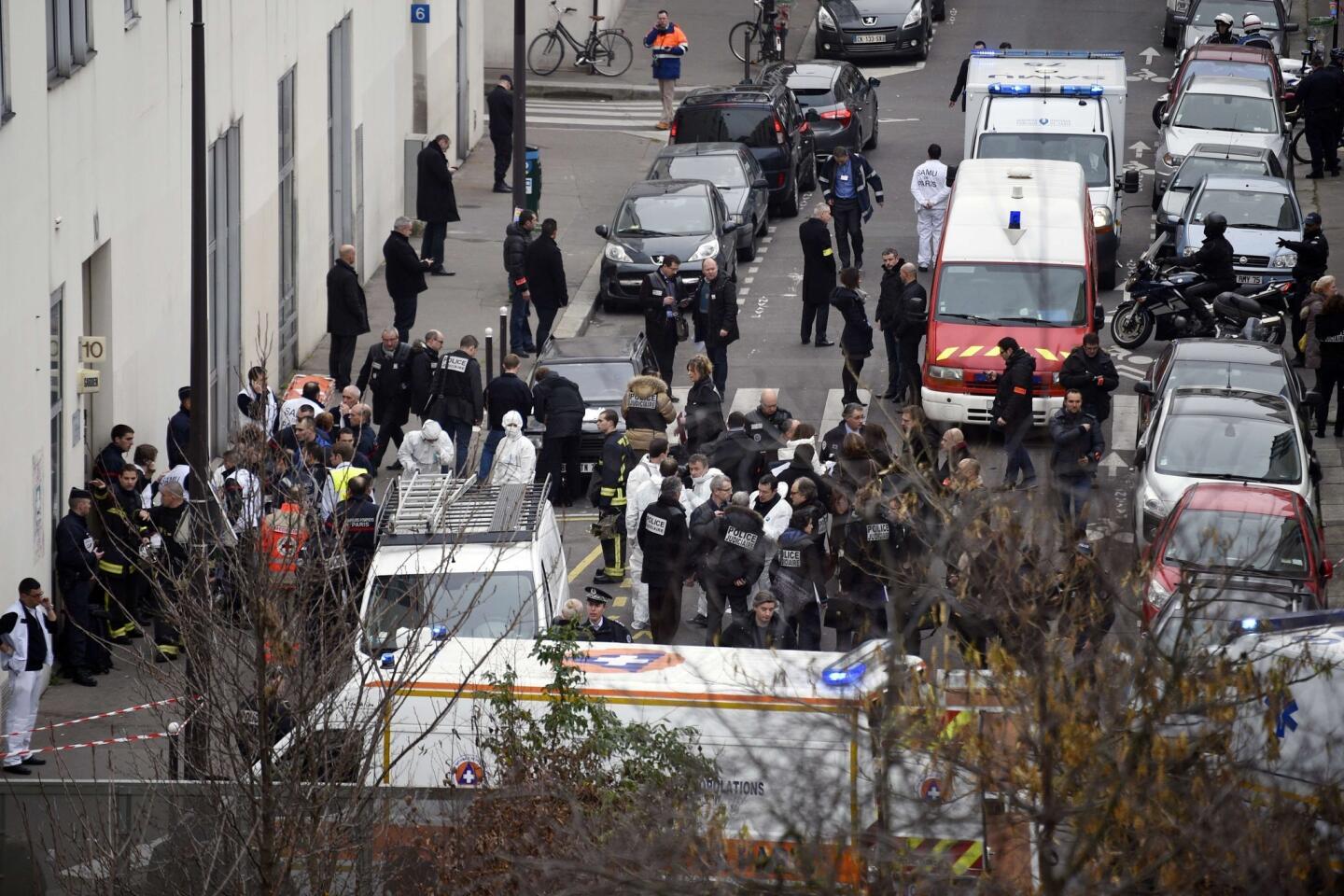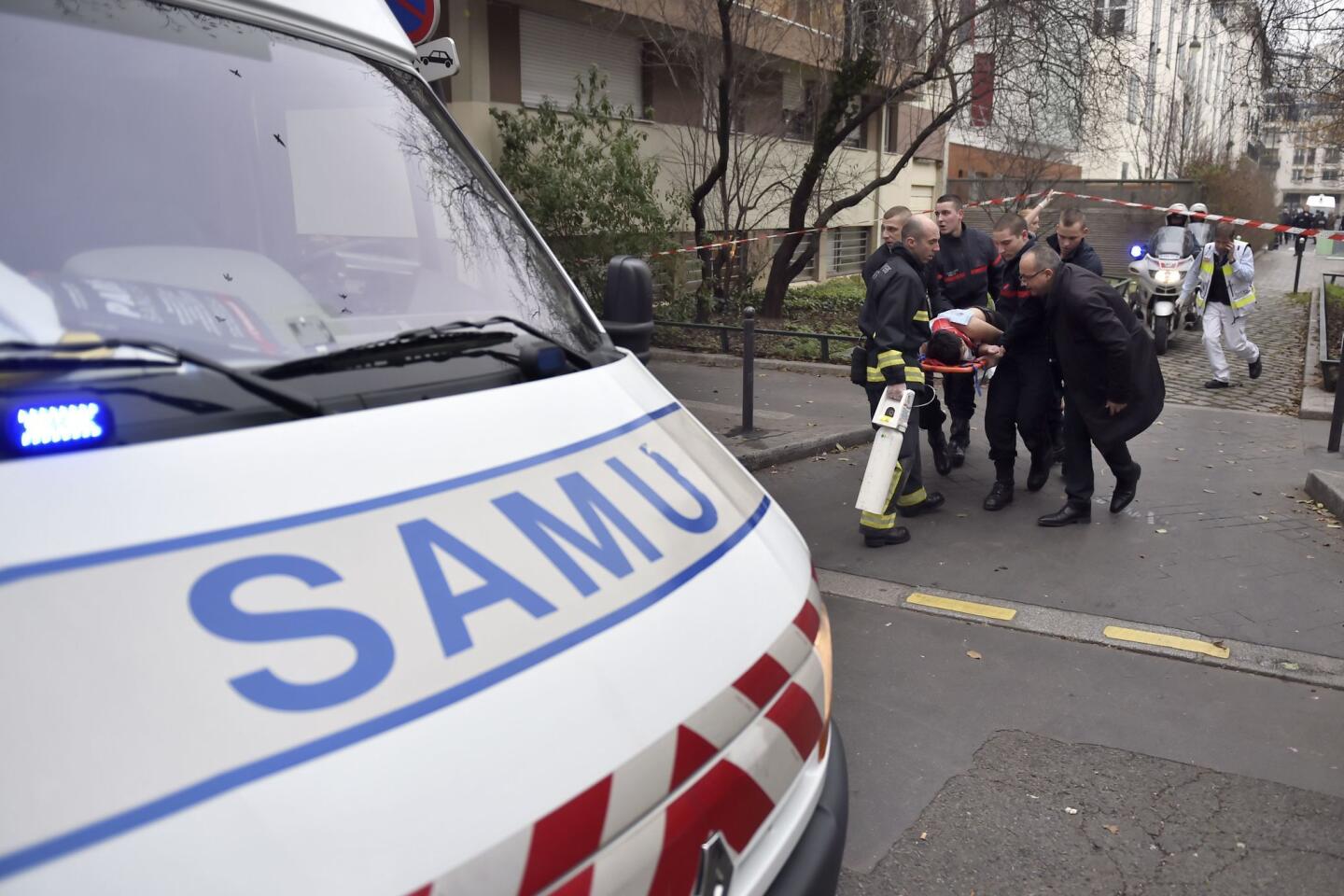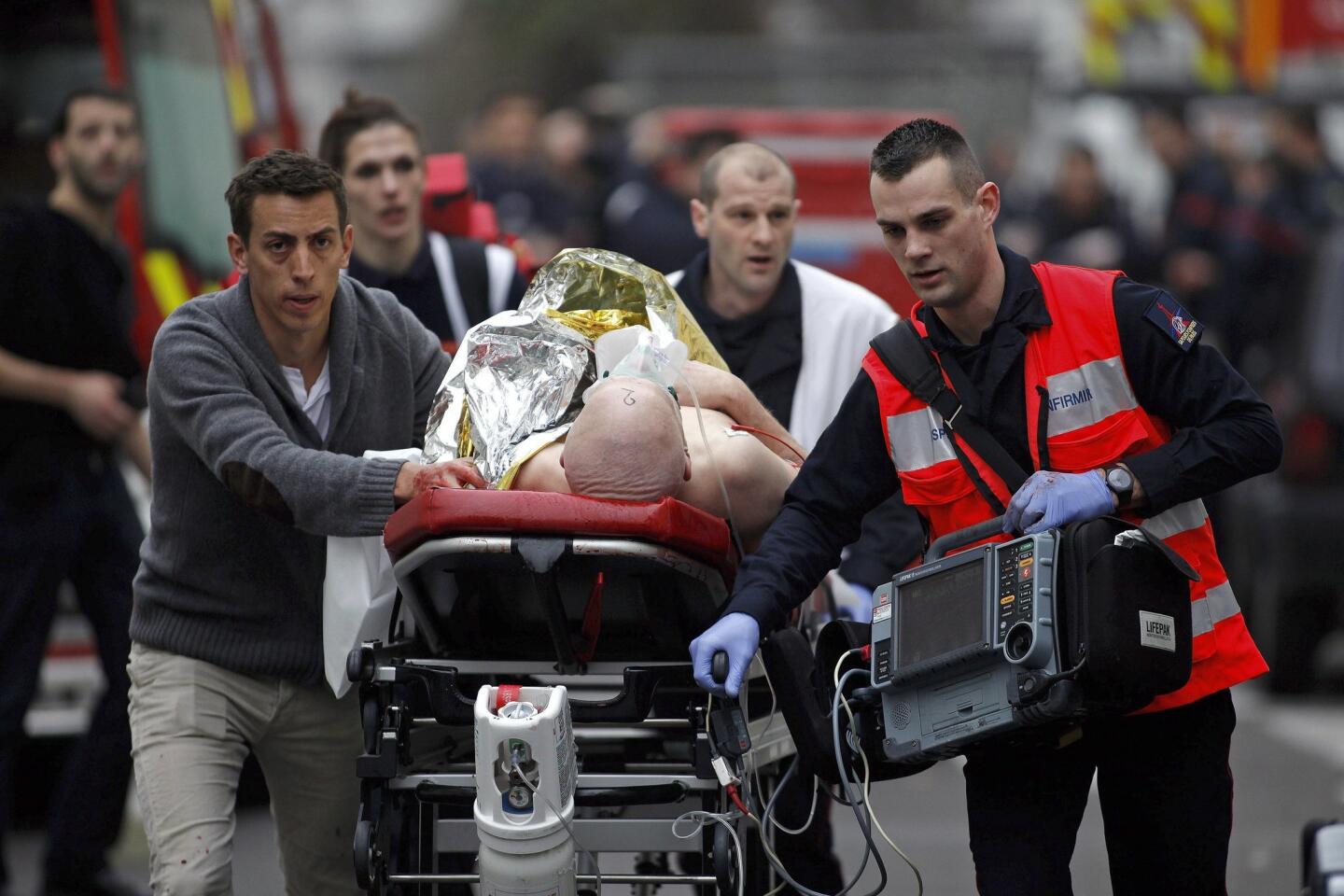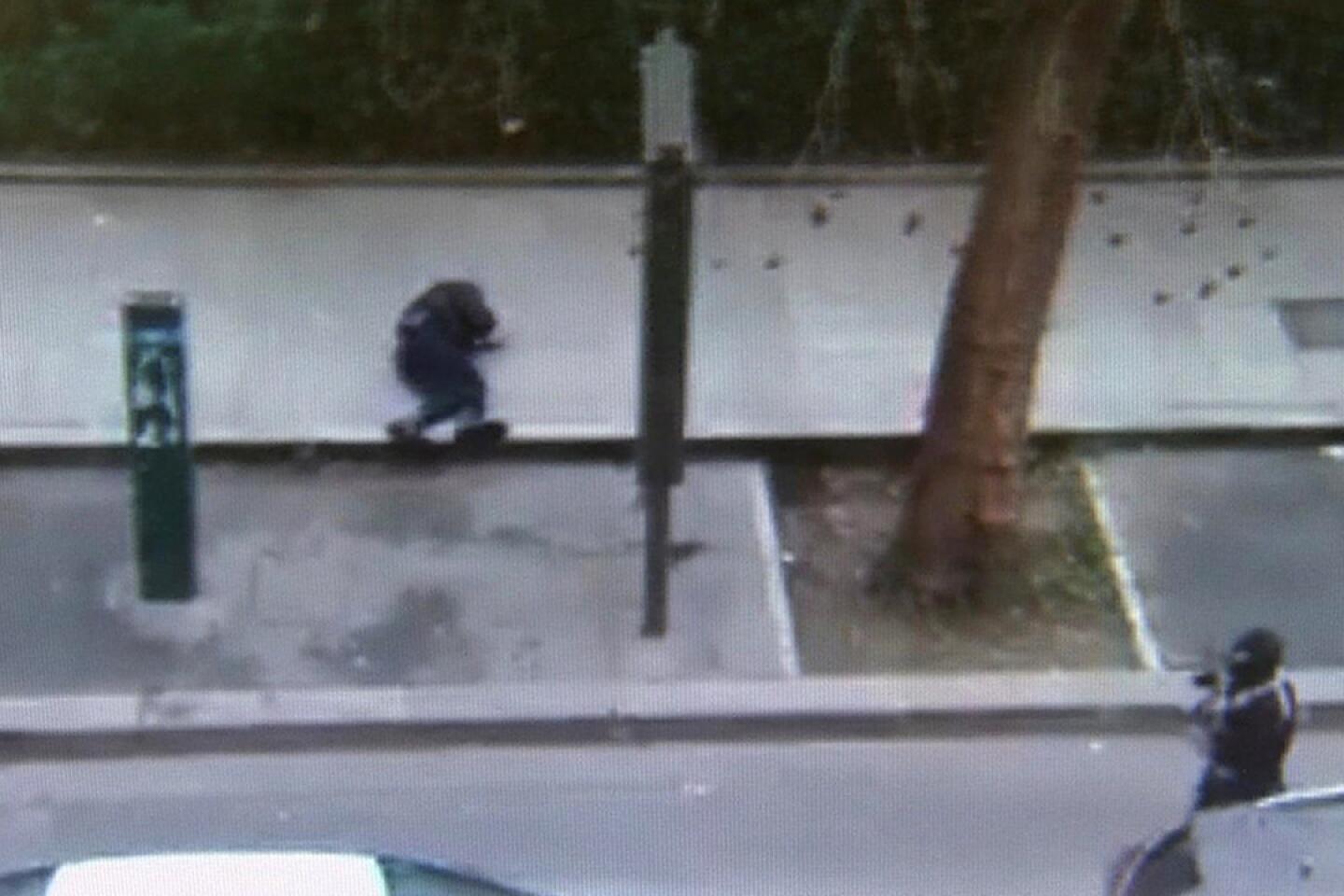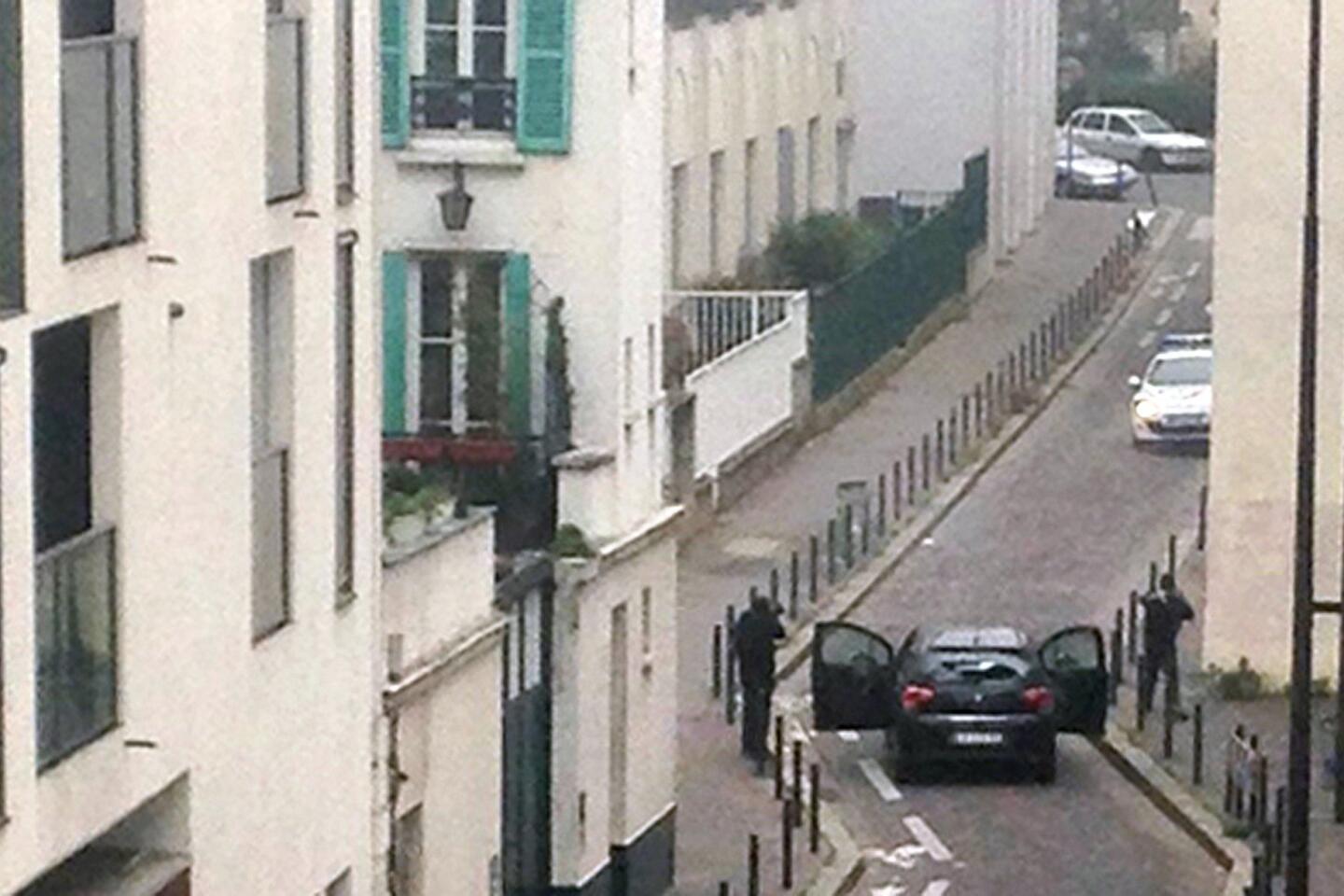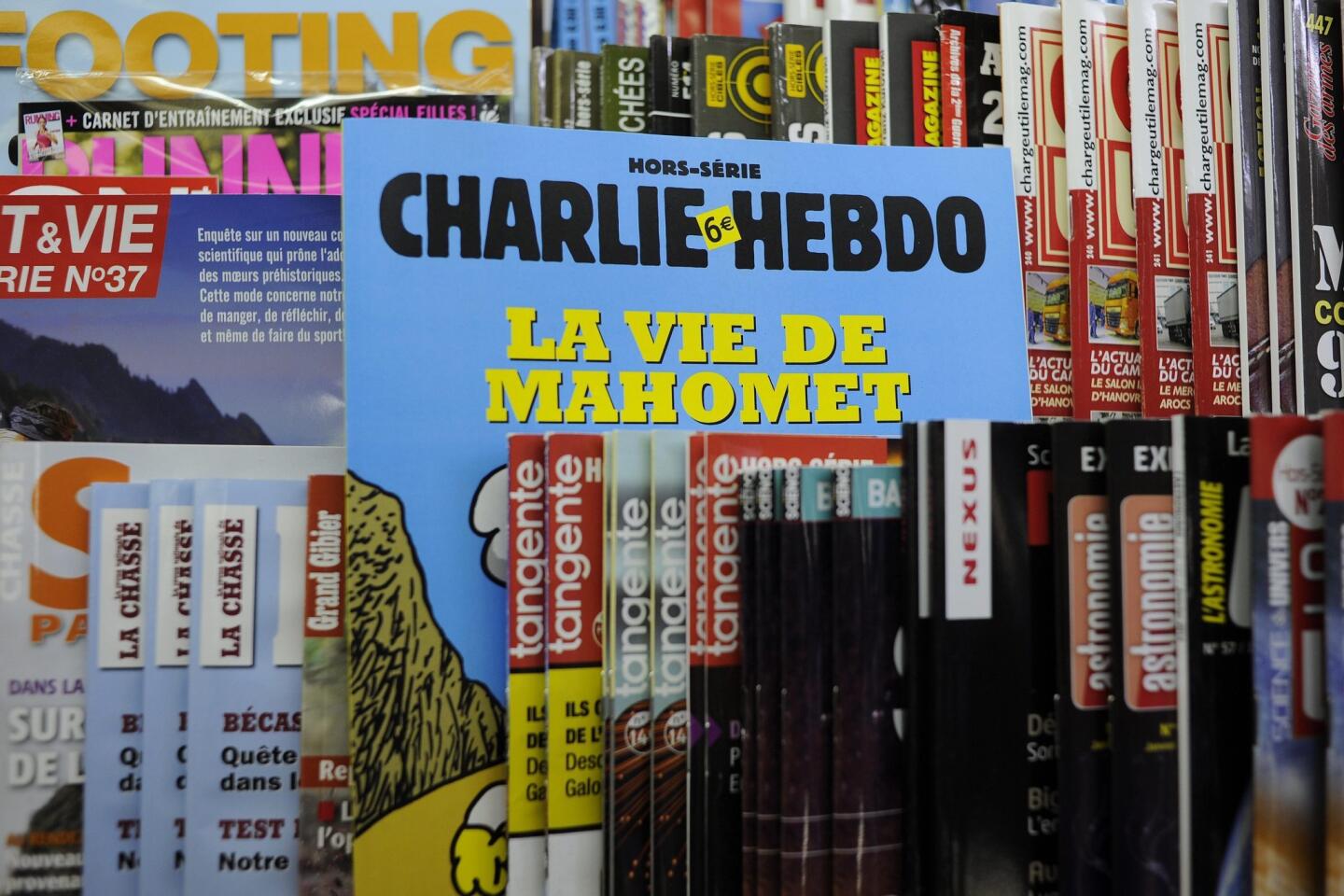Editorial: Paris terrorists aimed at freedom of expression, we must defend it
- Share via
The primary victims of the terrorist outrage in Paris on Wednesday are the 12 people who were shot dead and several others who were wounded. This would be an unspeakable atrocity regardless of the motives that drove masked gunmen to attack the offices of the satirical magazine Charlie Hebdo.
But the terrorists, who reportedly said they were avenging the prophet Muhammad, were aiming not only at individuals but at an idea: that freedom of expression includes the right to criticize and, yes, ridicule the cherished beliefs of others. Charlie Hebdo certainly had done that in publishing cartoons lampooning Muhammad and mocking Islam.
President Obama alluded to this when he praised France’s commitment to “universal values.” German Chancellor Angela Merkel was more explicit, describing the carnage as an attack on “freedom of expression — a key component of our free democratic culture.”
It’s tempting to see this tragedy as an example of the failure of some Muslims to adapt to Western notions of robust free speech, and there is some truth in that observation: Scurrilous depictions of Jesus Christ or the pope are far less likely to provoke violence than a violation of the taboo that Muhammad may not be lampooned (or even depicted). It’s also the case that Muslim nations have been in the forefront of the campaign to have the United Nations condemn “defamation of religion.”
Yet the impulse to punish or censor sacrilegious speech isn’t unique to Muslims. In the past, Christians also have used the law to punish irreverence, and blasphemy statutes remain on the books in some U.S. states (though they wouldn’t survive a 1st Amendment challenge). Even many Americans and Europeans who support free speech in general would draw the line at protection for religiously offensive speech, just as many would make an exception for racist speech.
Yet a moment’s reflection should dispel the view that freedom of political speech can be separated from speech about race or religion — subjects that are entwined with politics and government all over the world. In a free society, the answer to offensive speech about any topic is more speech, not legal reprisals and certainly not violence or vengeance.
Freedom of expression isn’t just a peculiarity of European and American culture. It is enshrined in the U.N.’s Universal Declaration of Human Rights, which says: “Everyone has the right to freedom of opinion and expression; this right includes freedom to hold opinions without interference and to seek, receive and impart information and ideas through any media and regardless of frontiers.” One way to honor the victims of Wednesday’s massacre is to defend that principle, and not just in Western countries.
Follow the Opinion section on Twitter @latimesopinion
More to Read
A cure for the common opinion
Get thought-provoking perspectives with our weekly newsletter.
You may occasionally receive promotional content from the Los Angeles Times.
